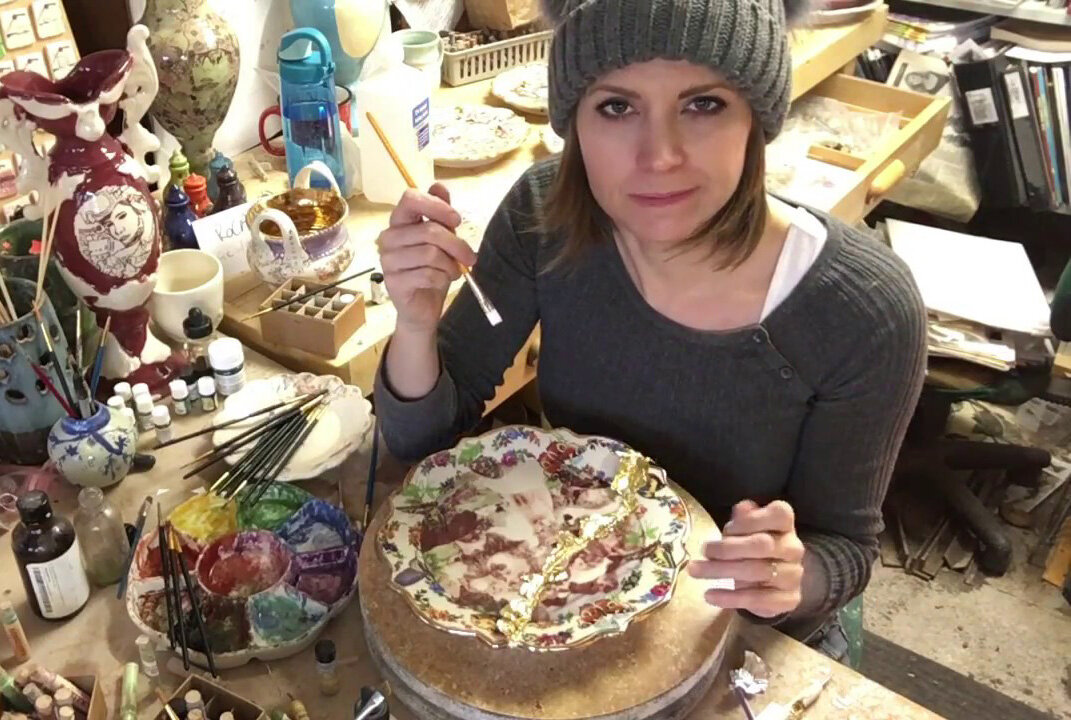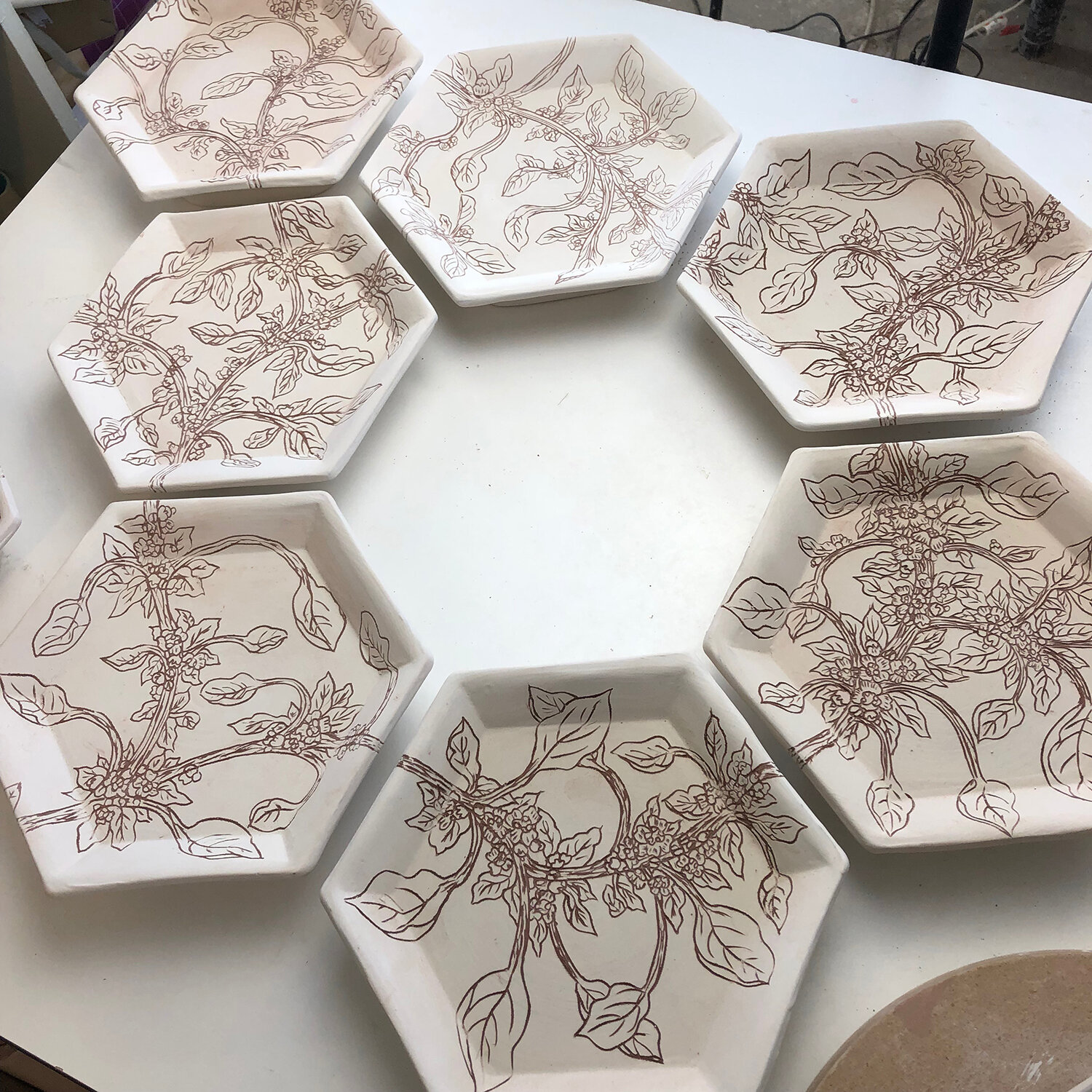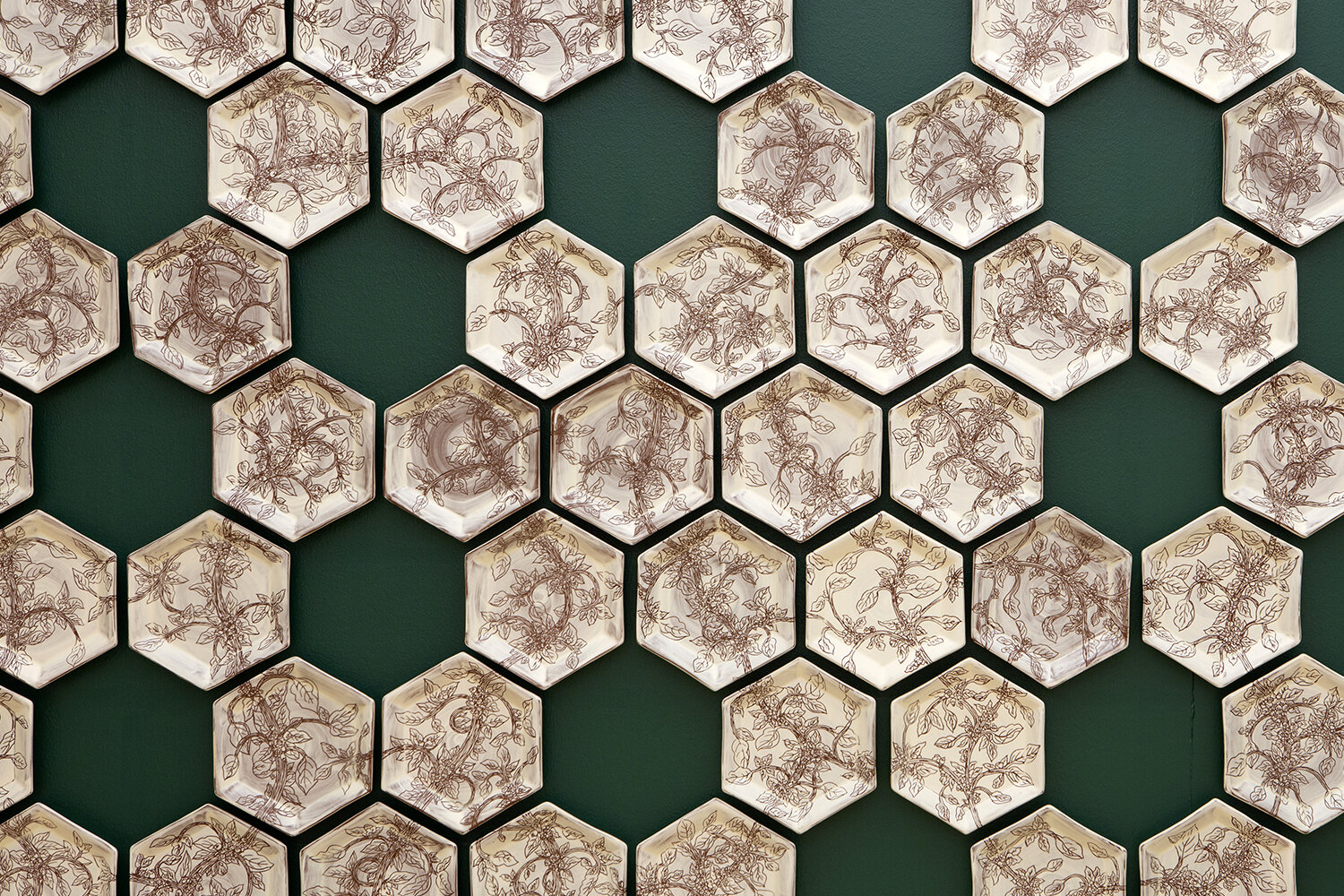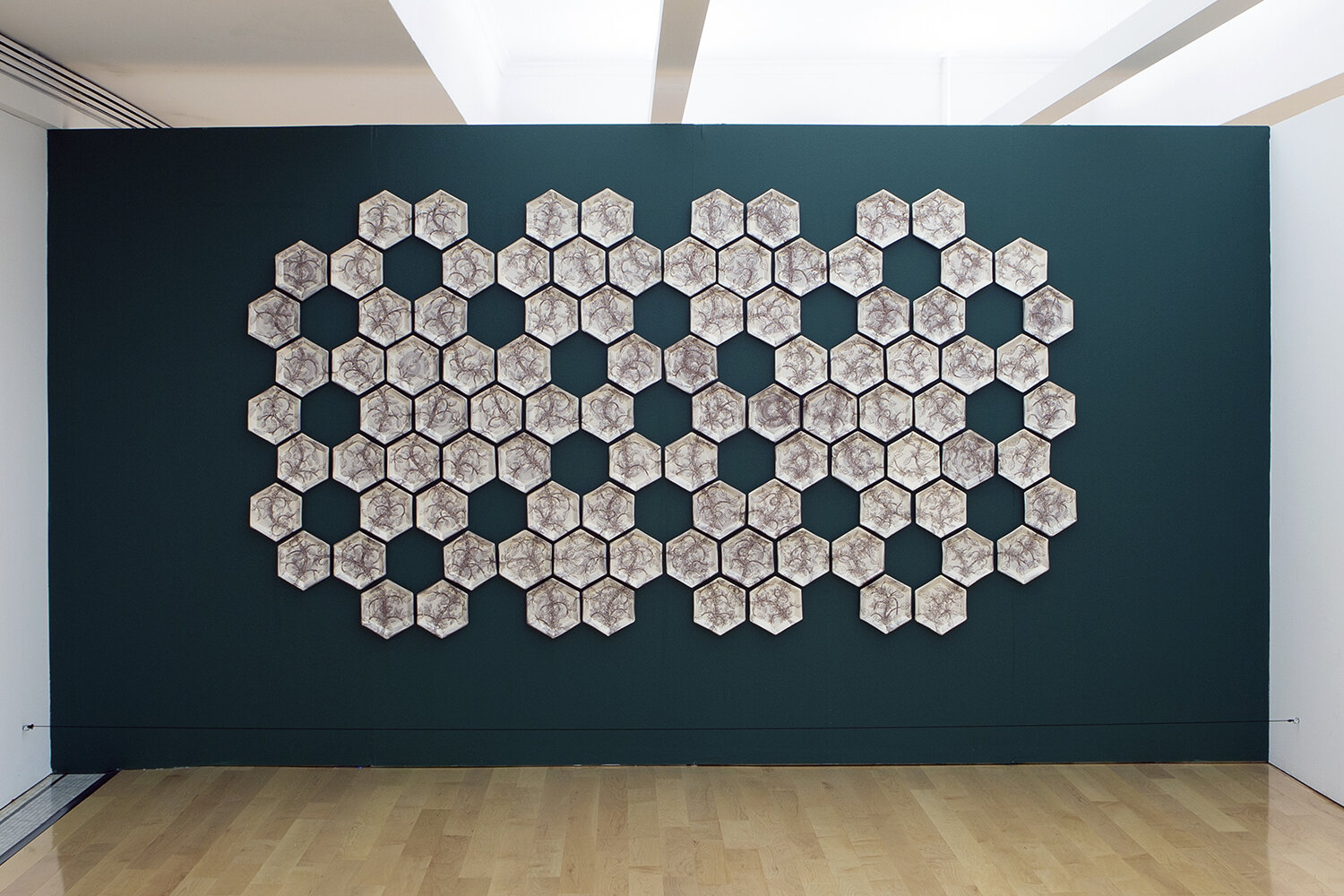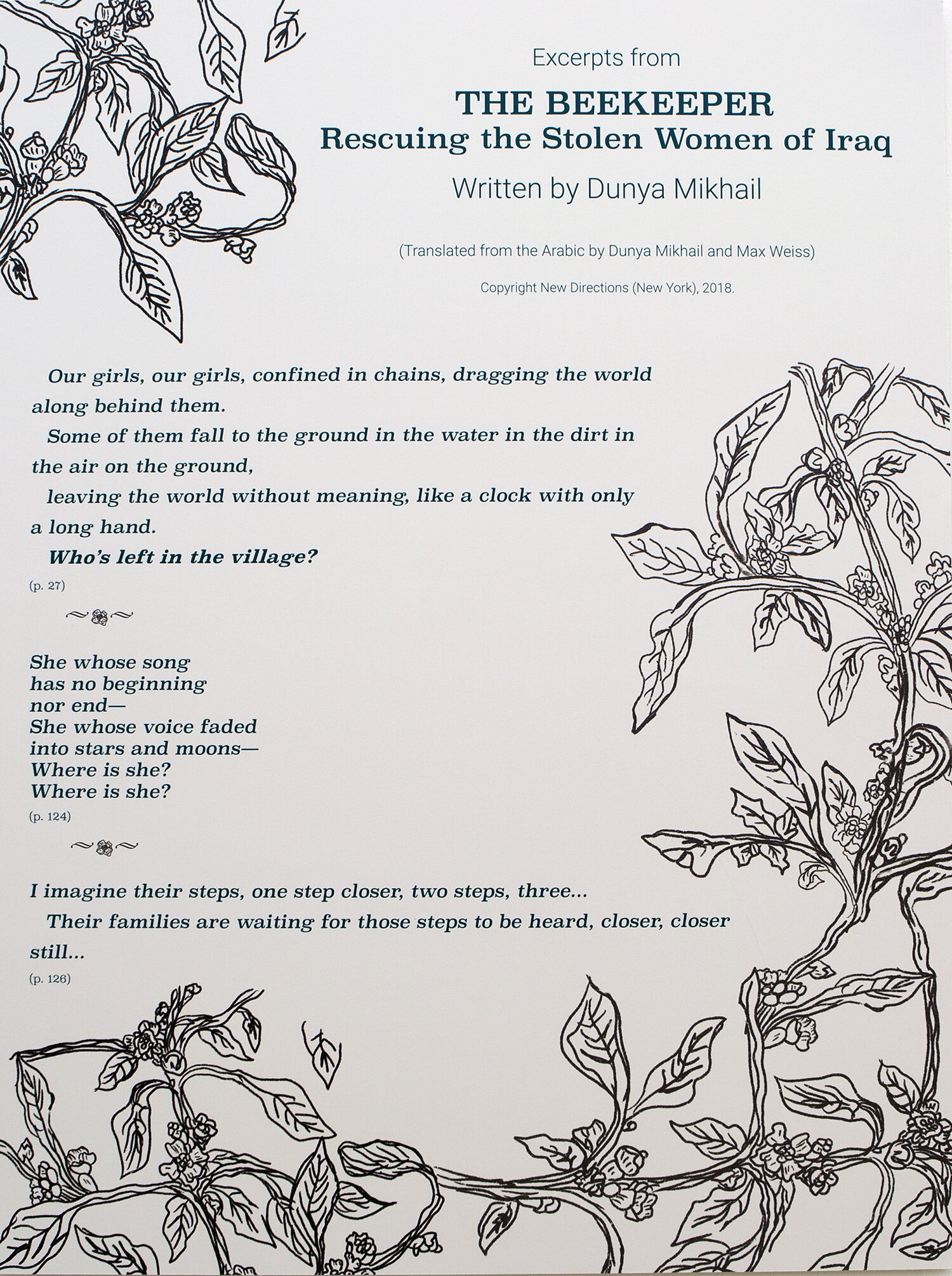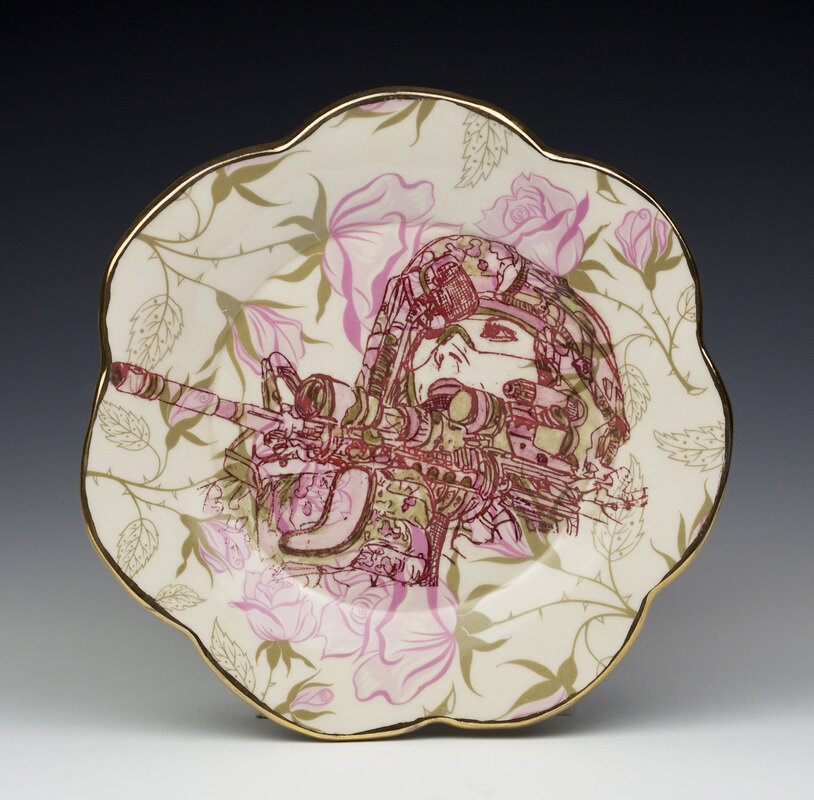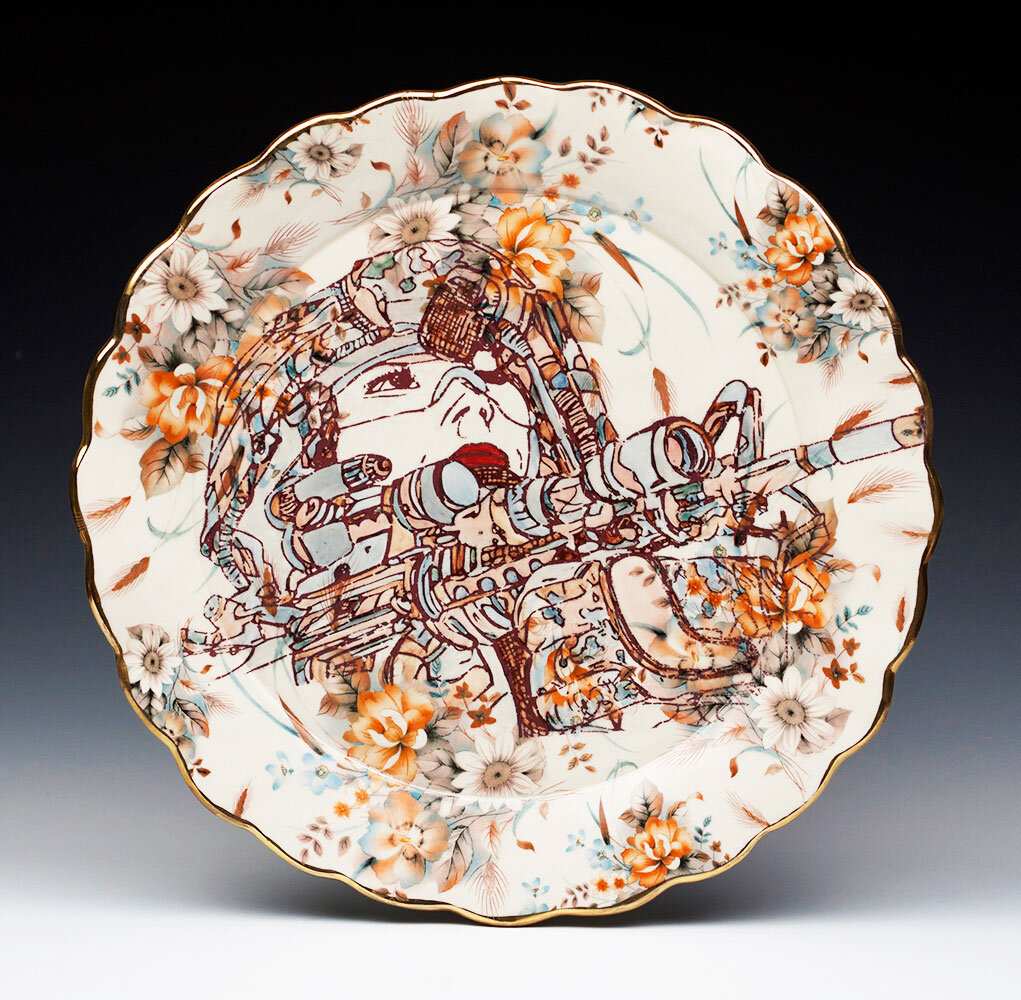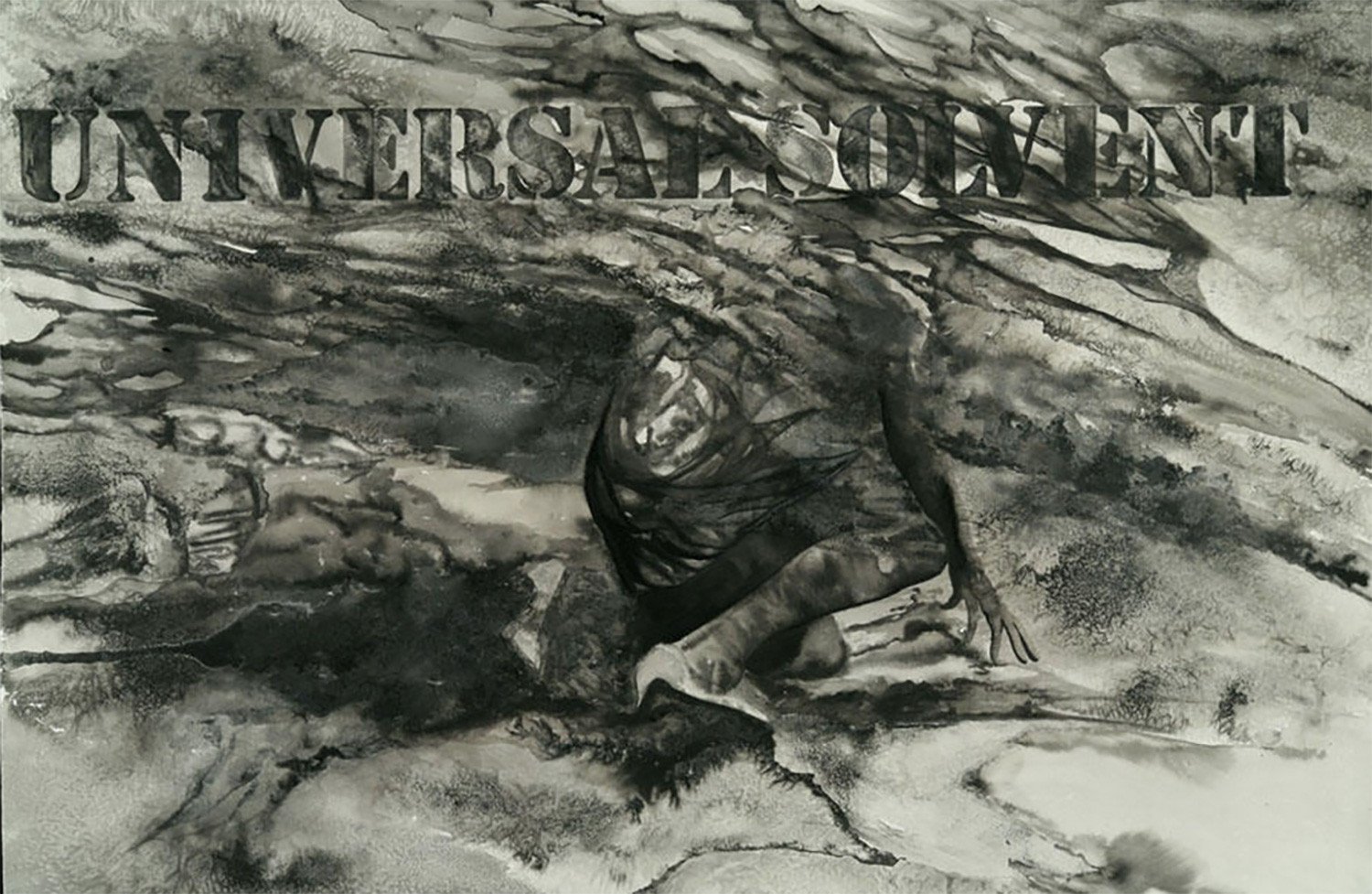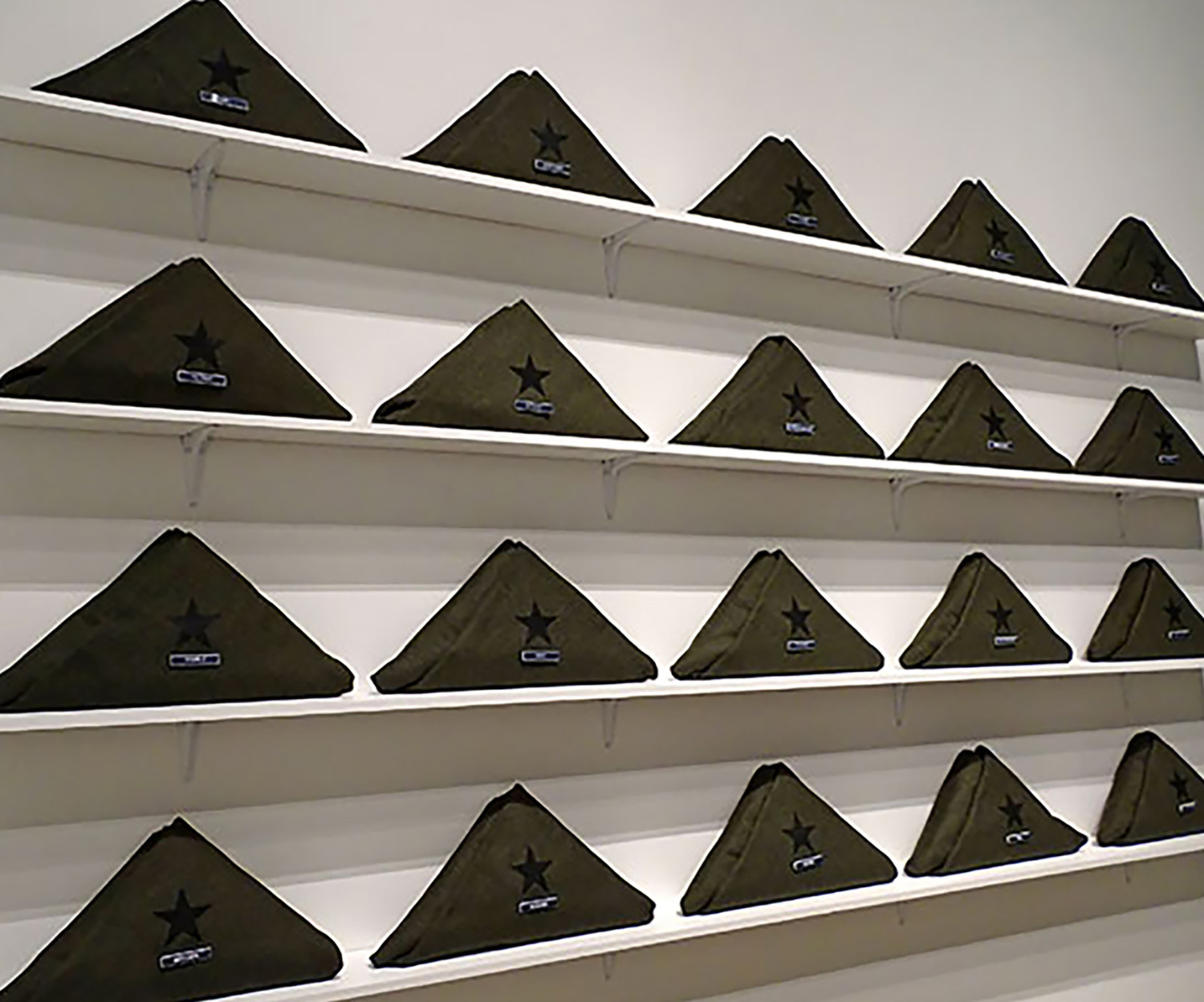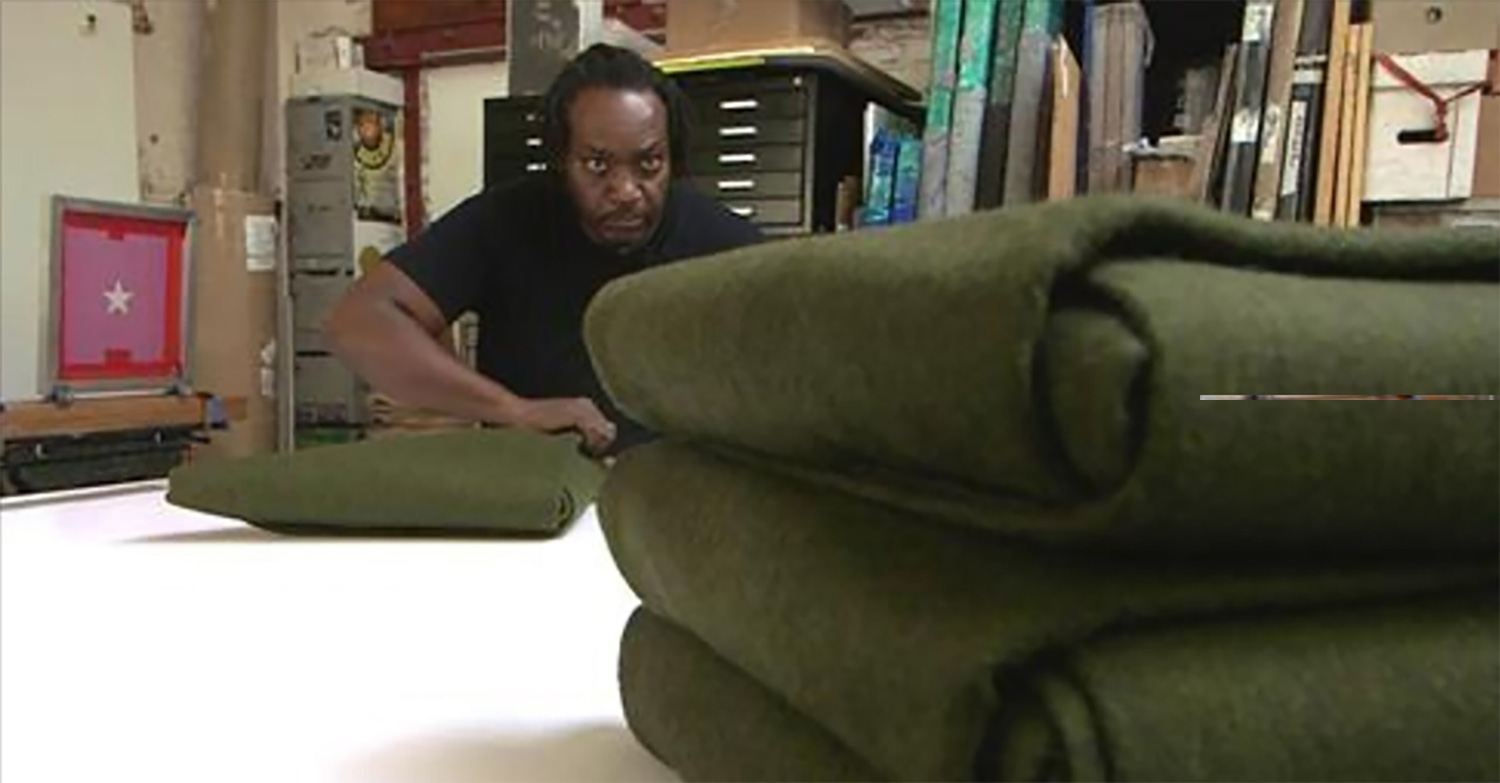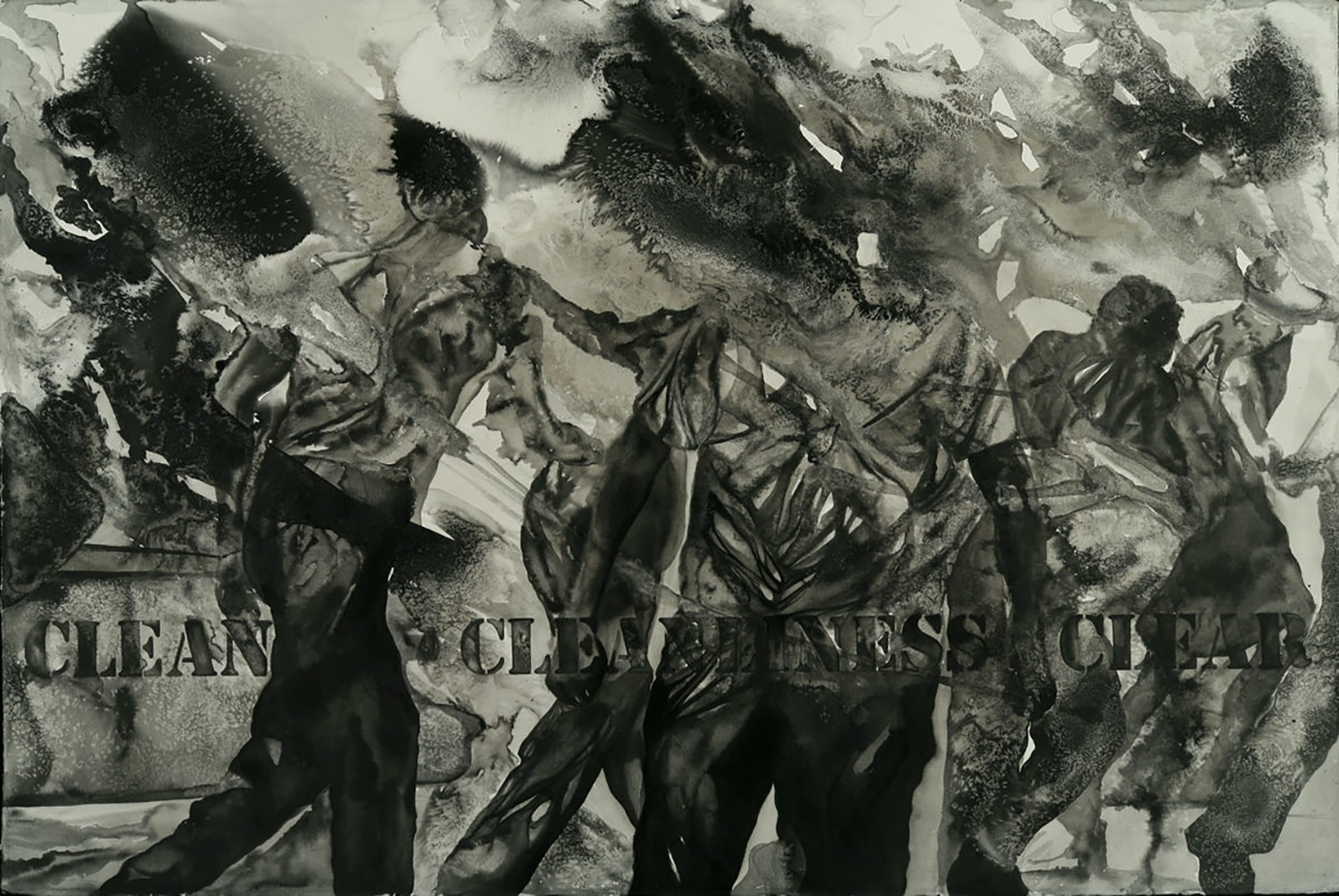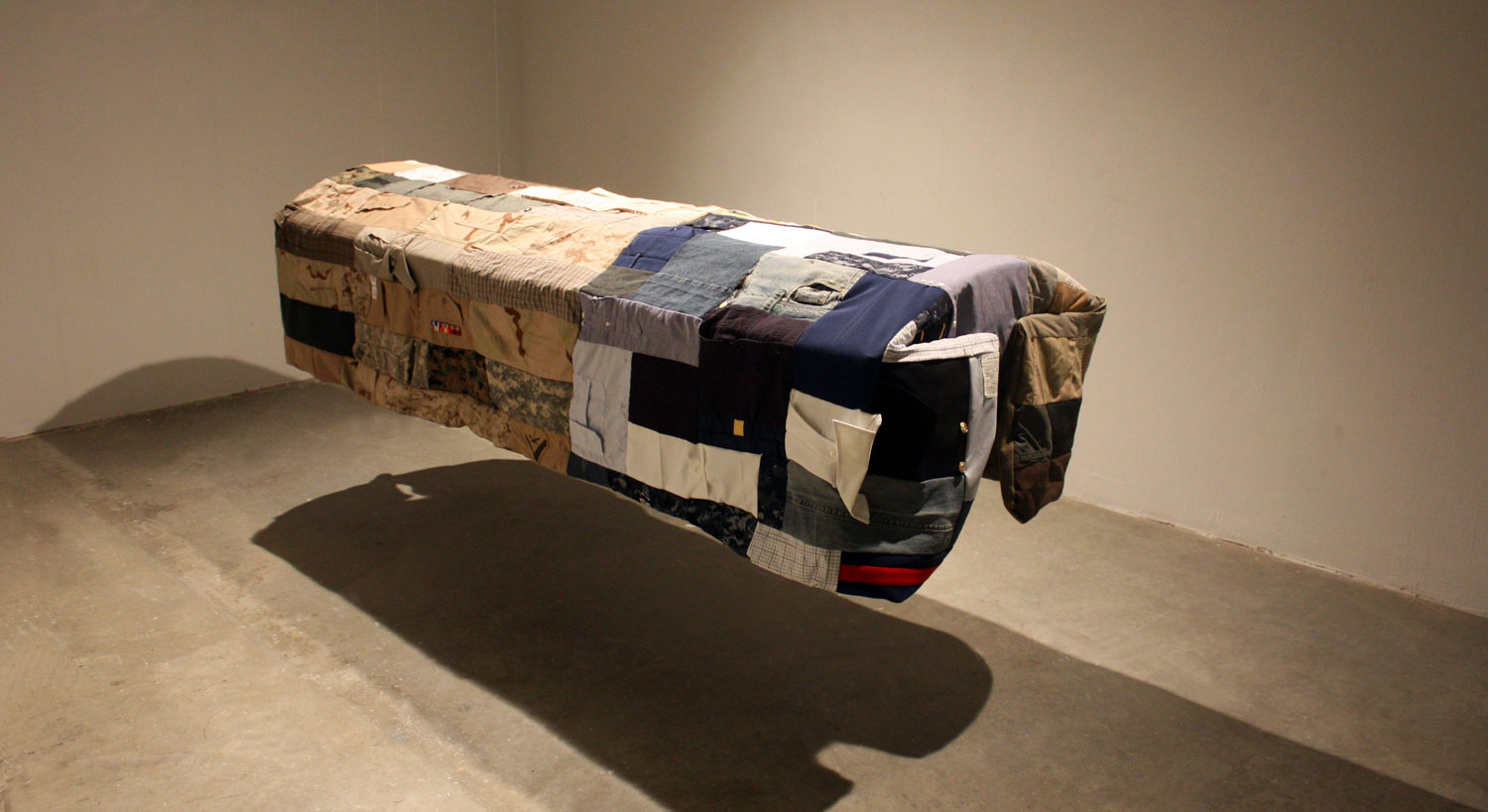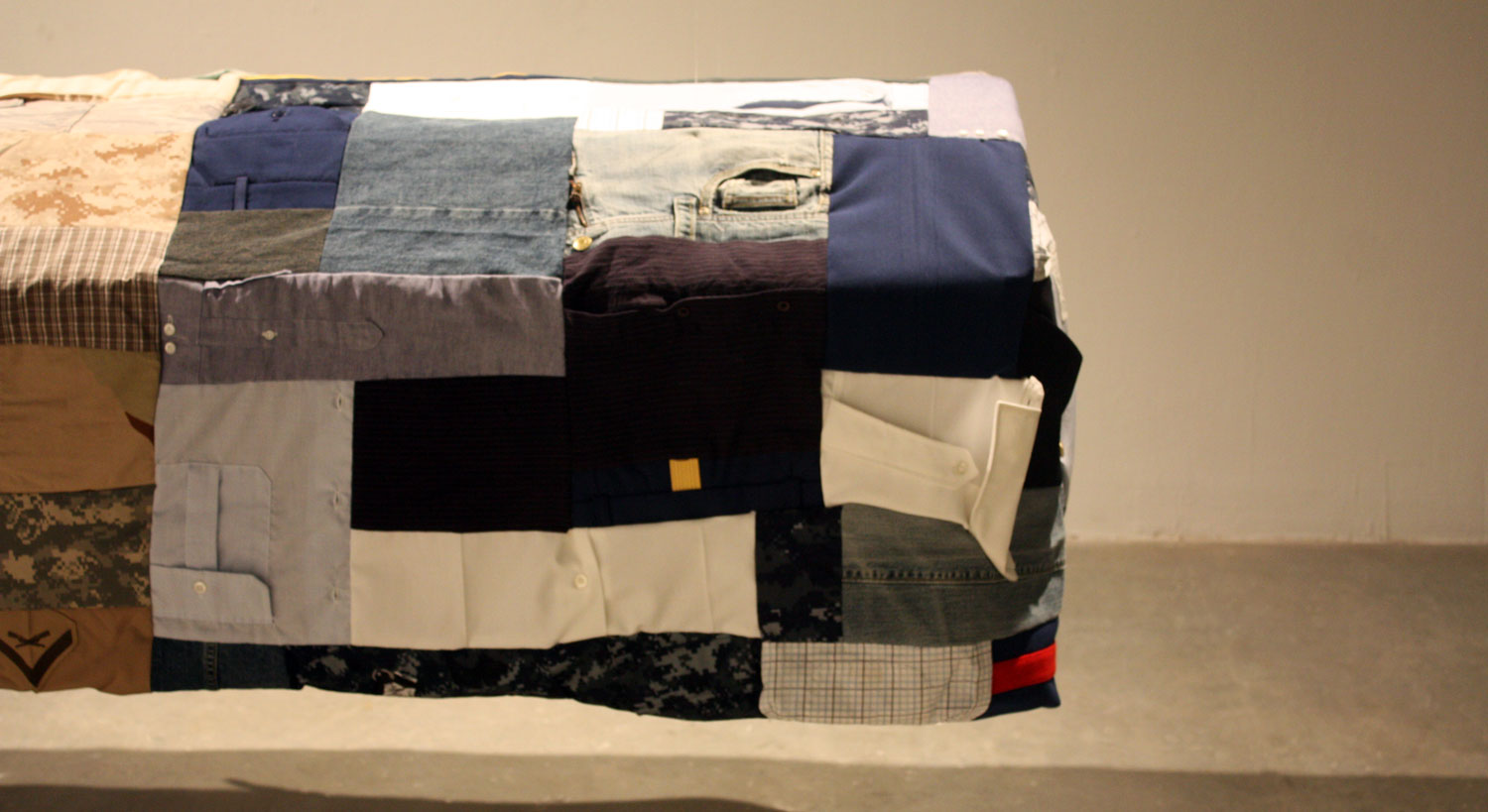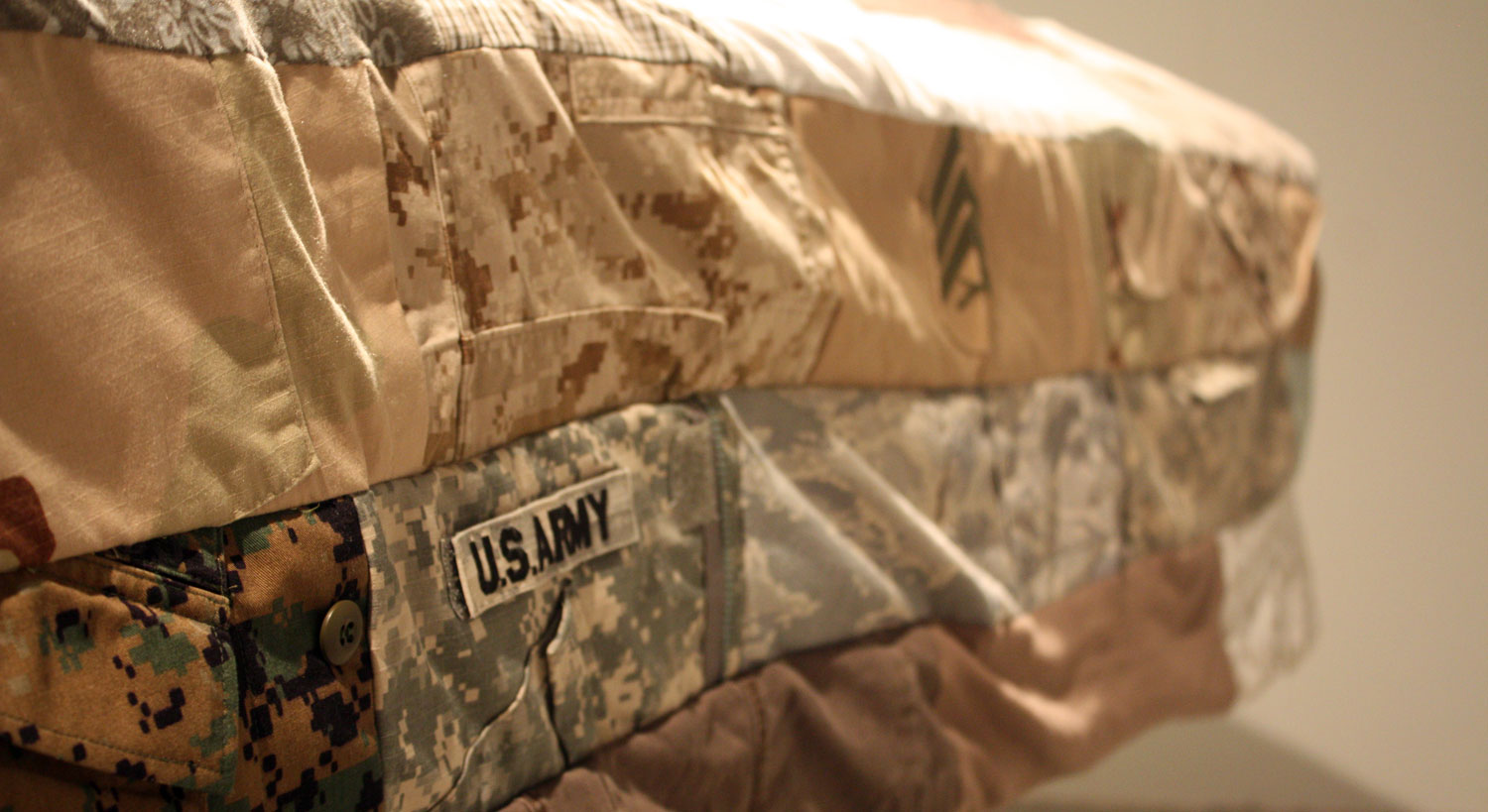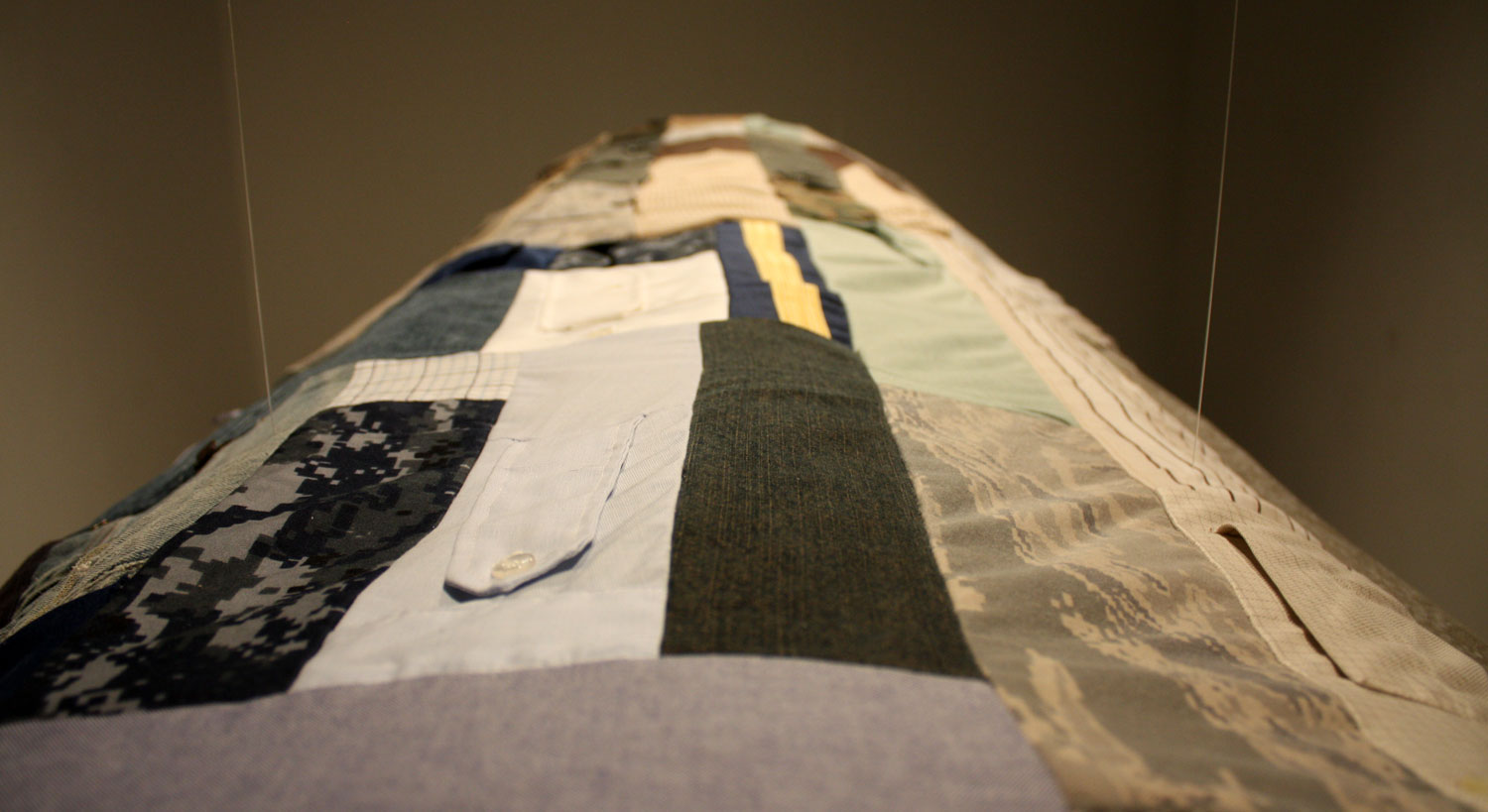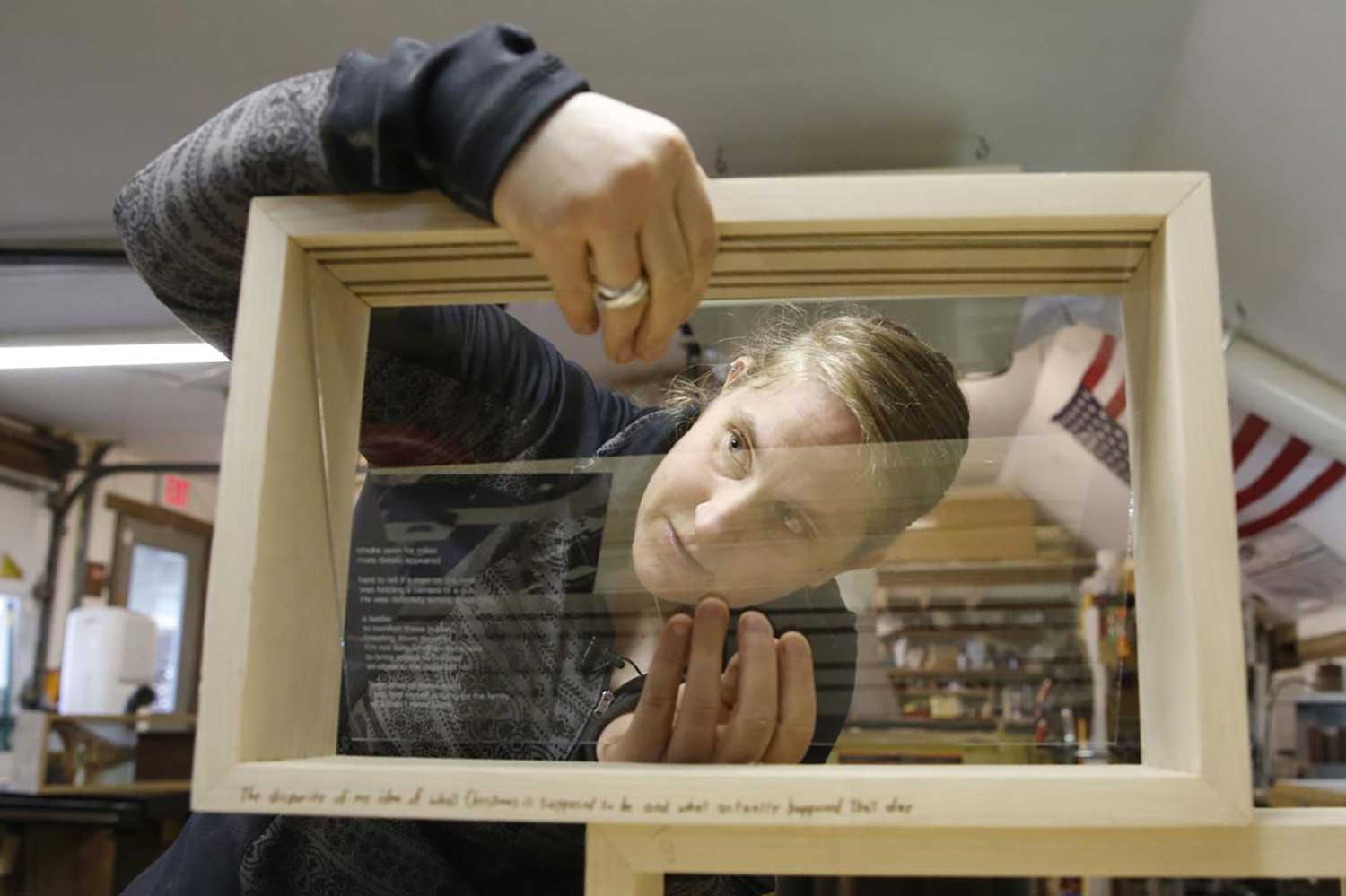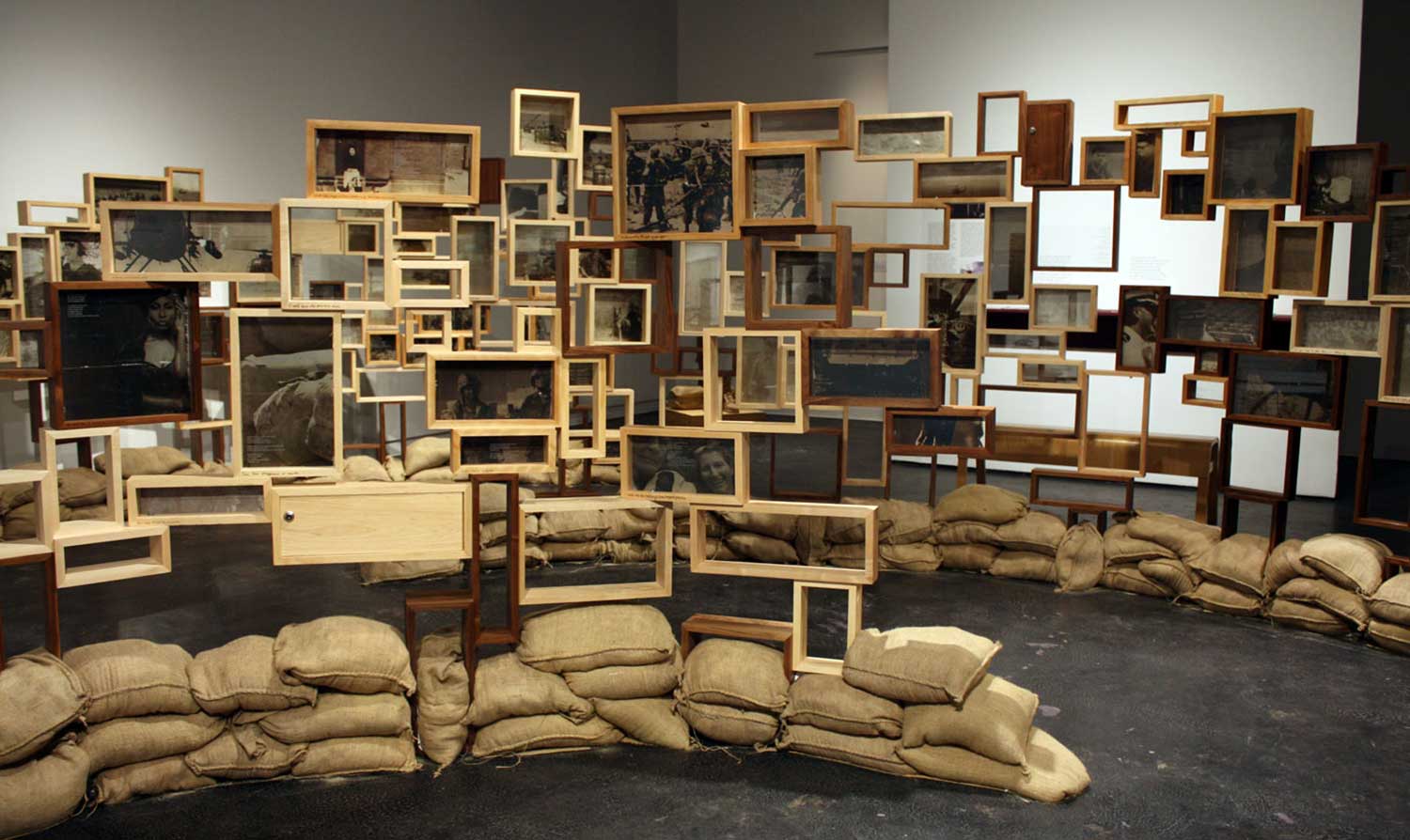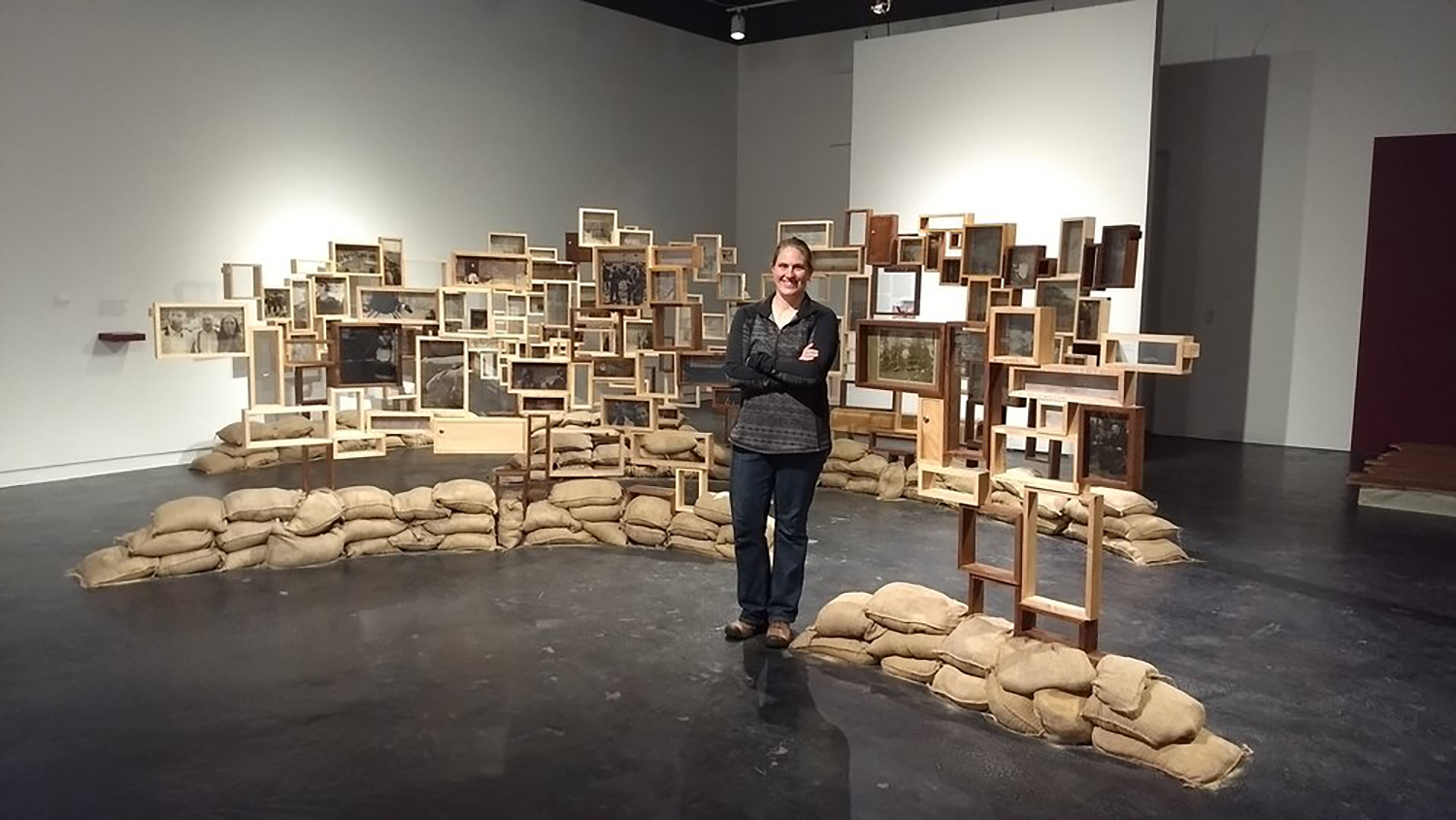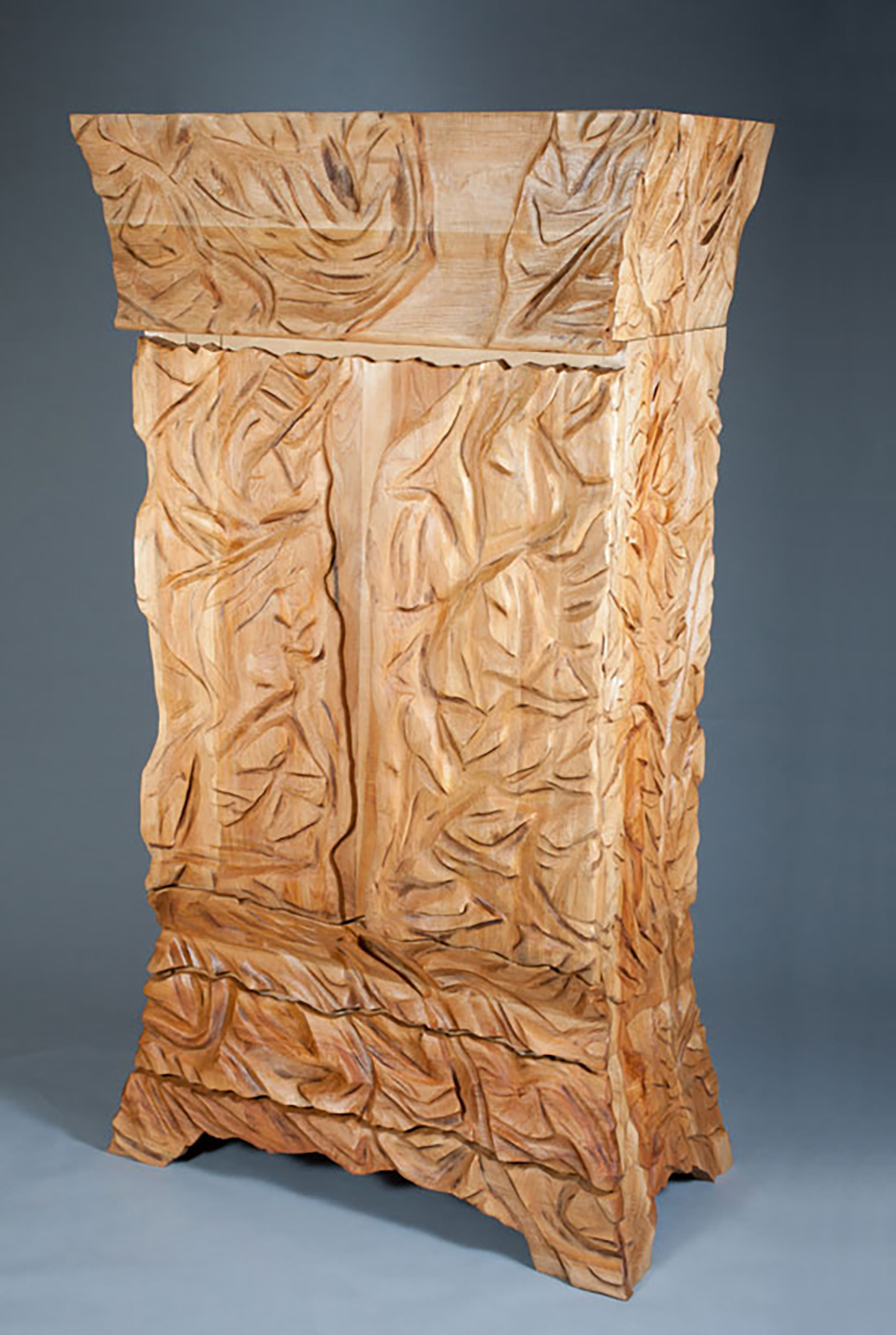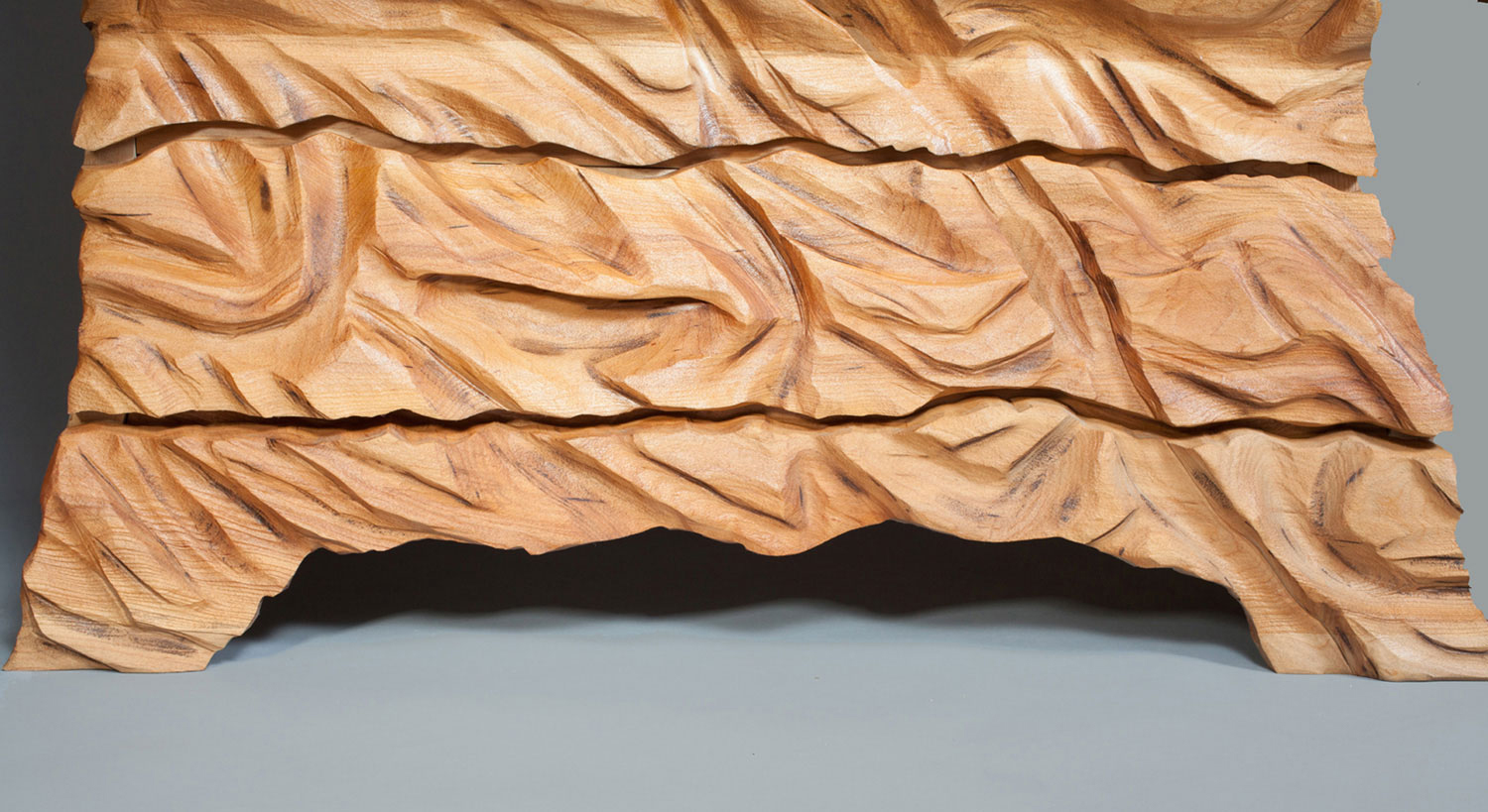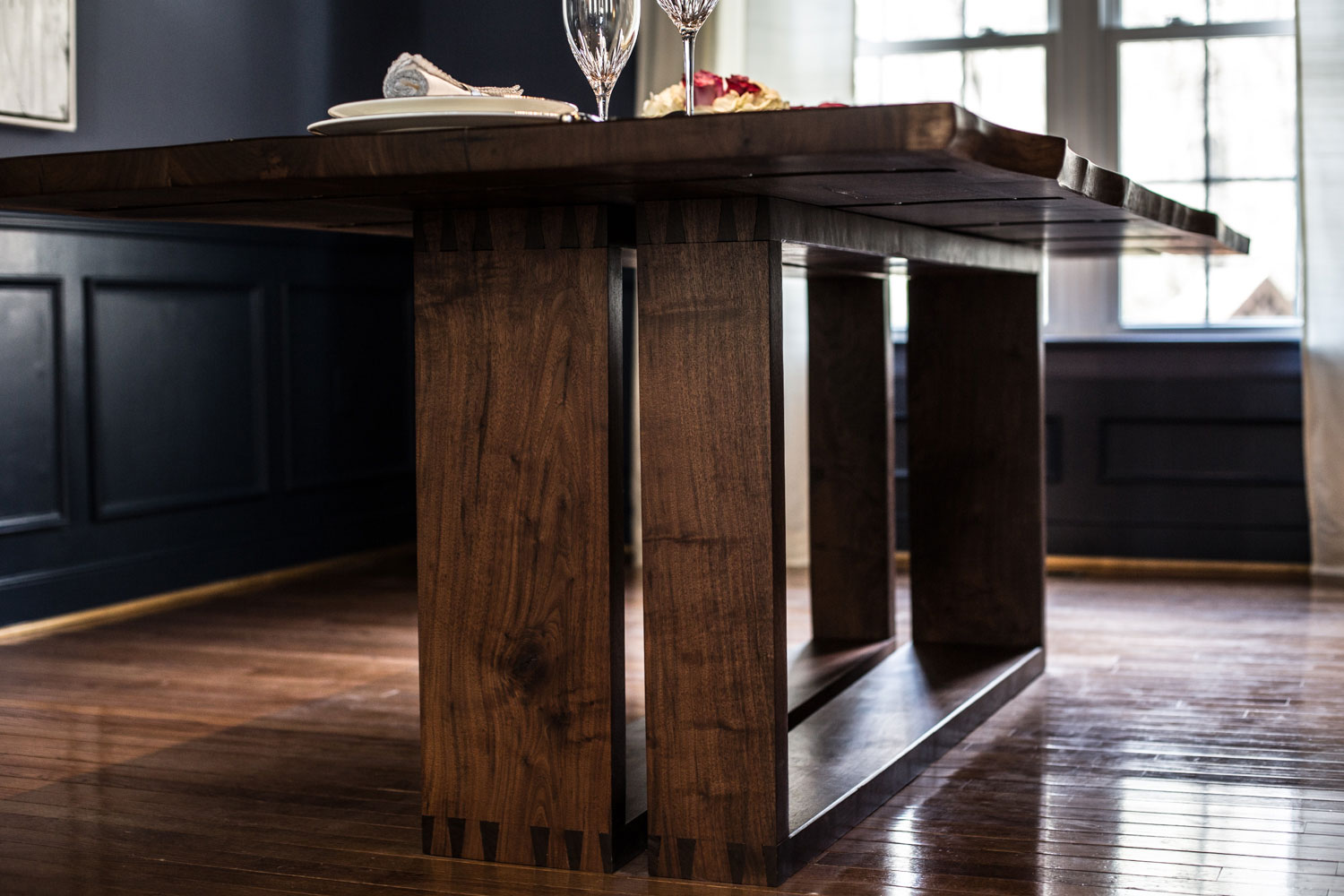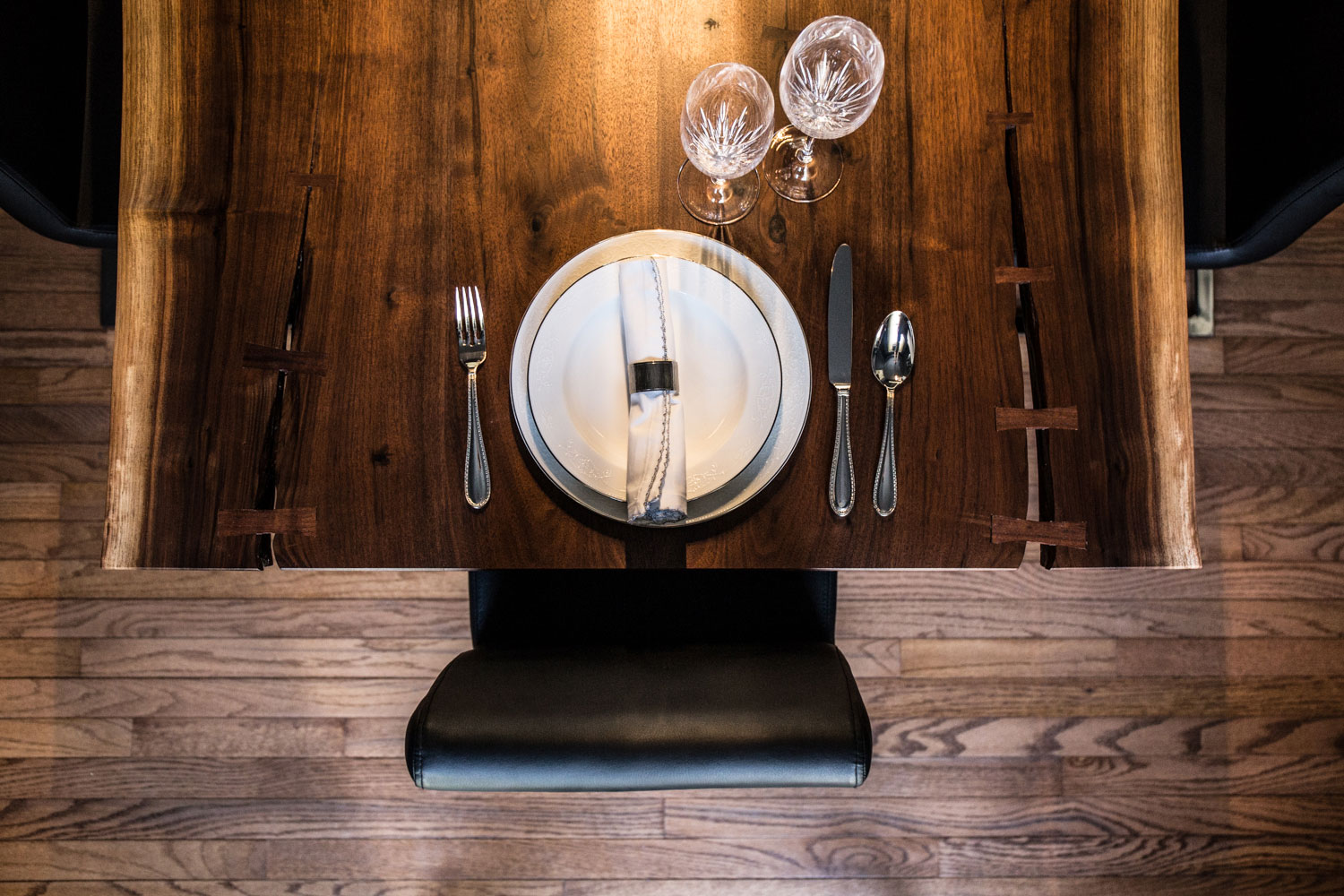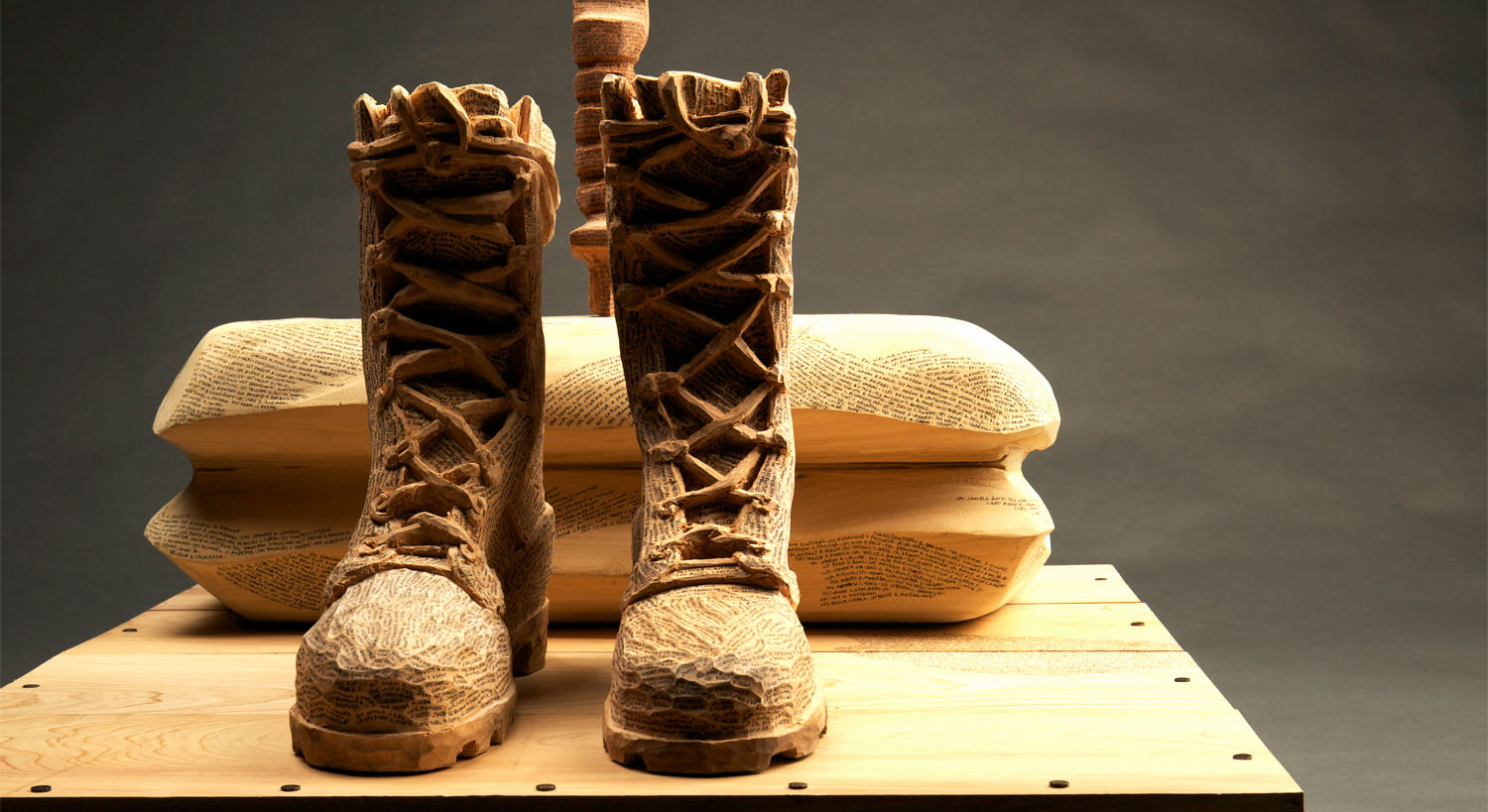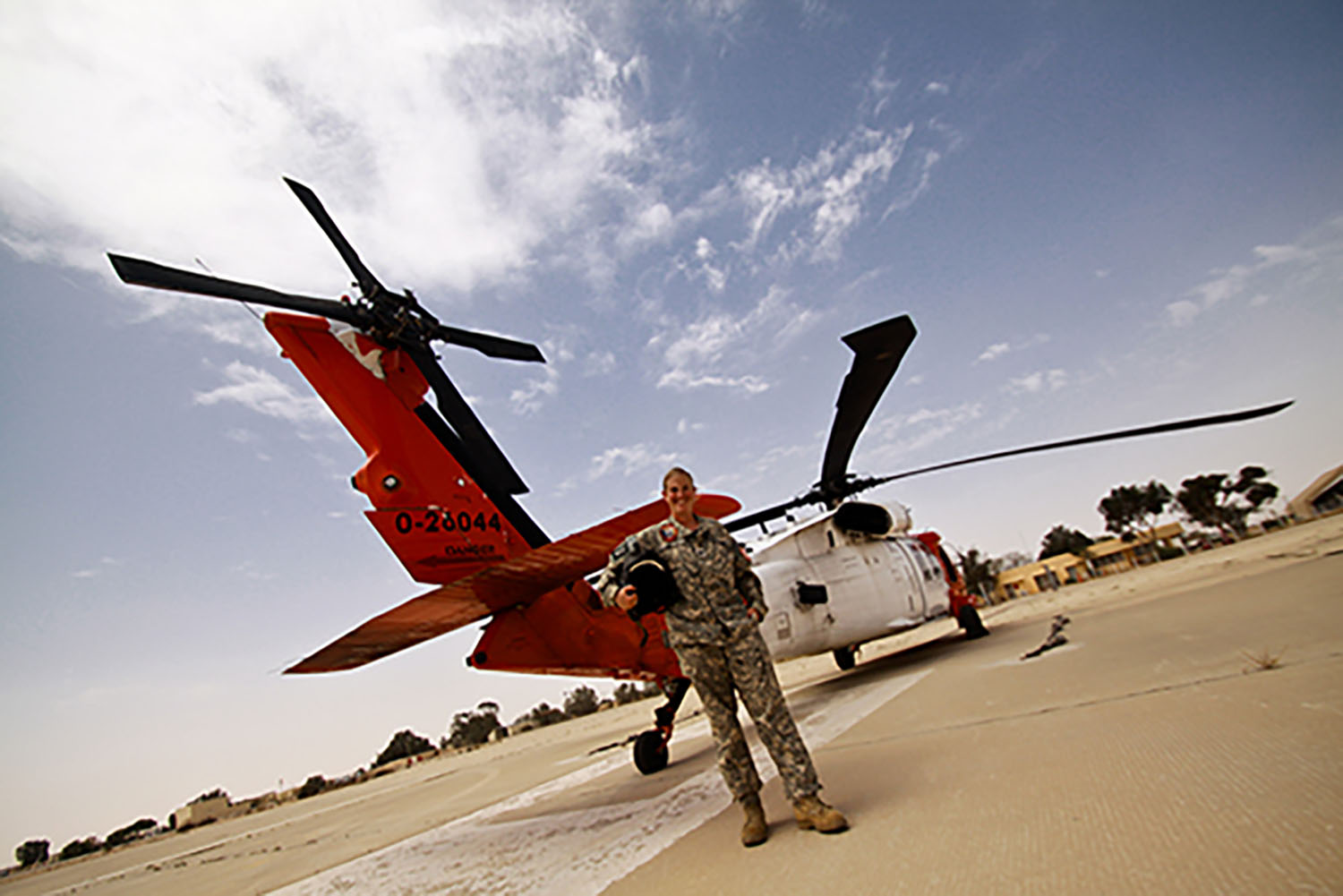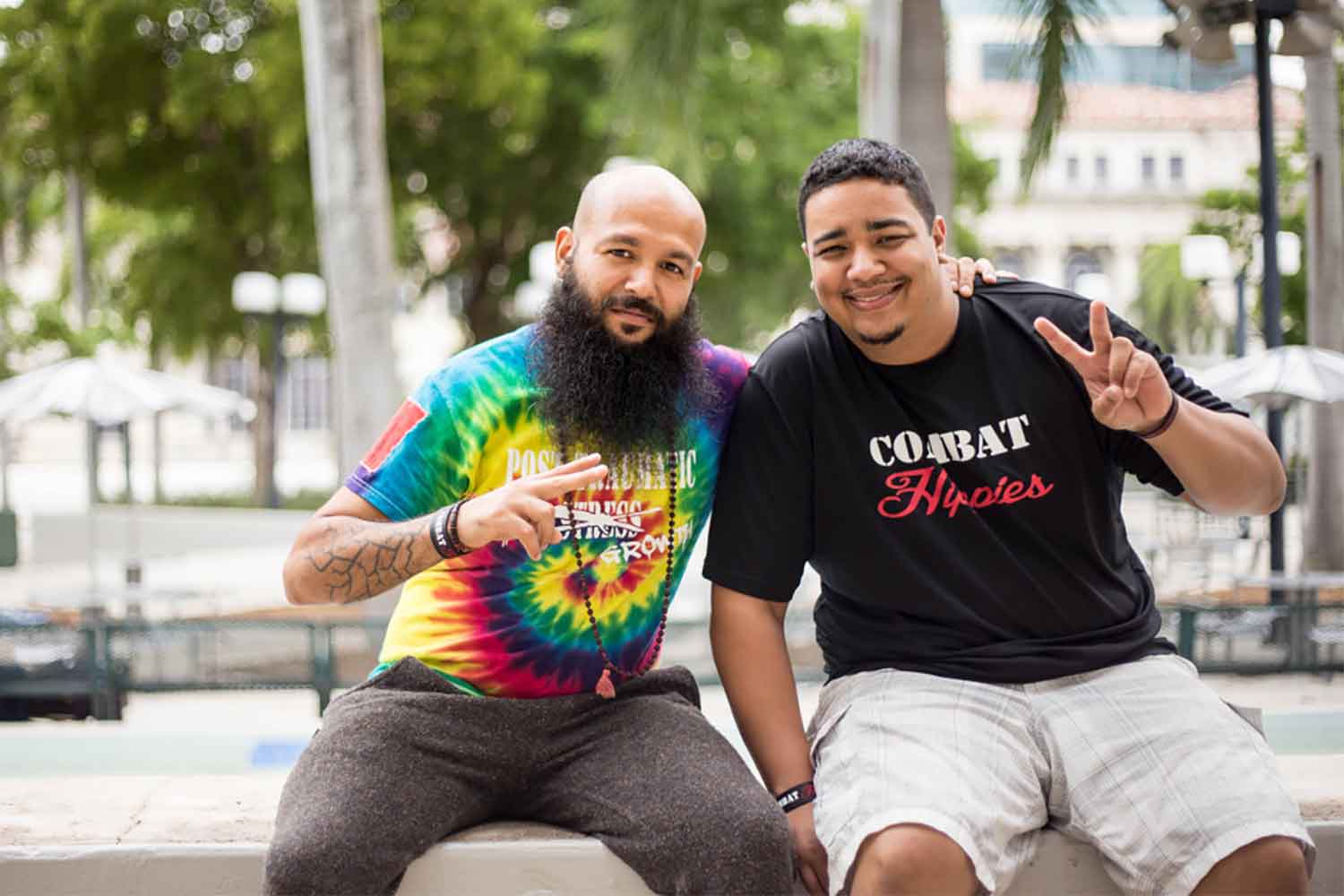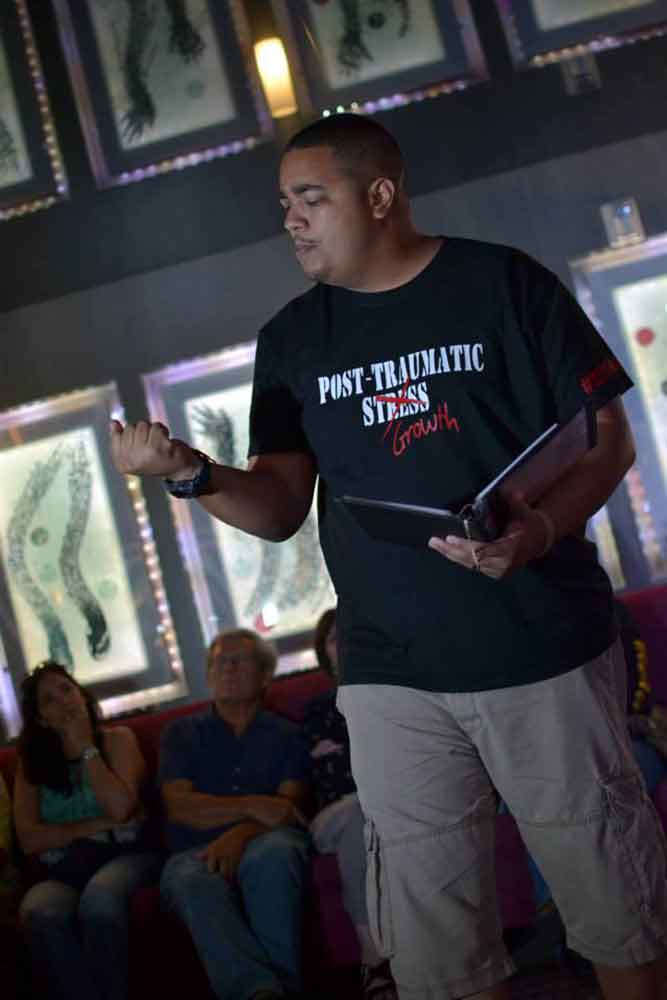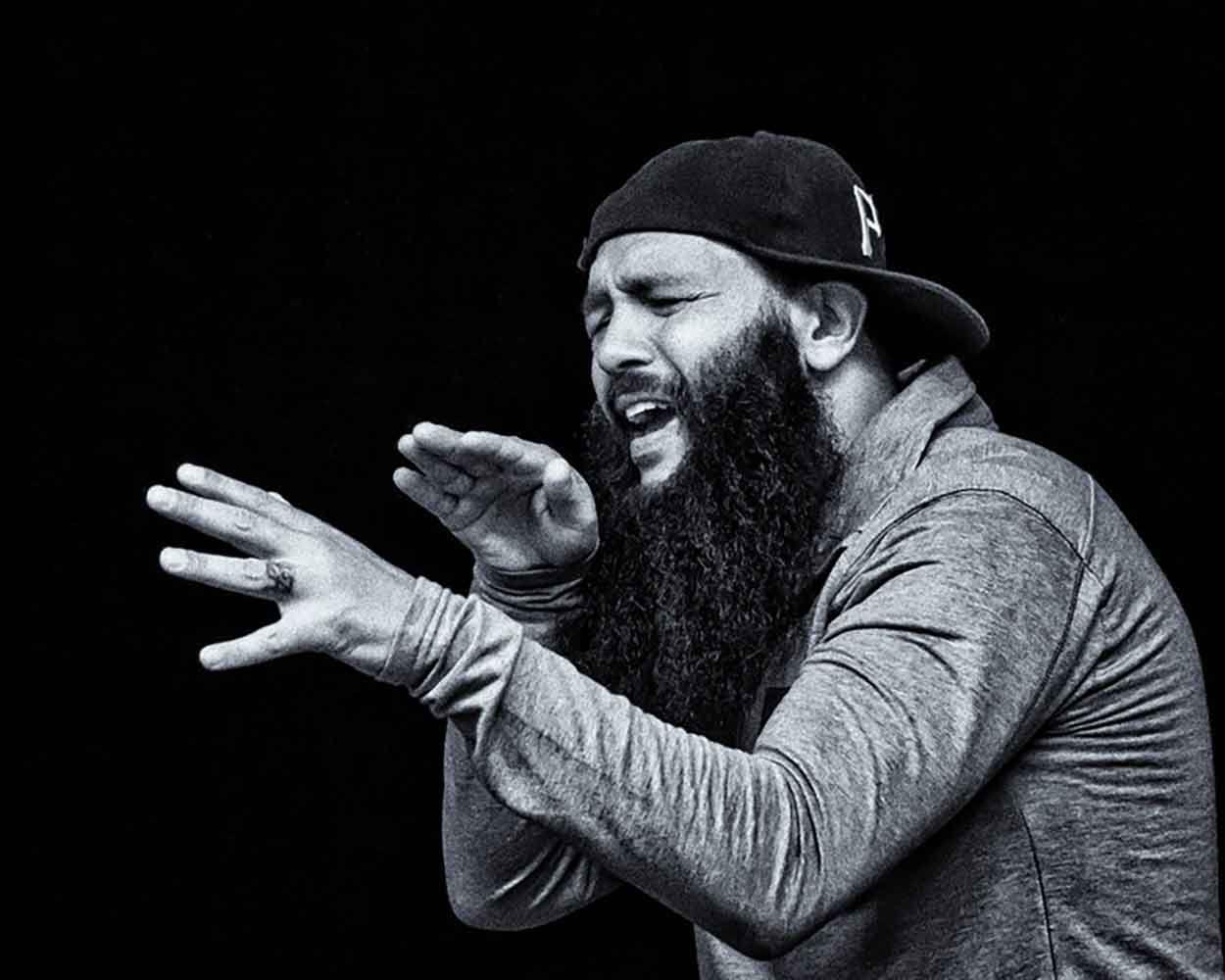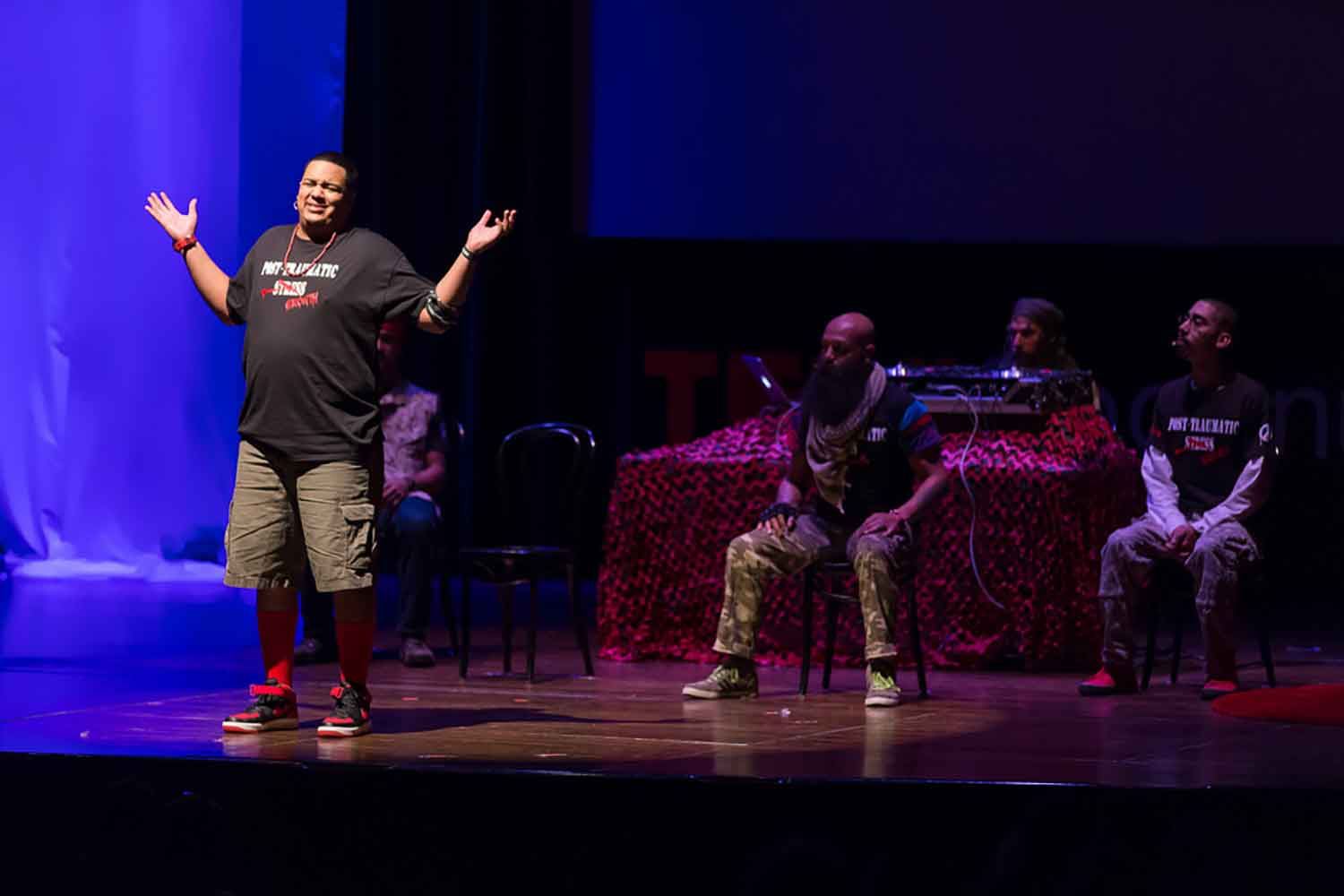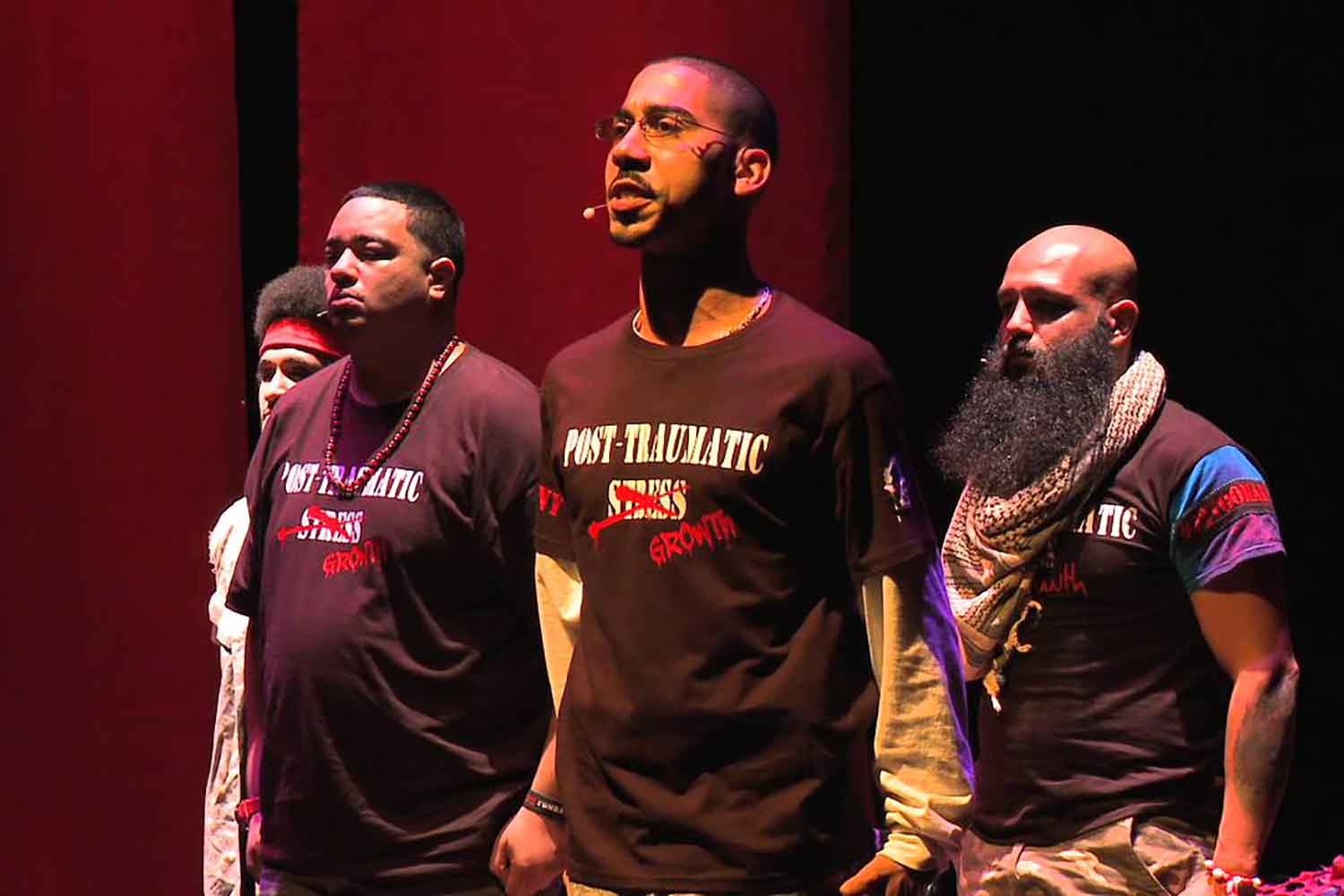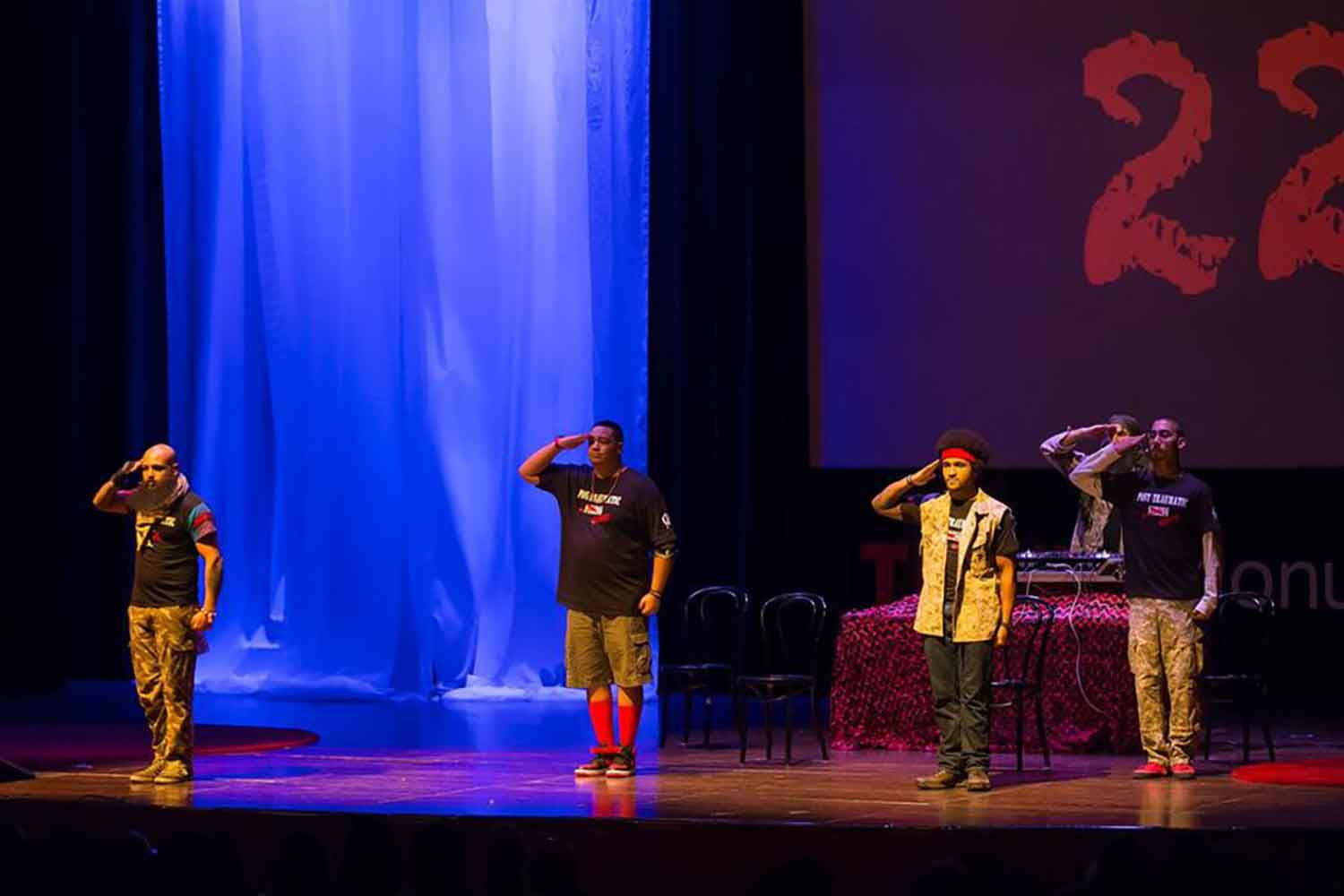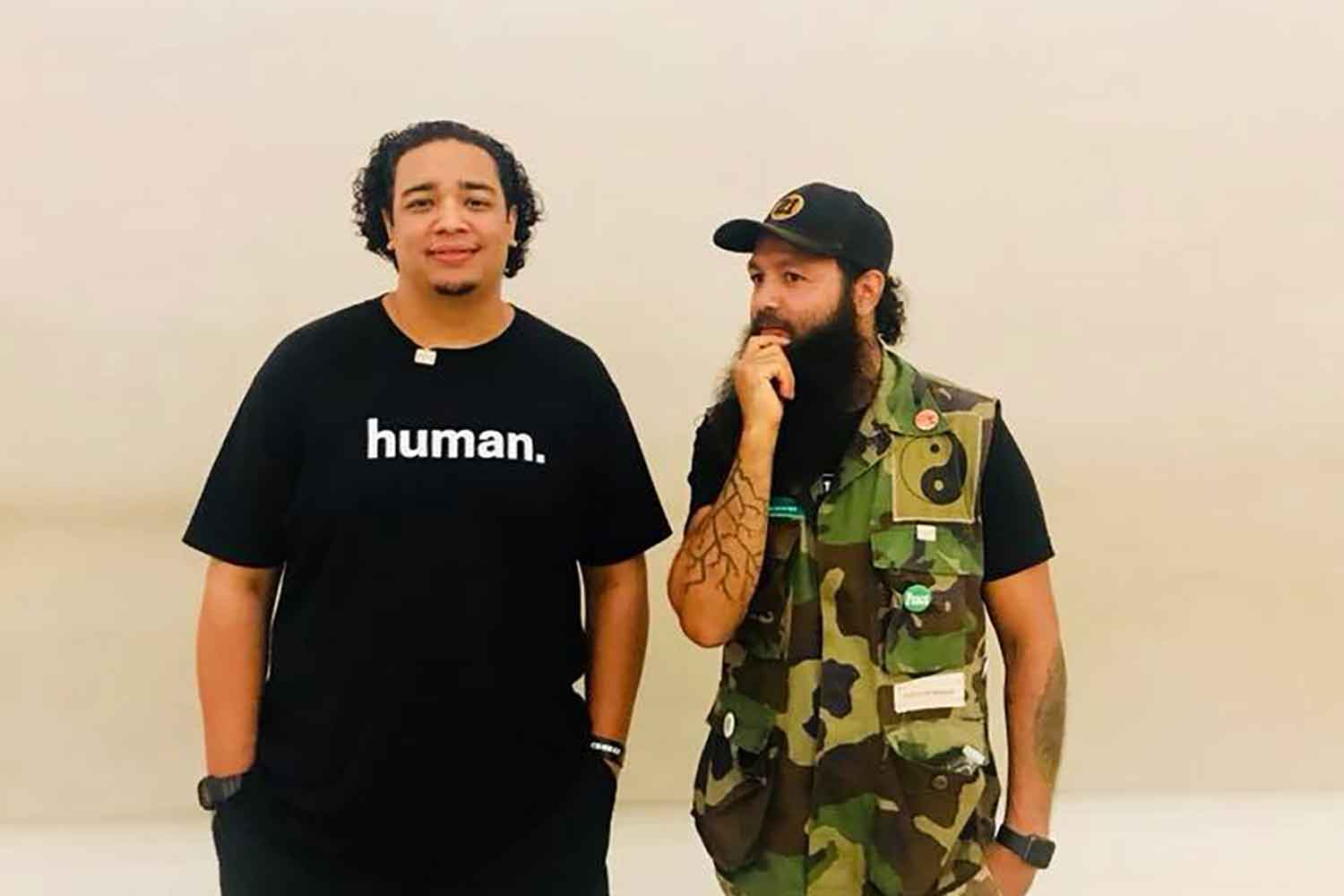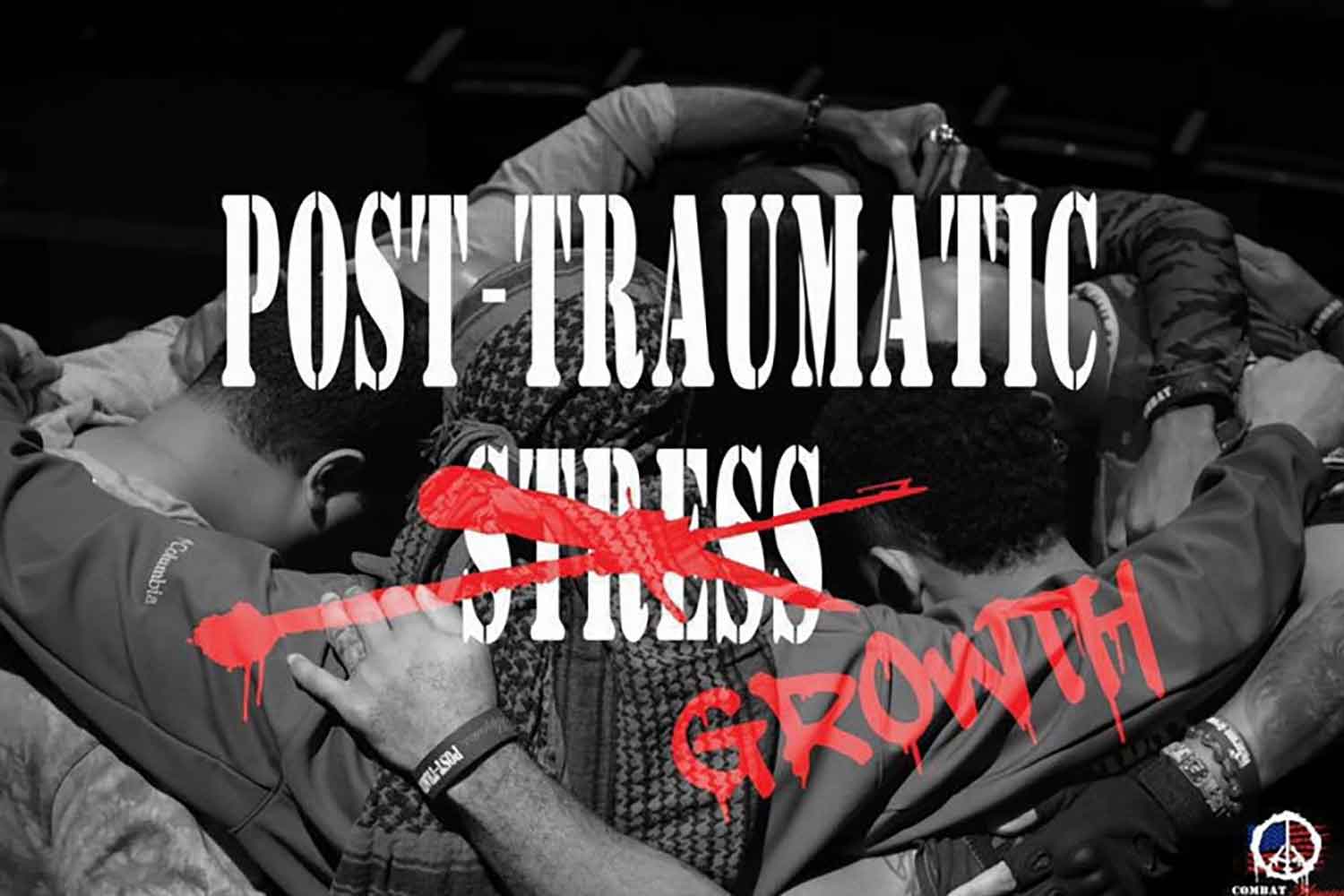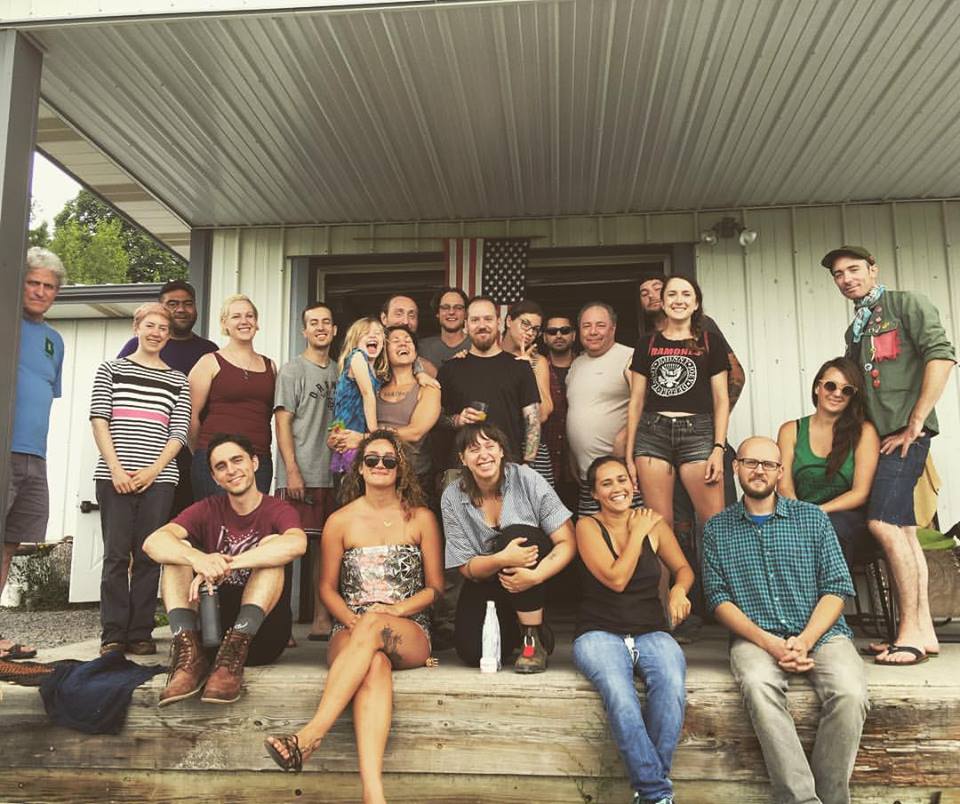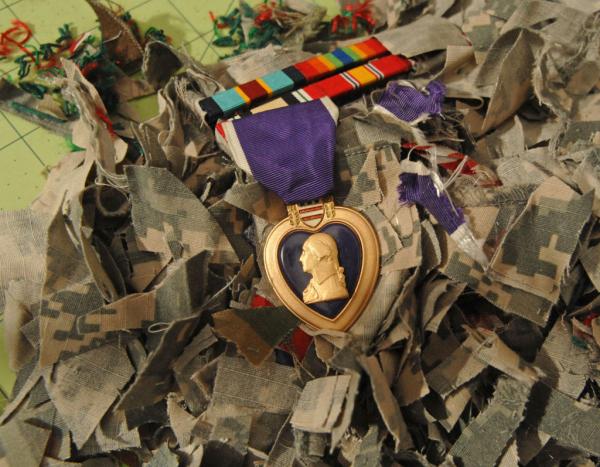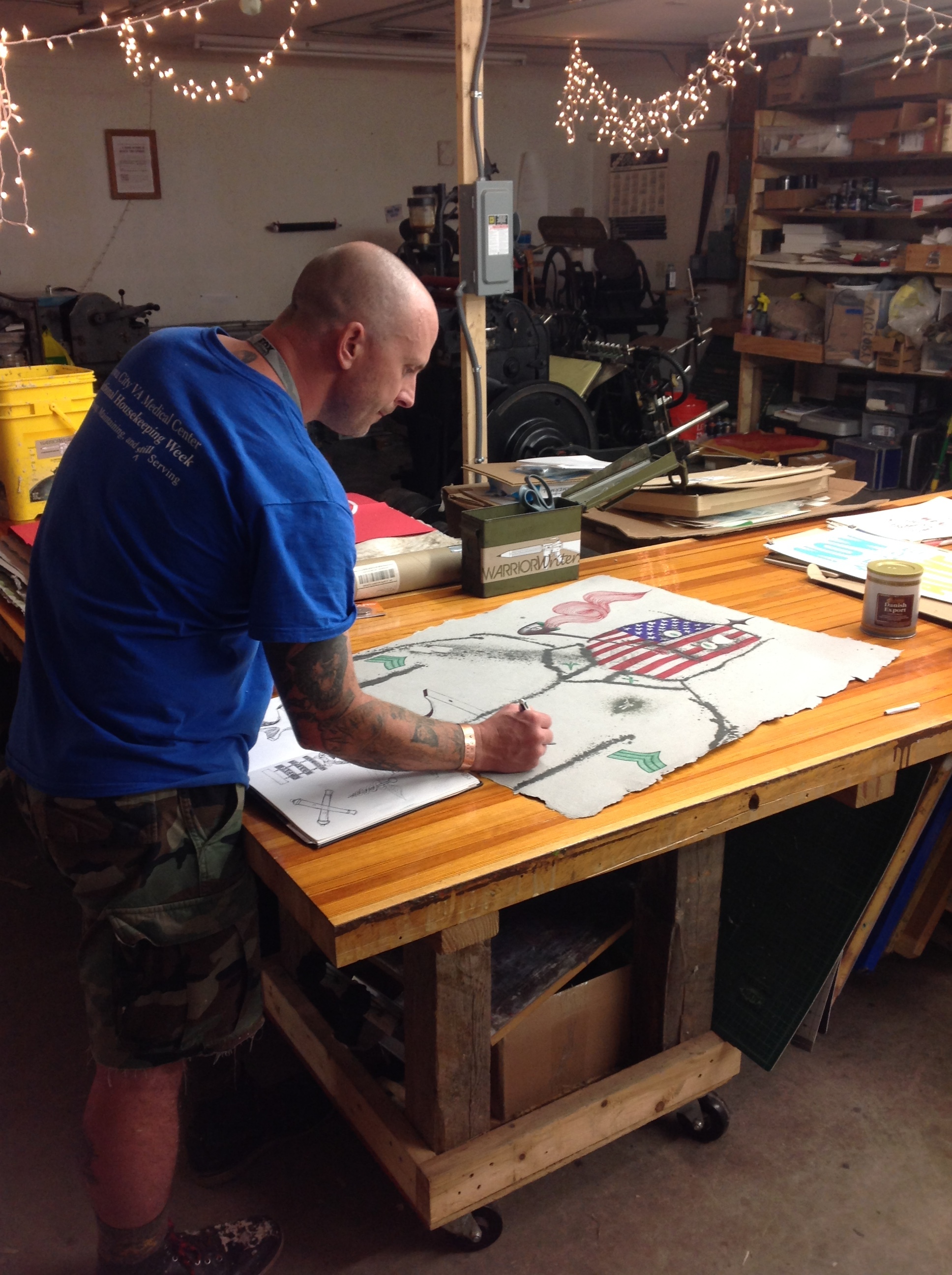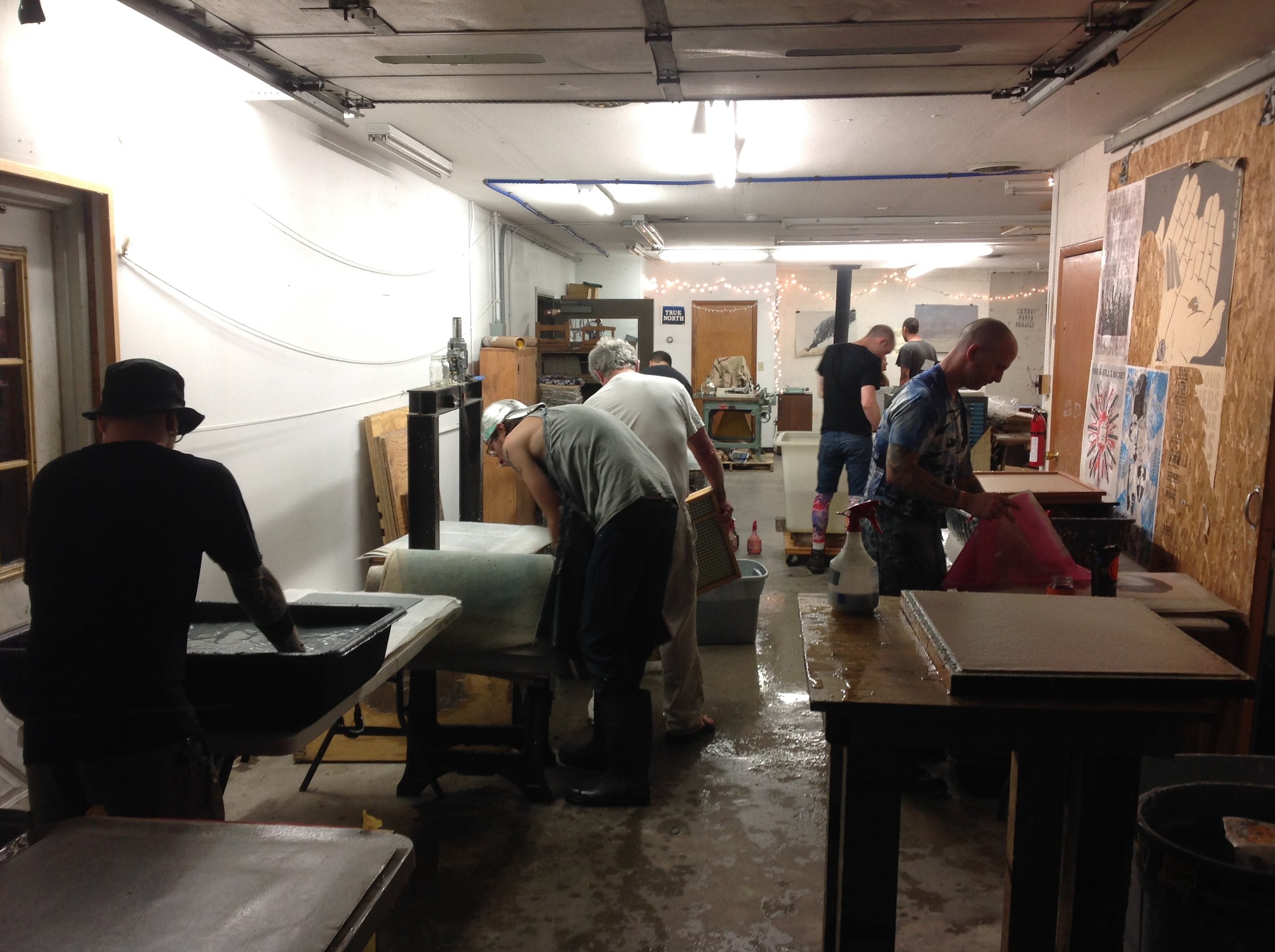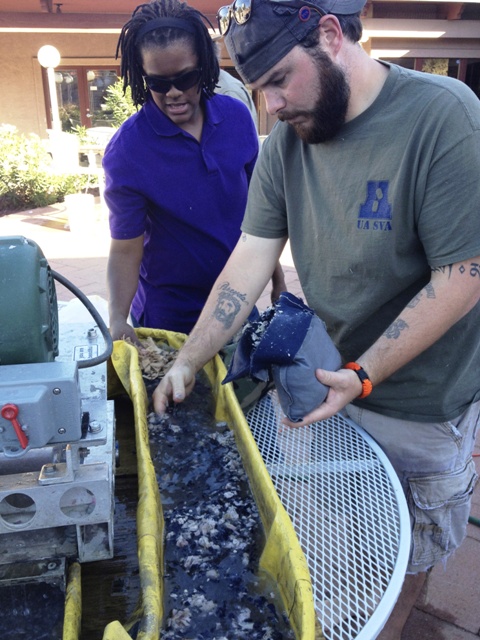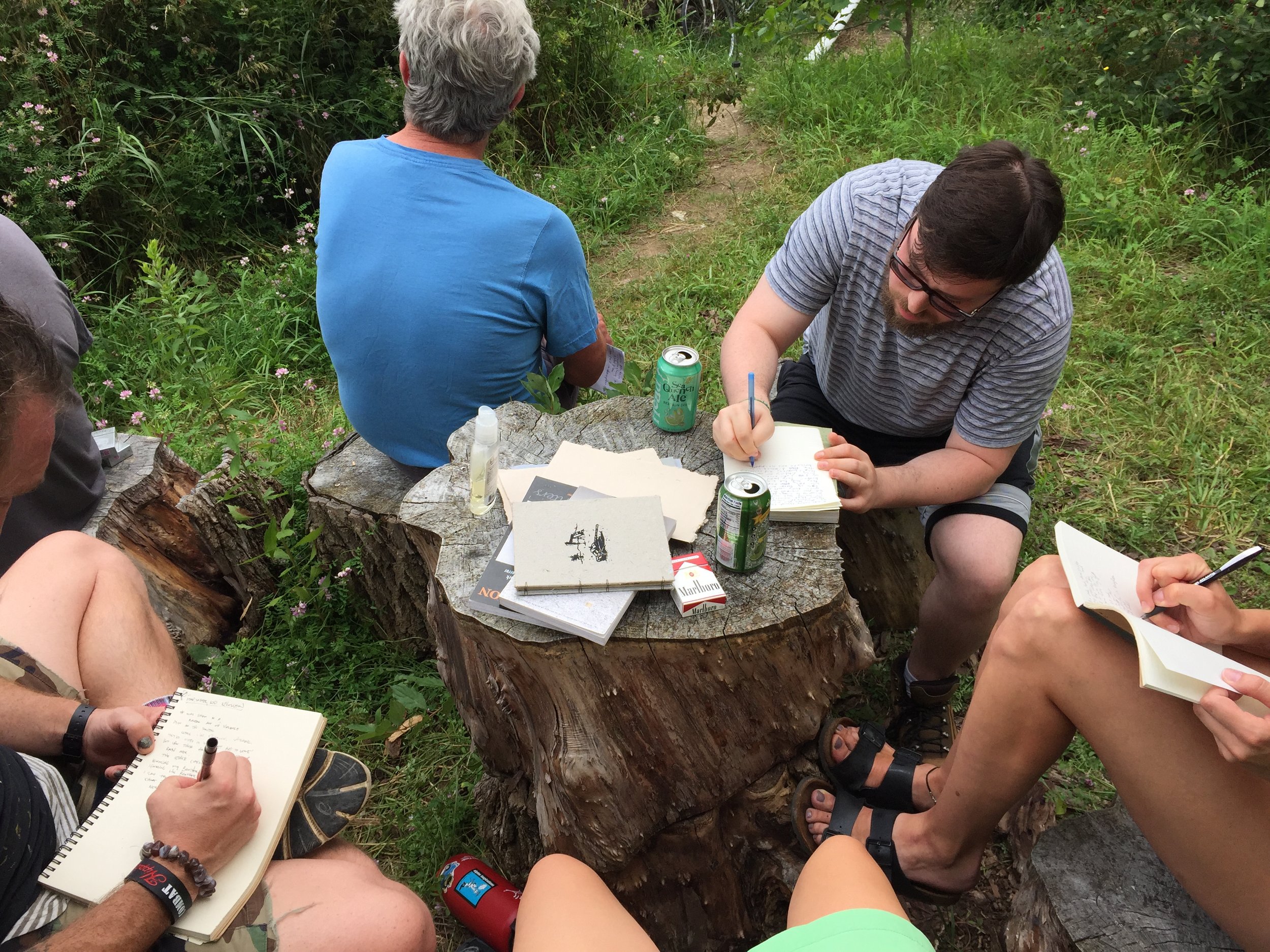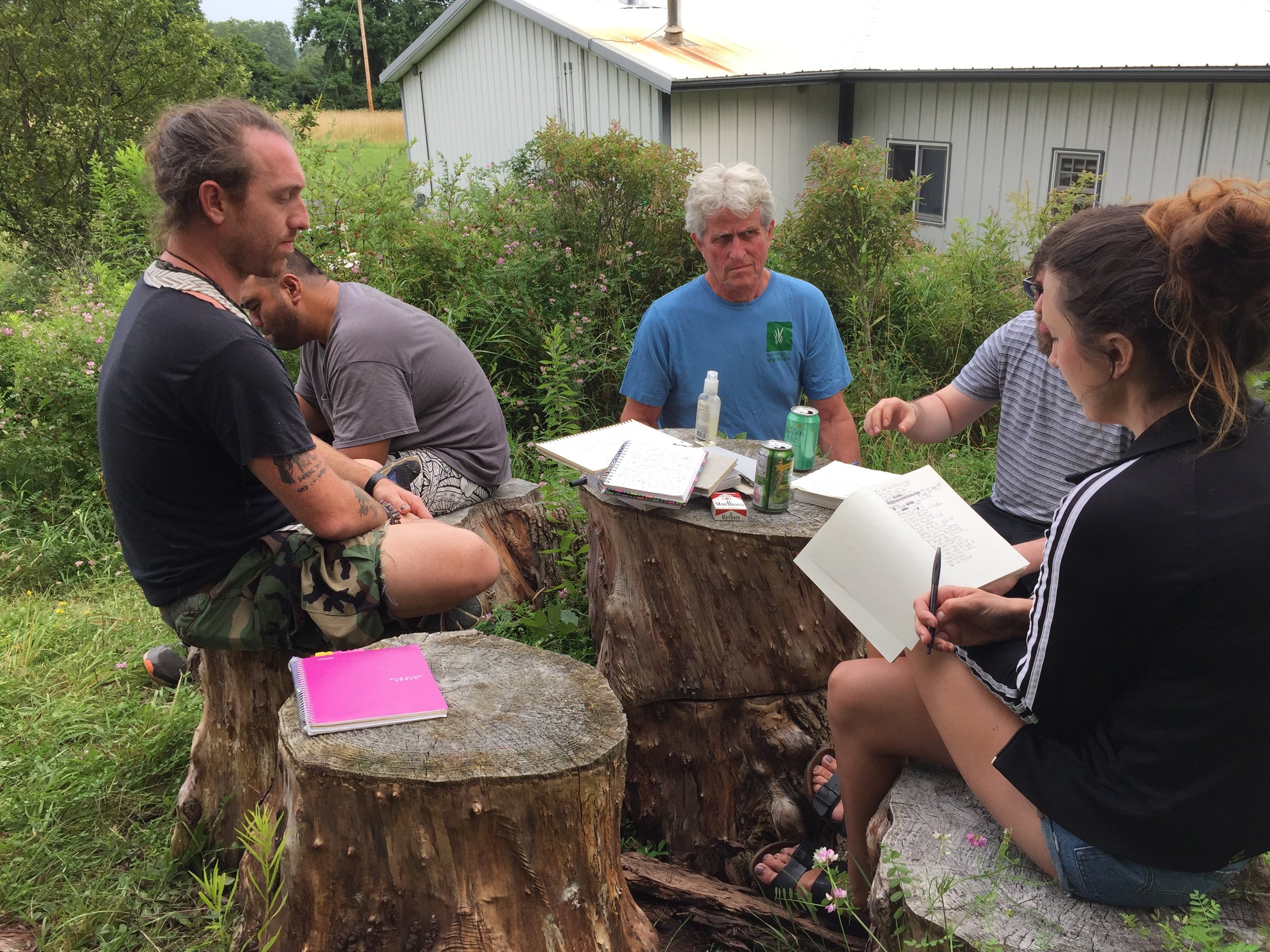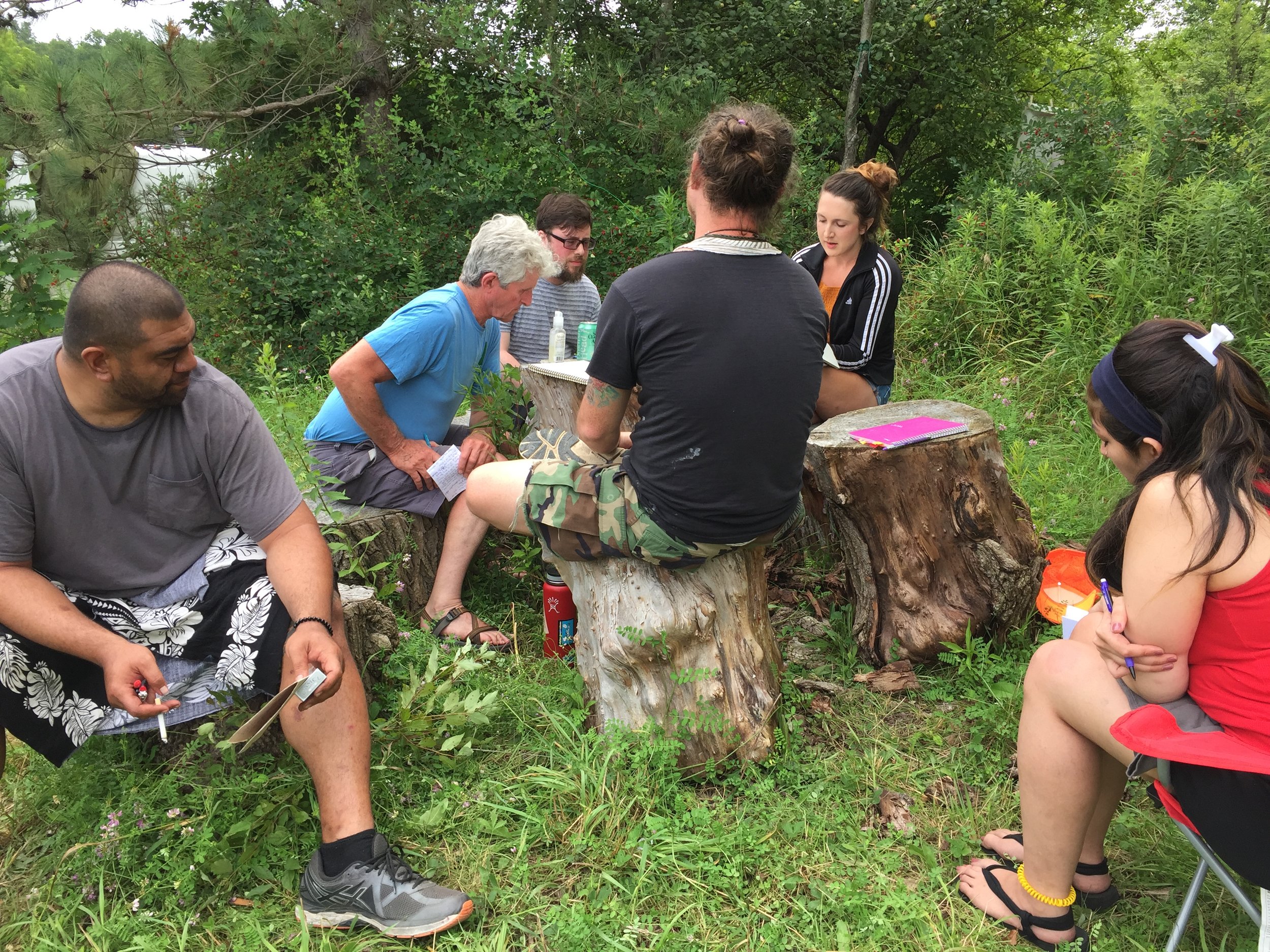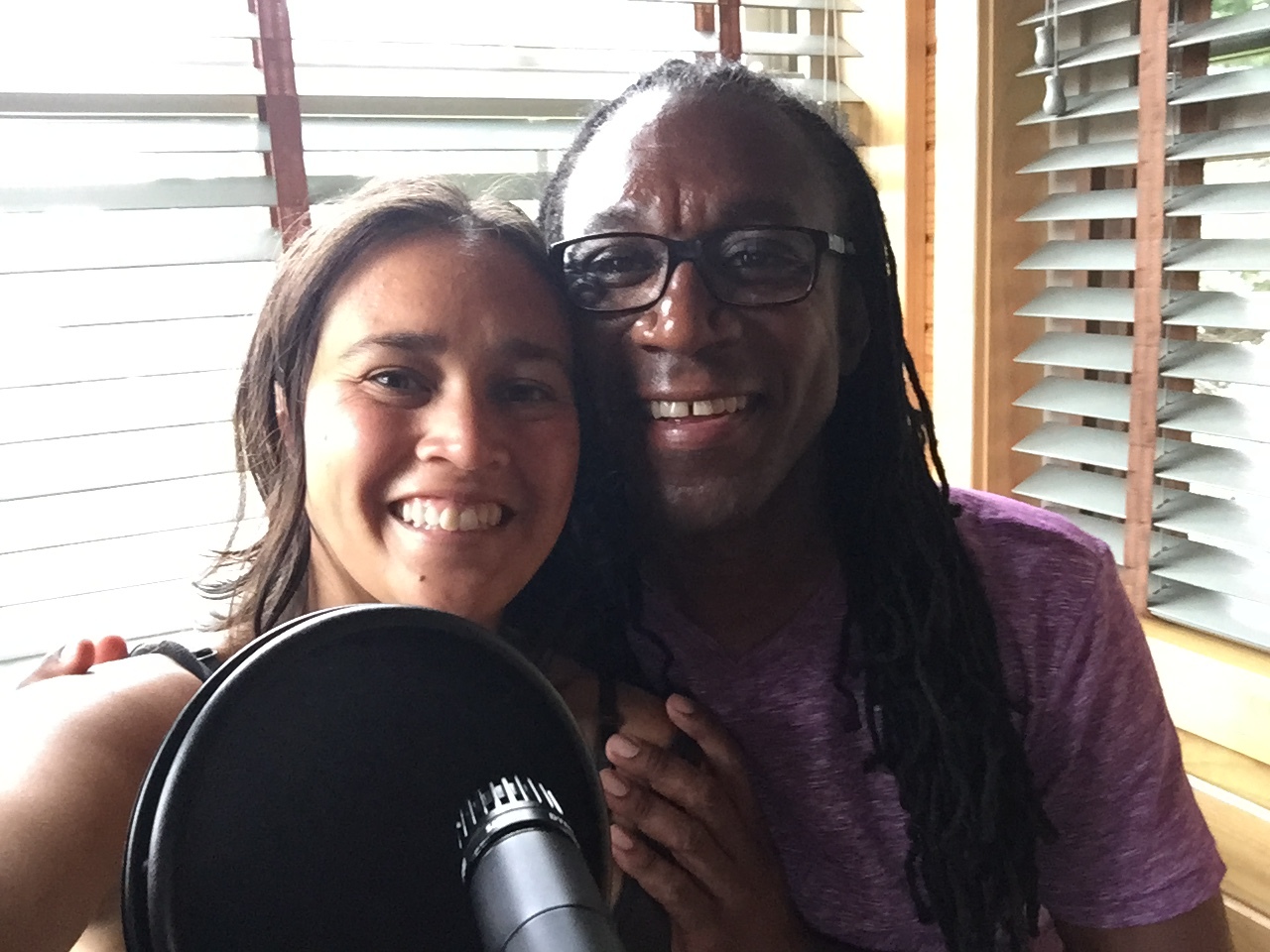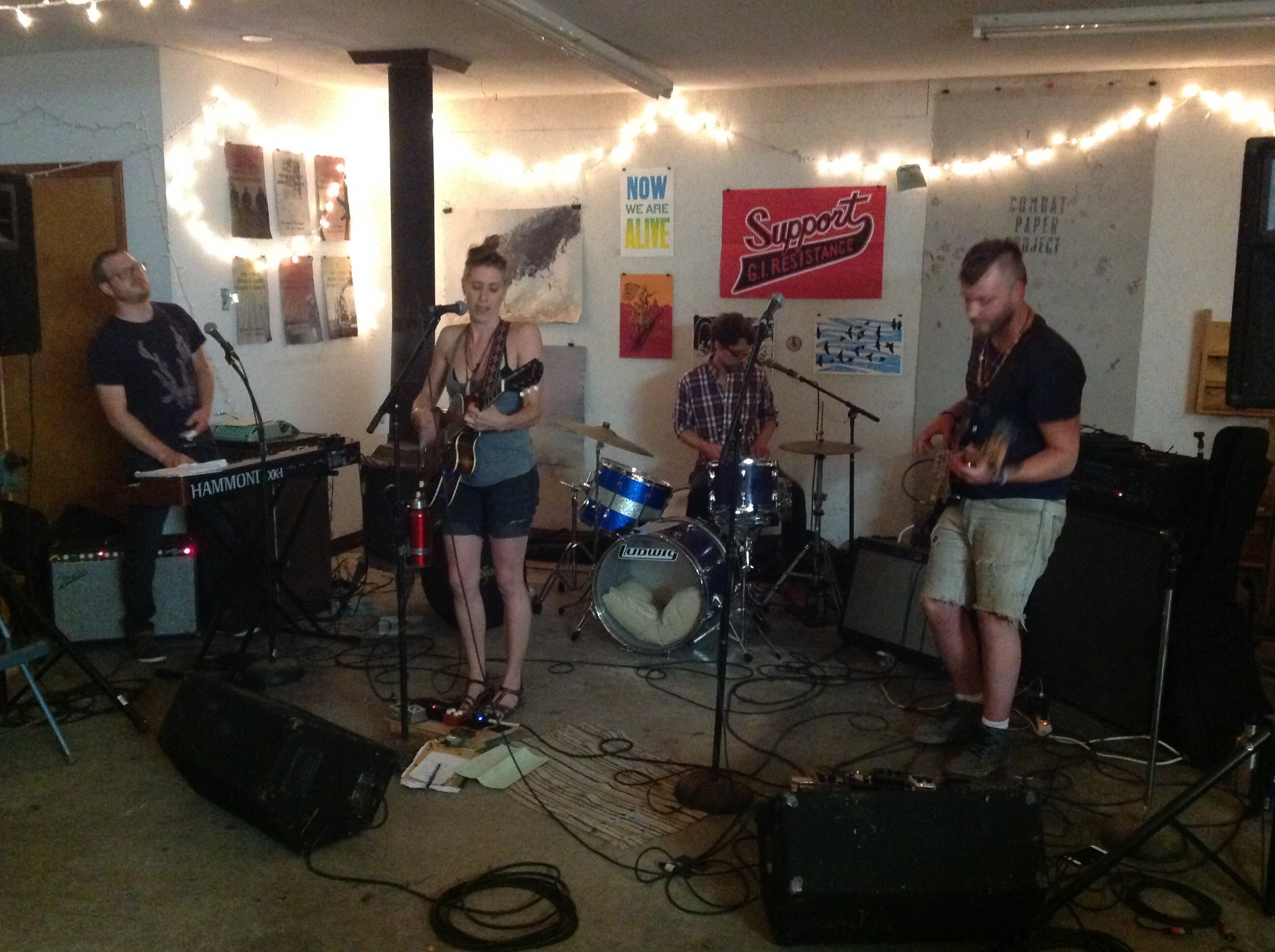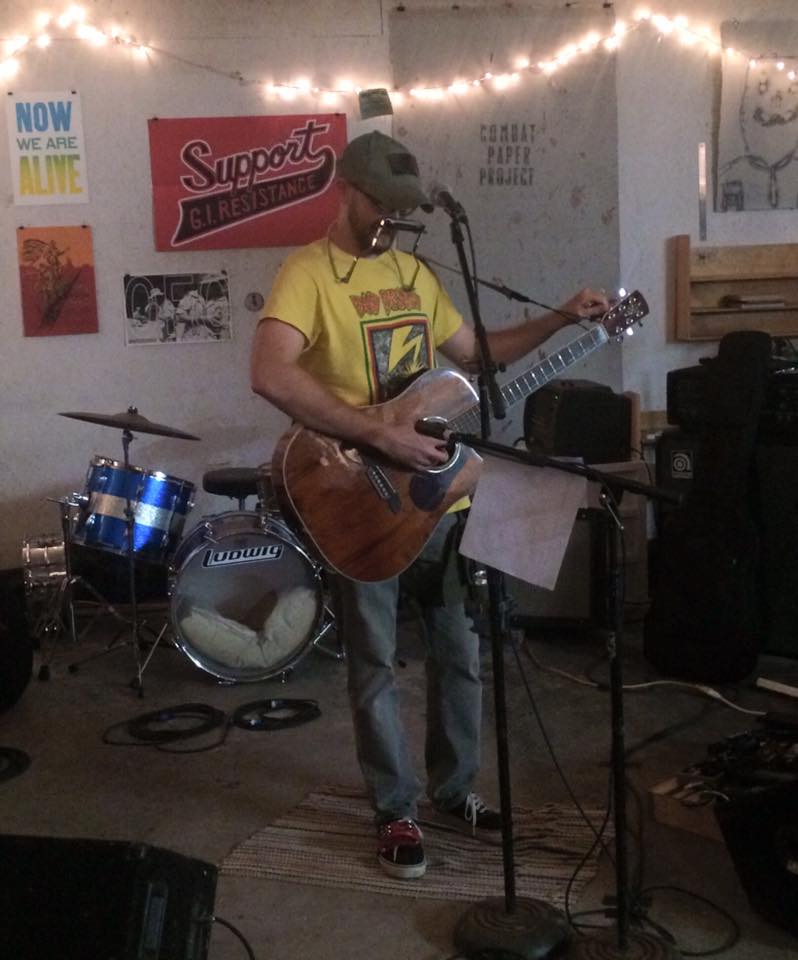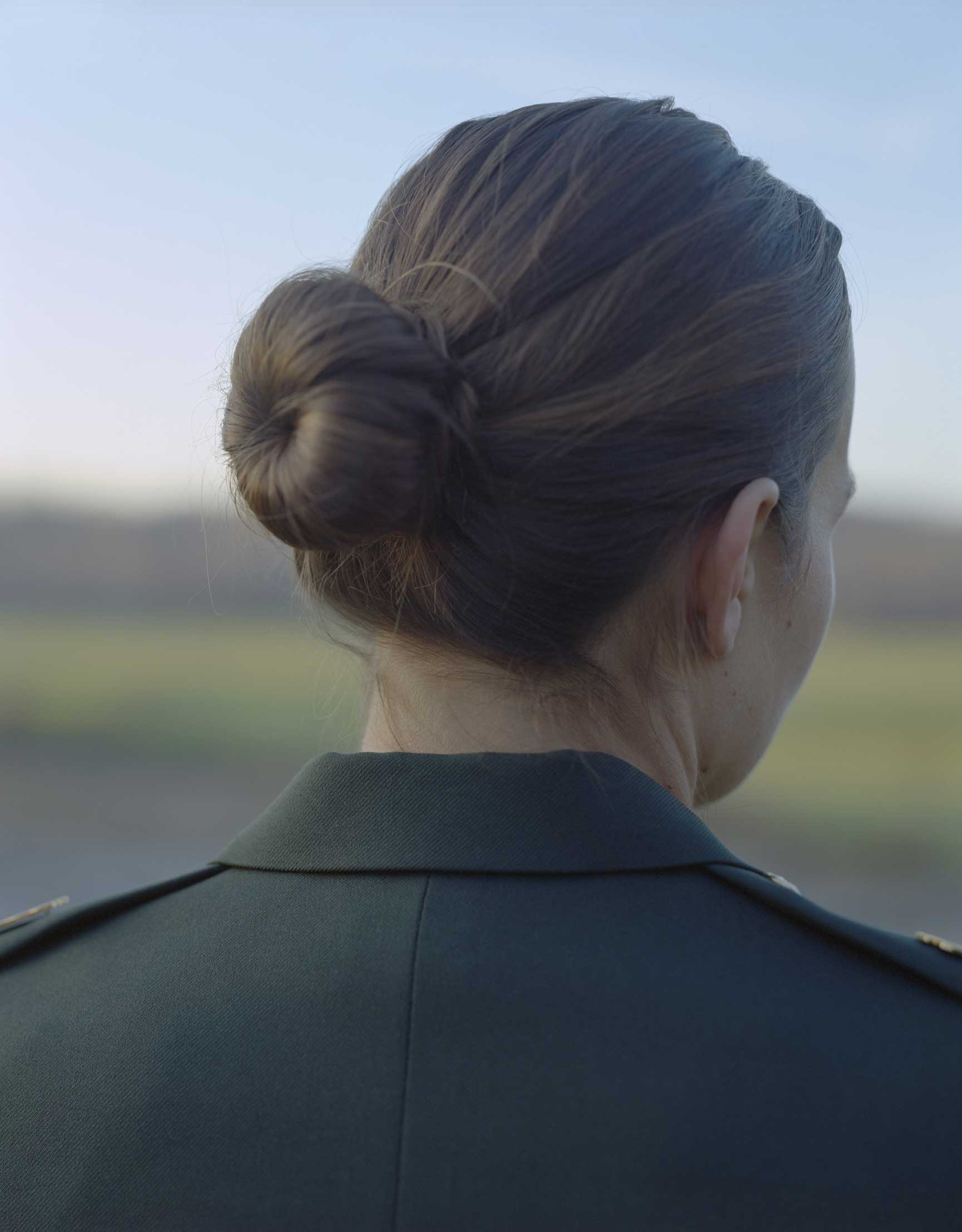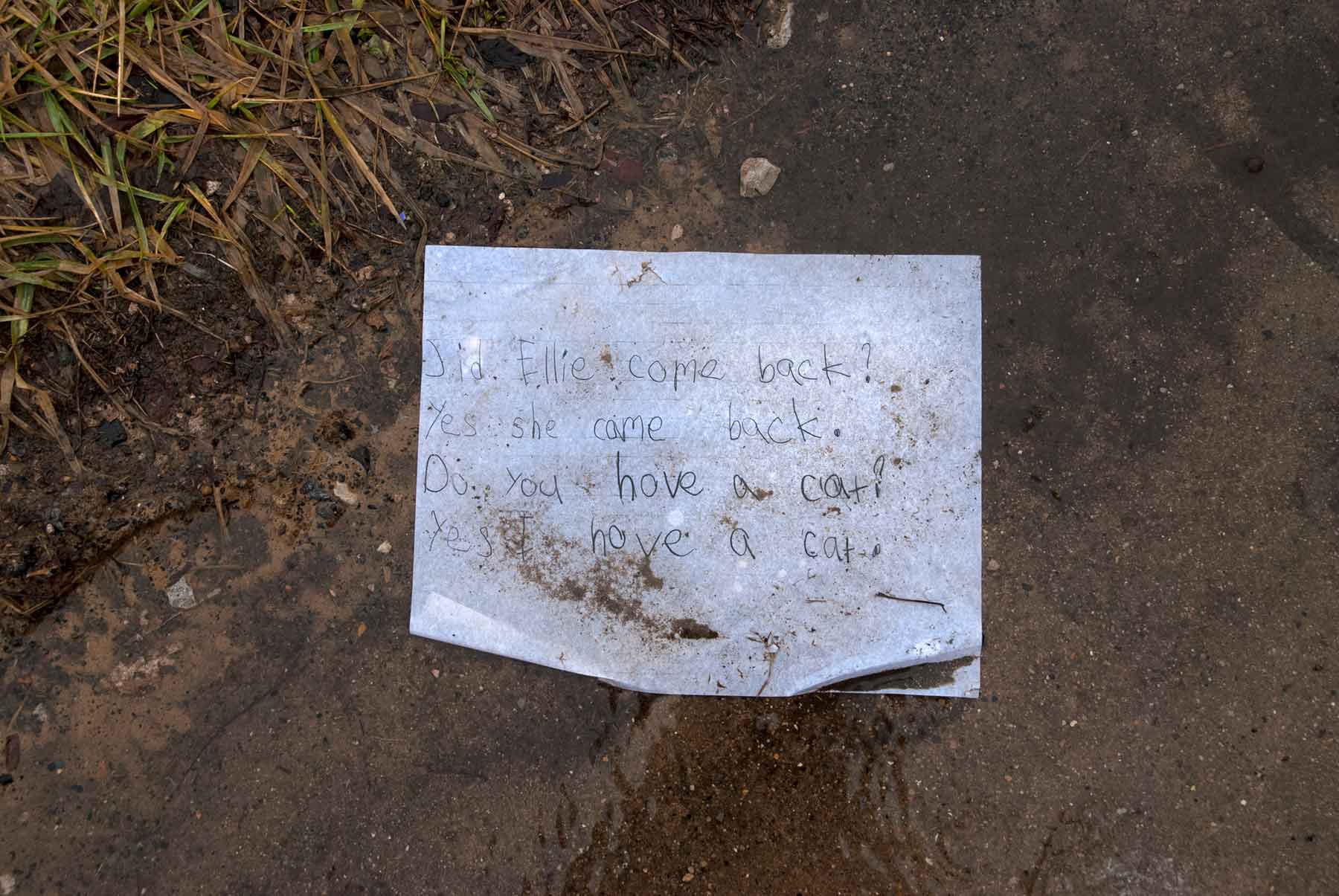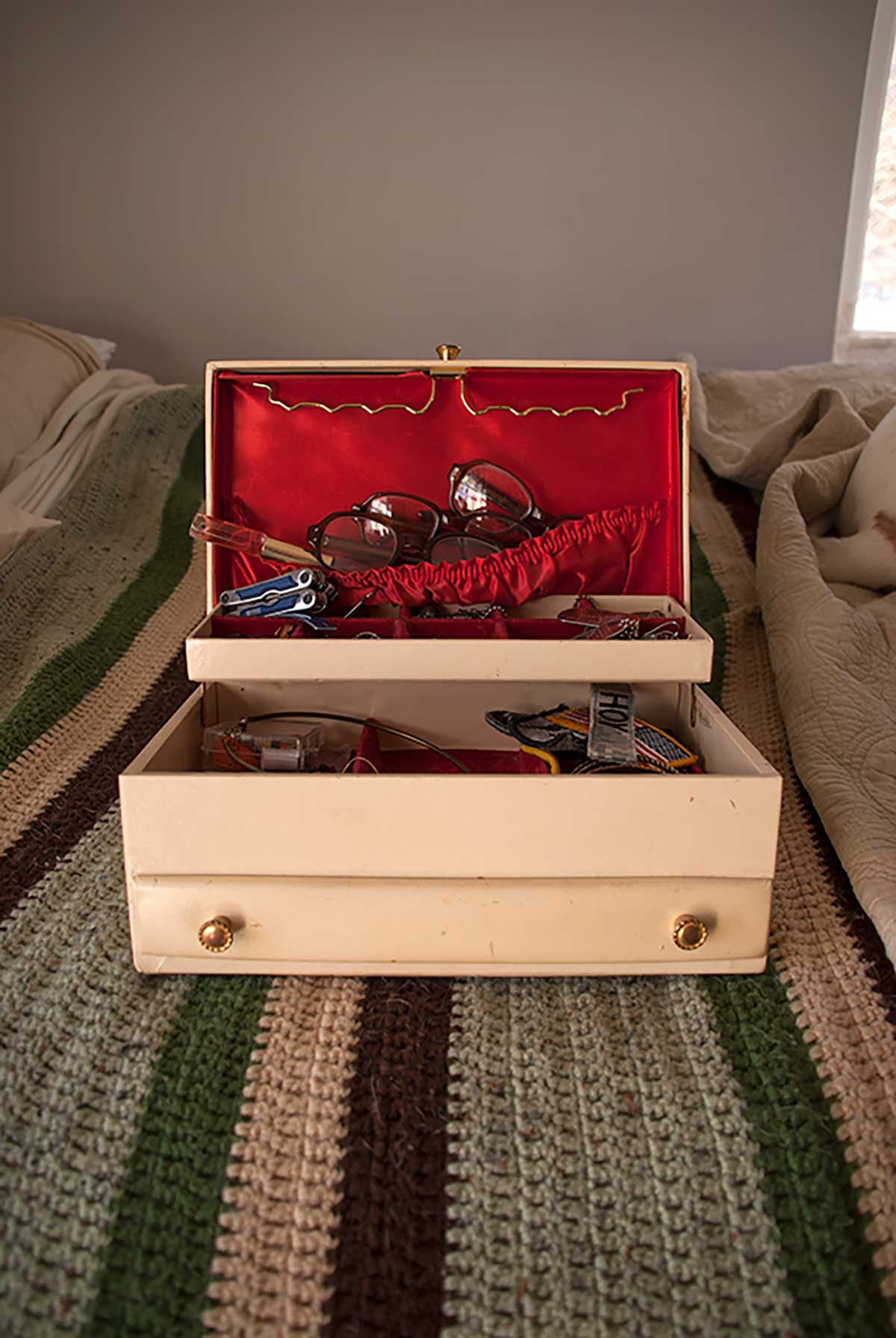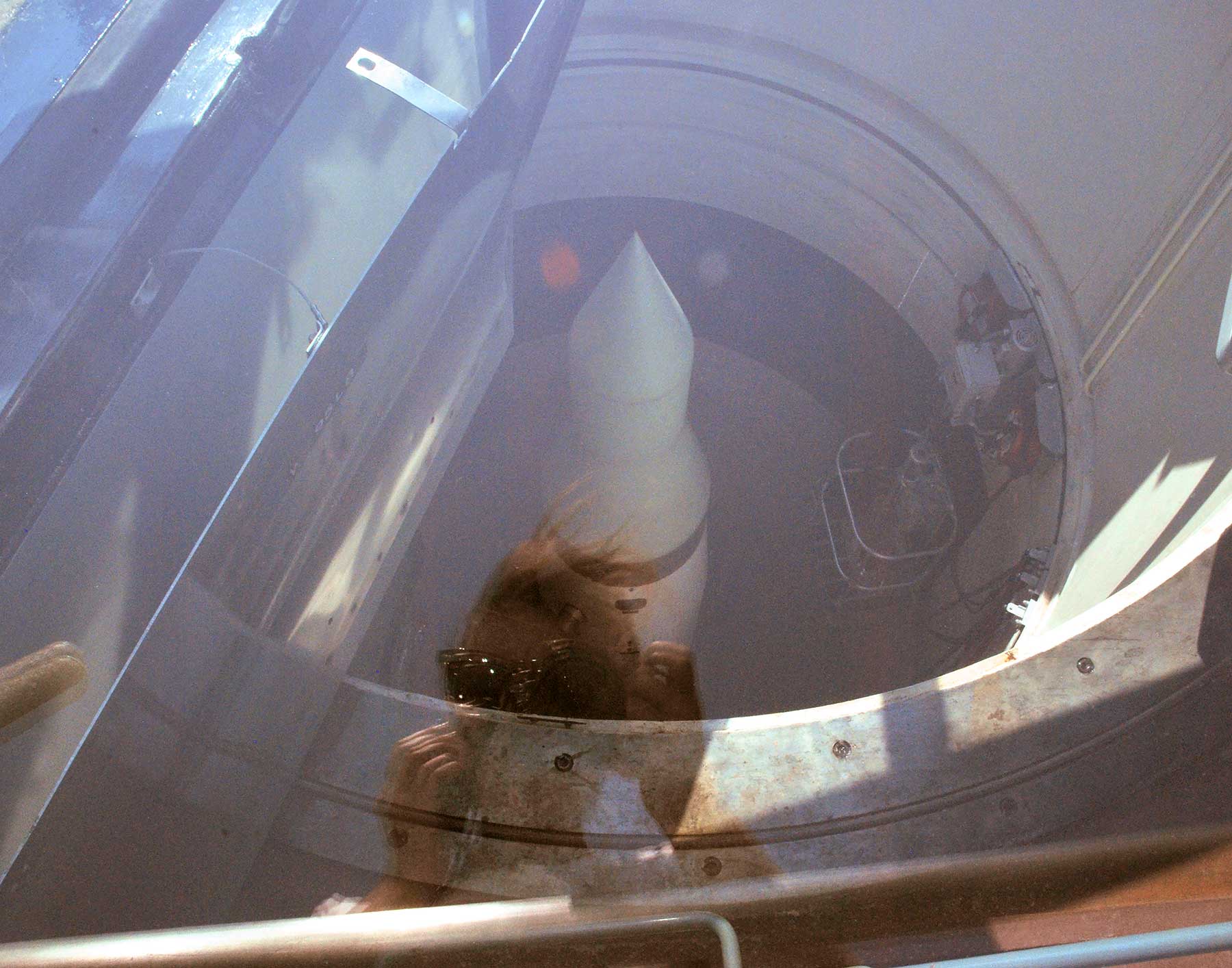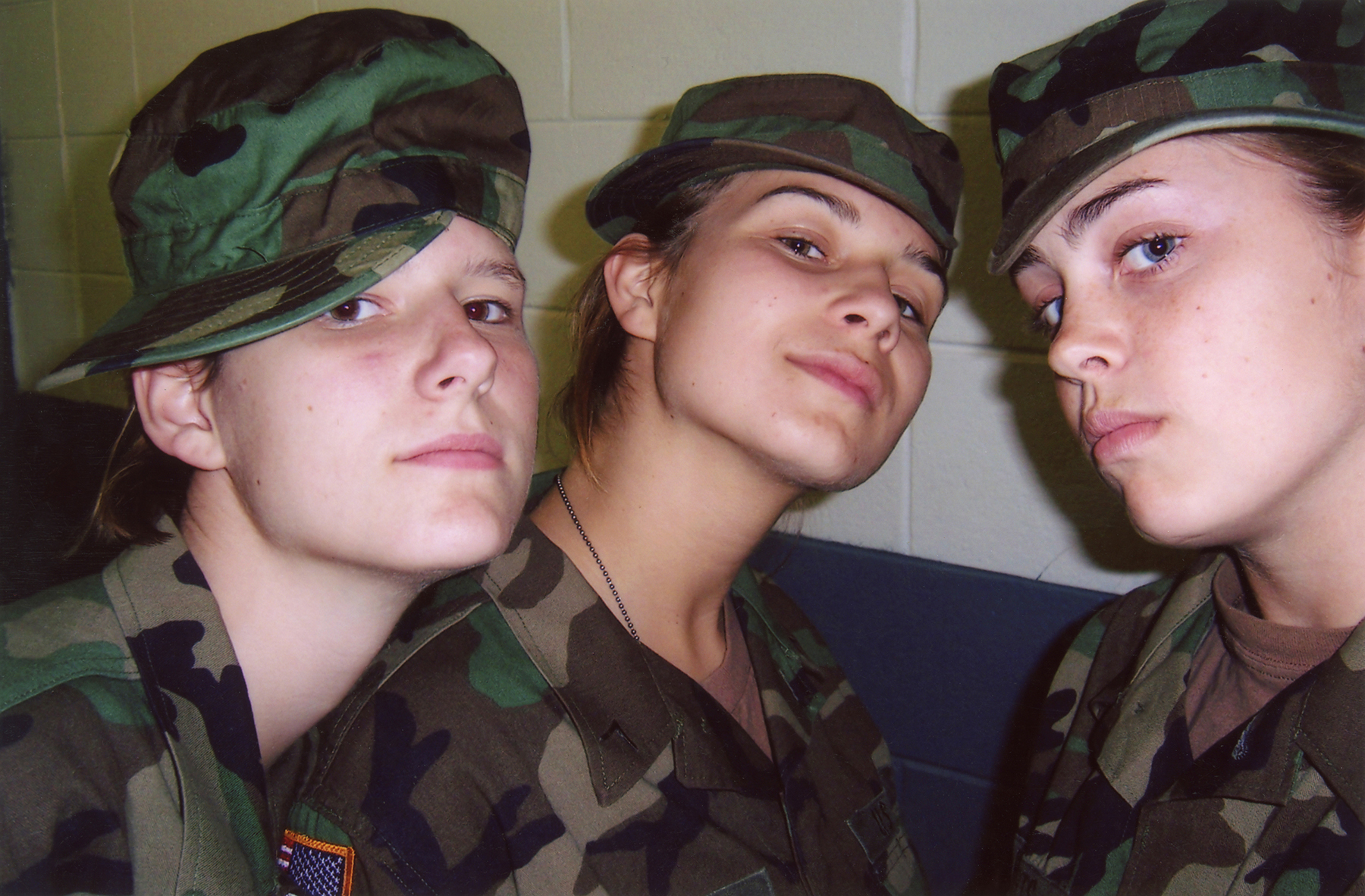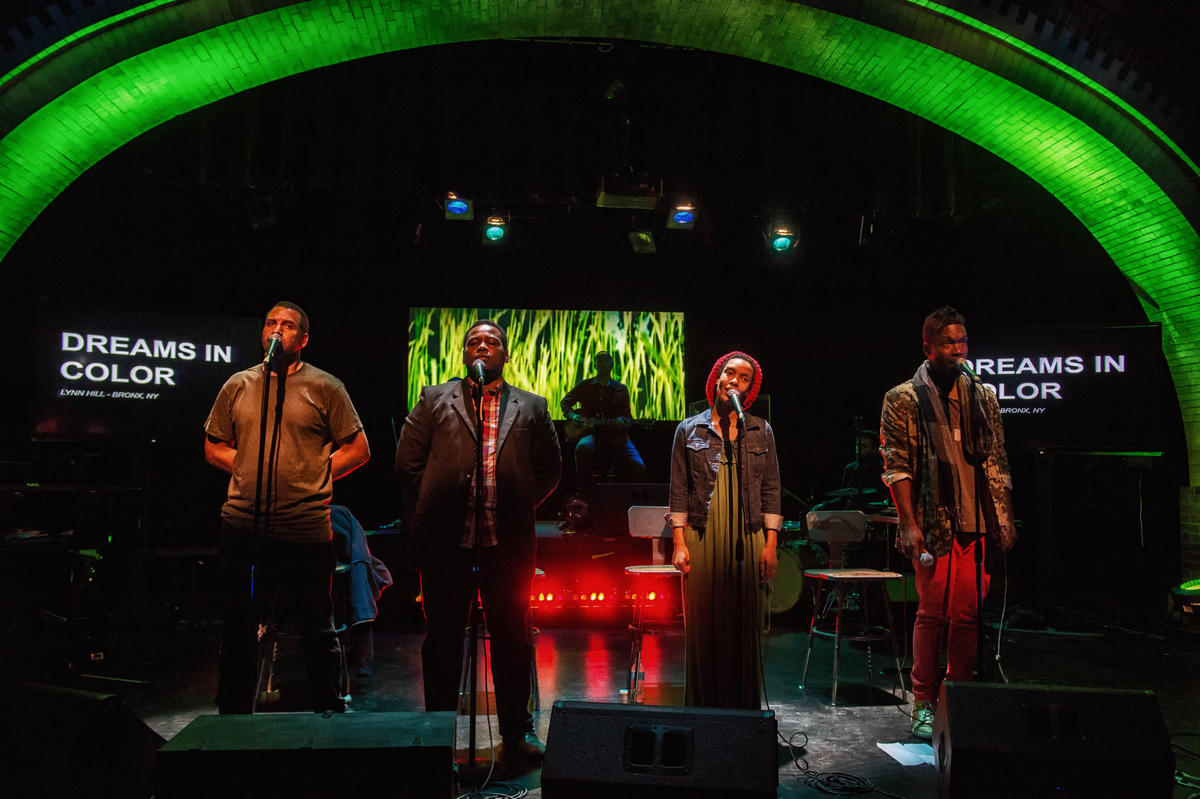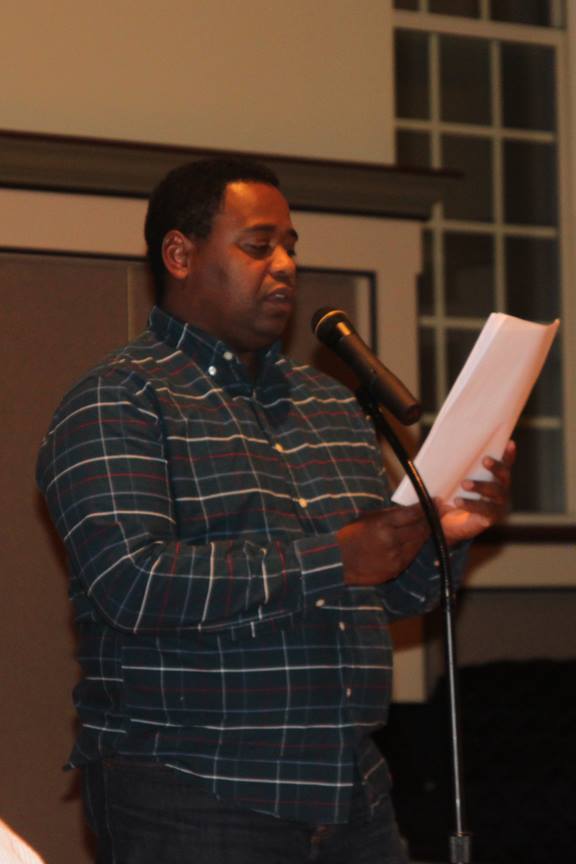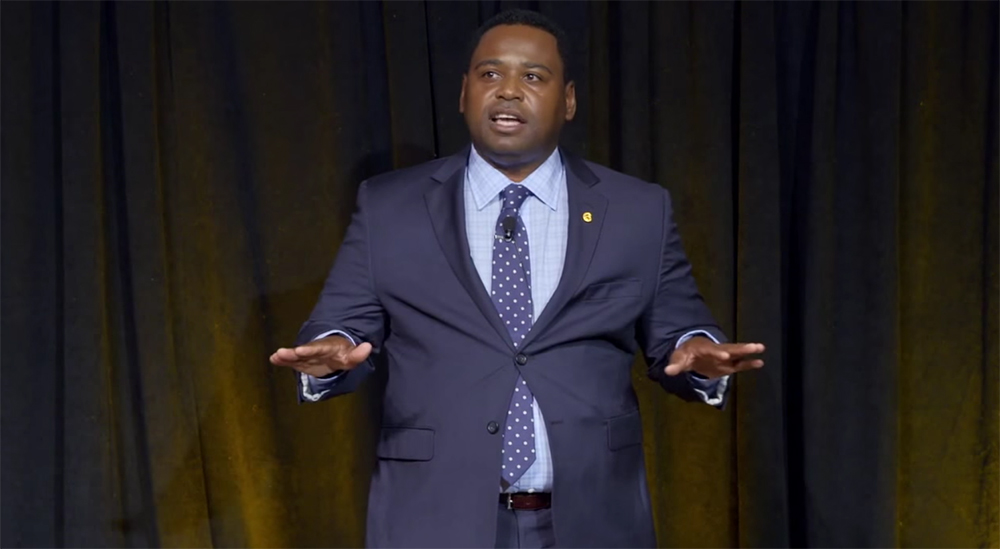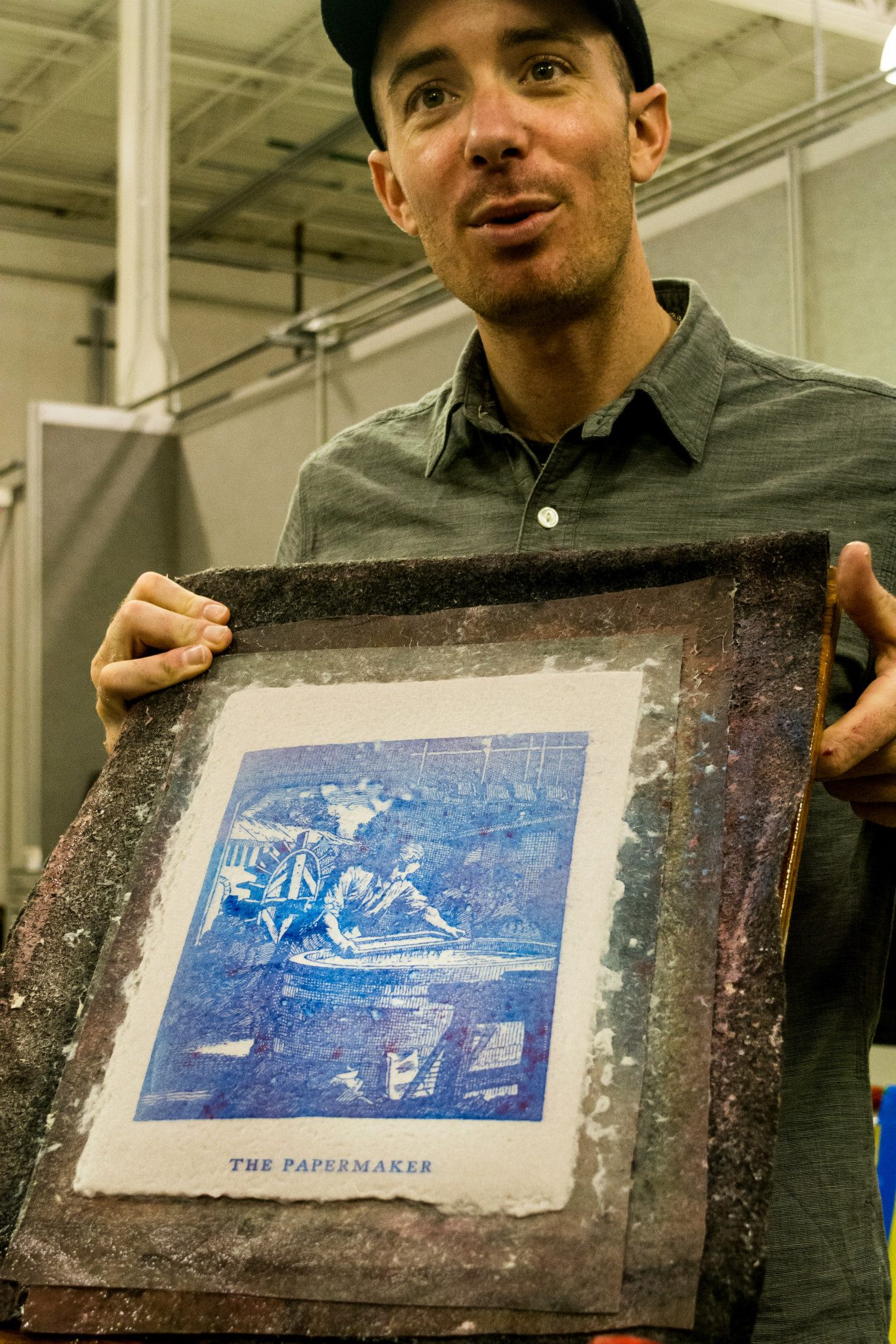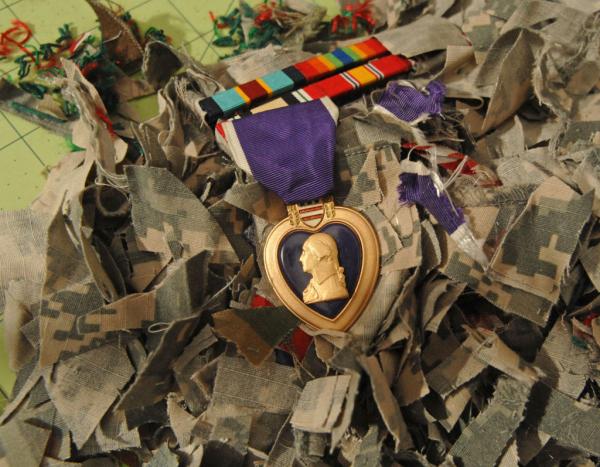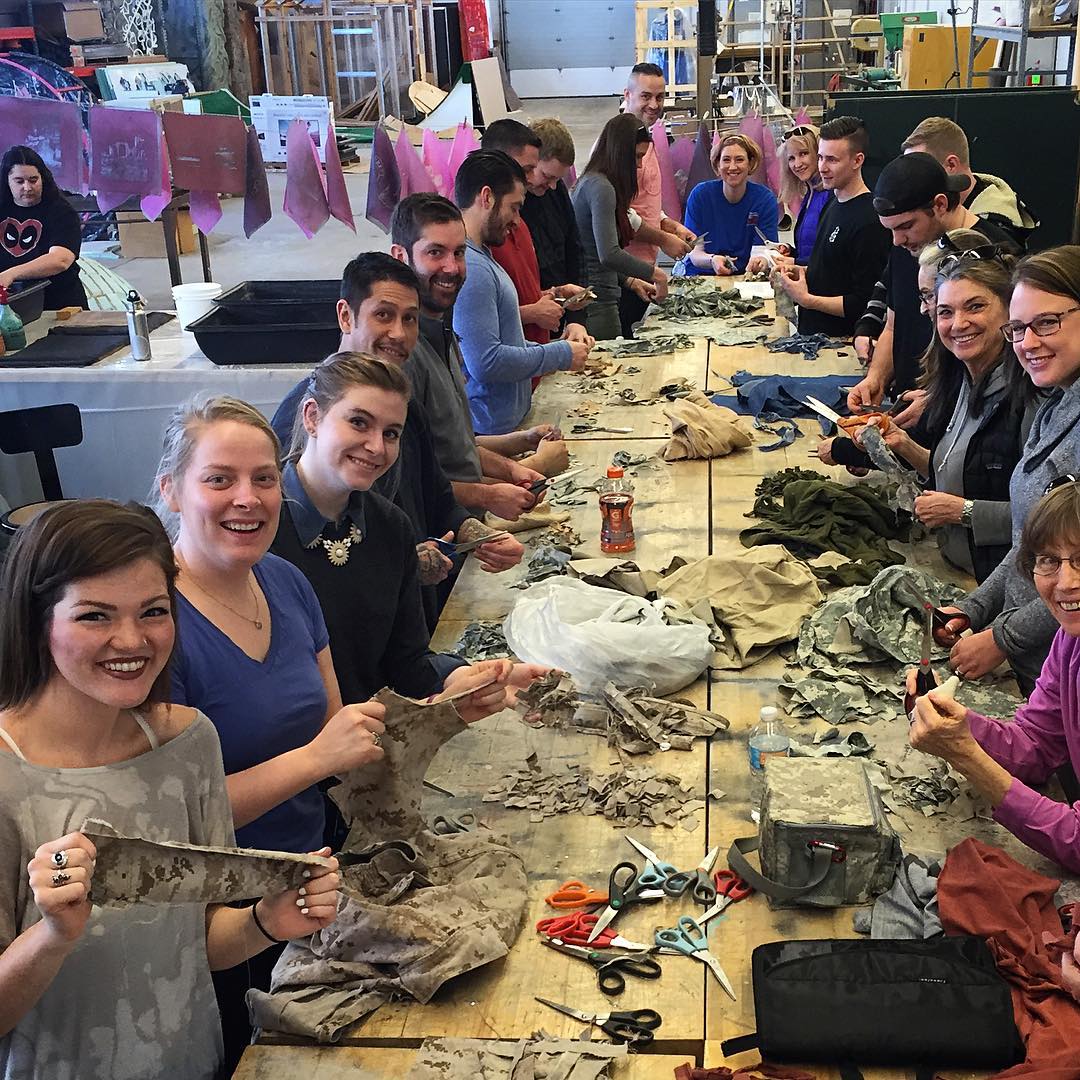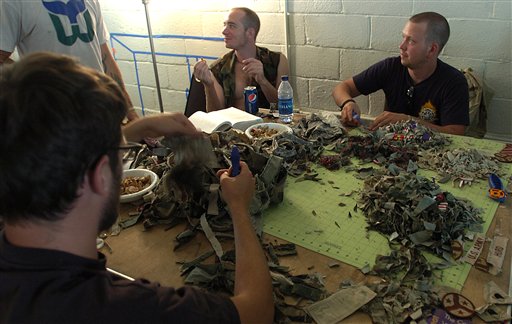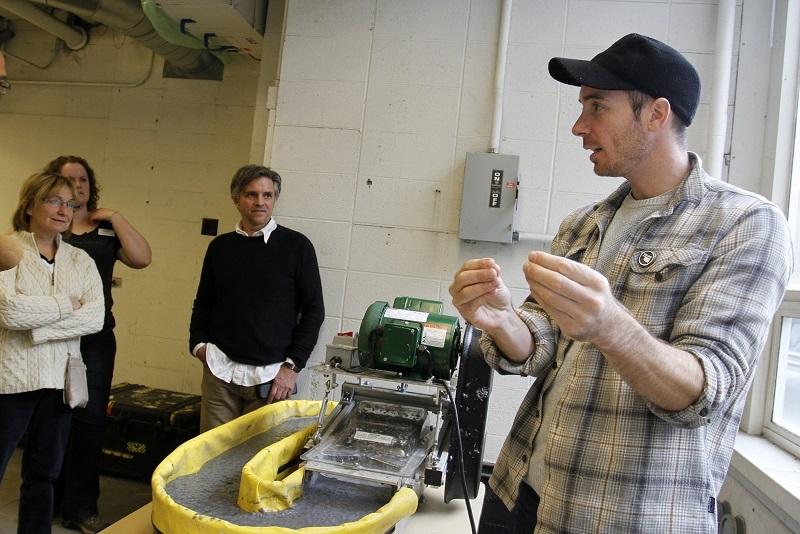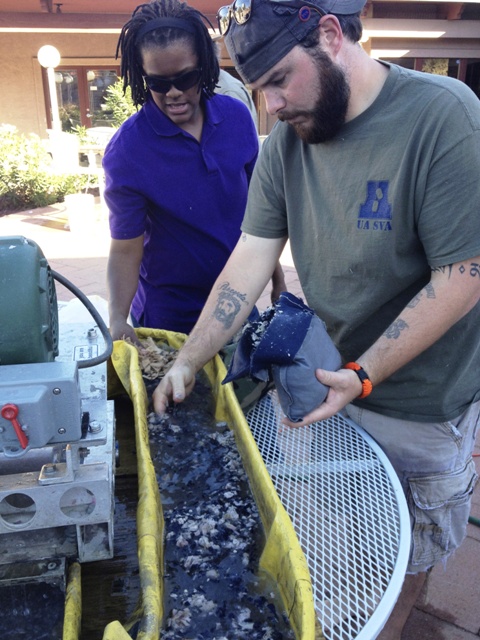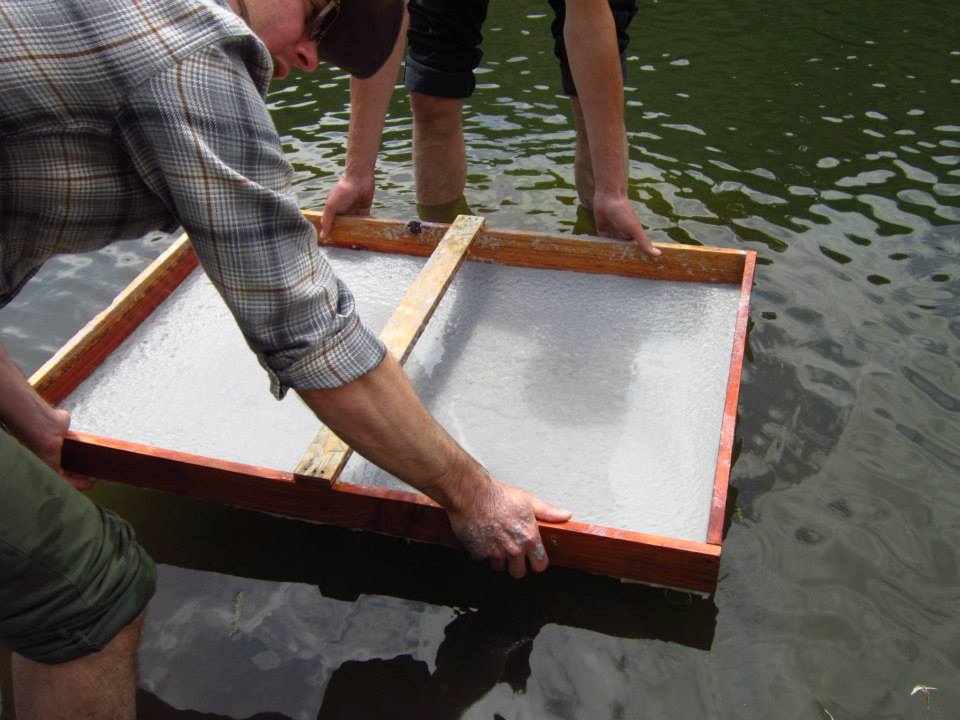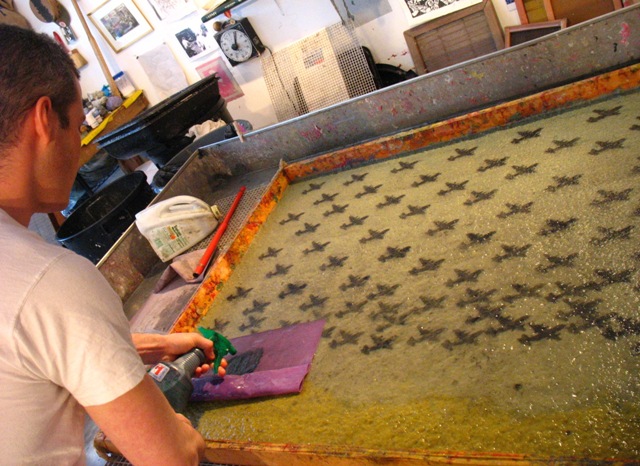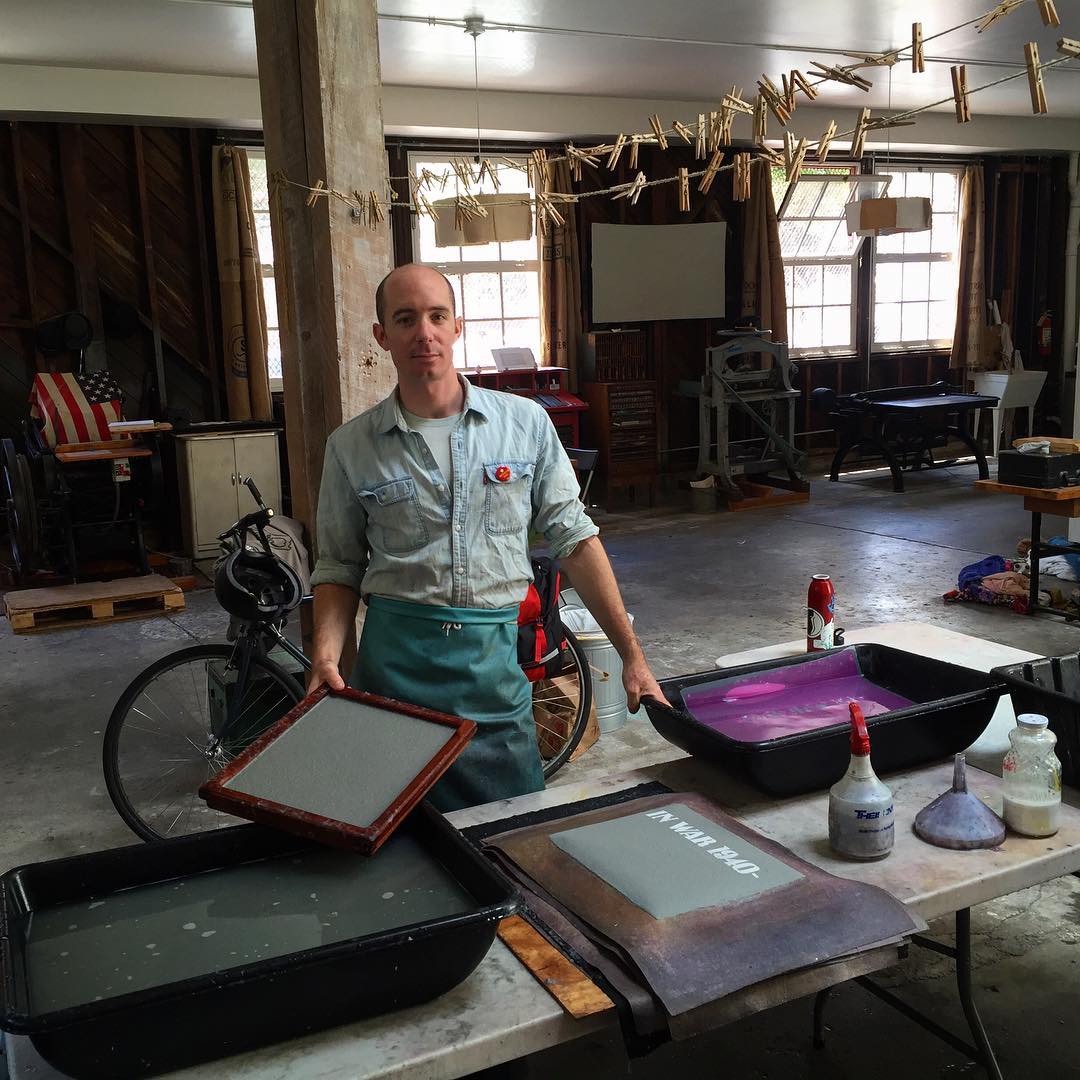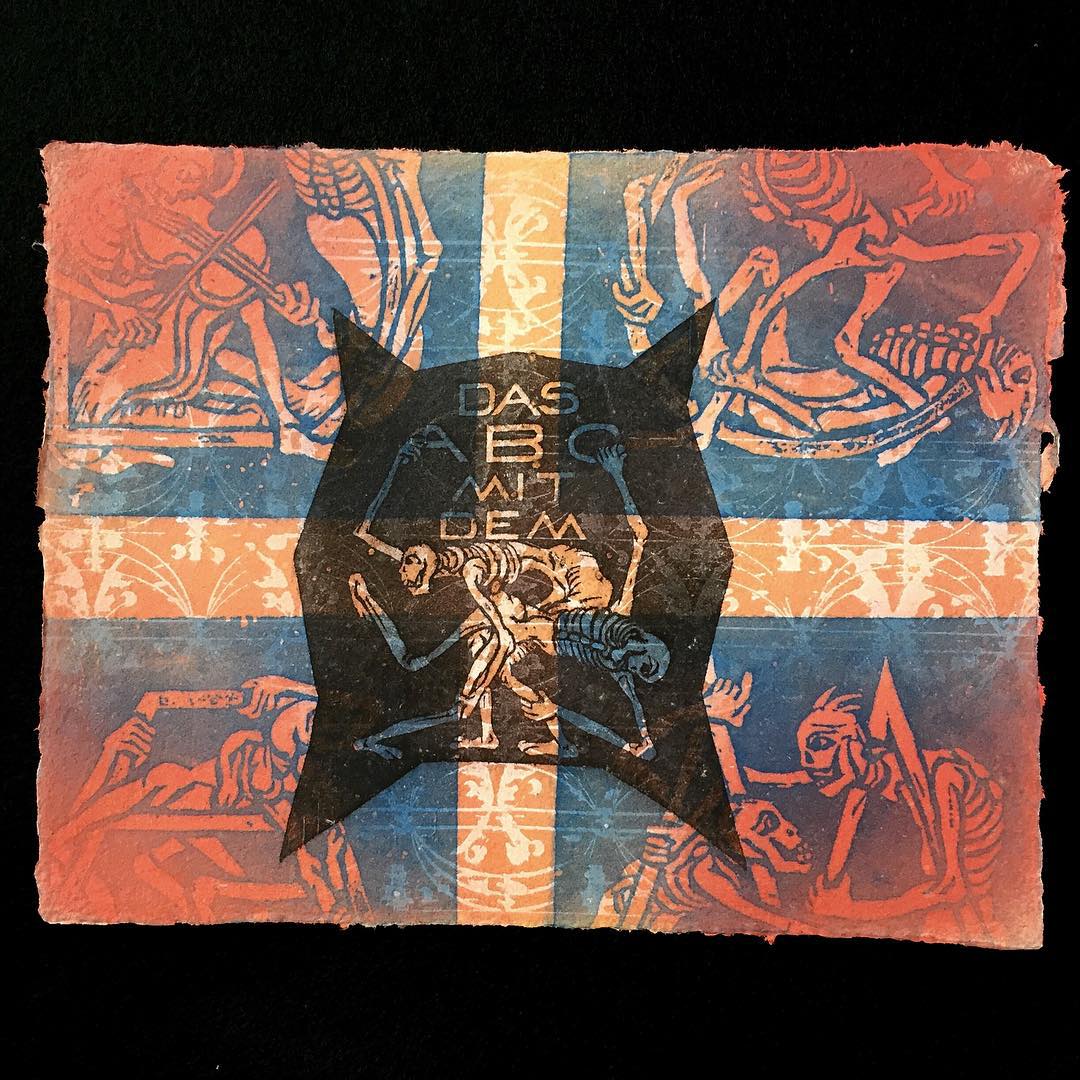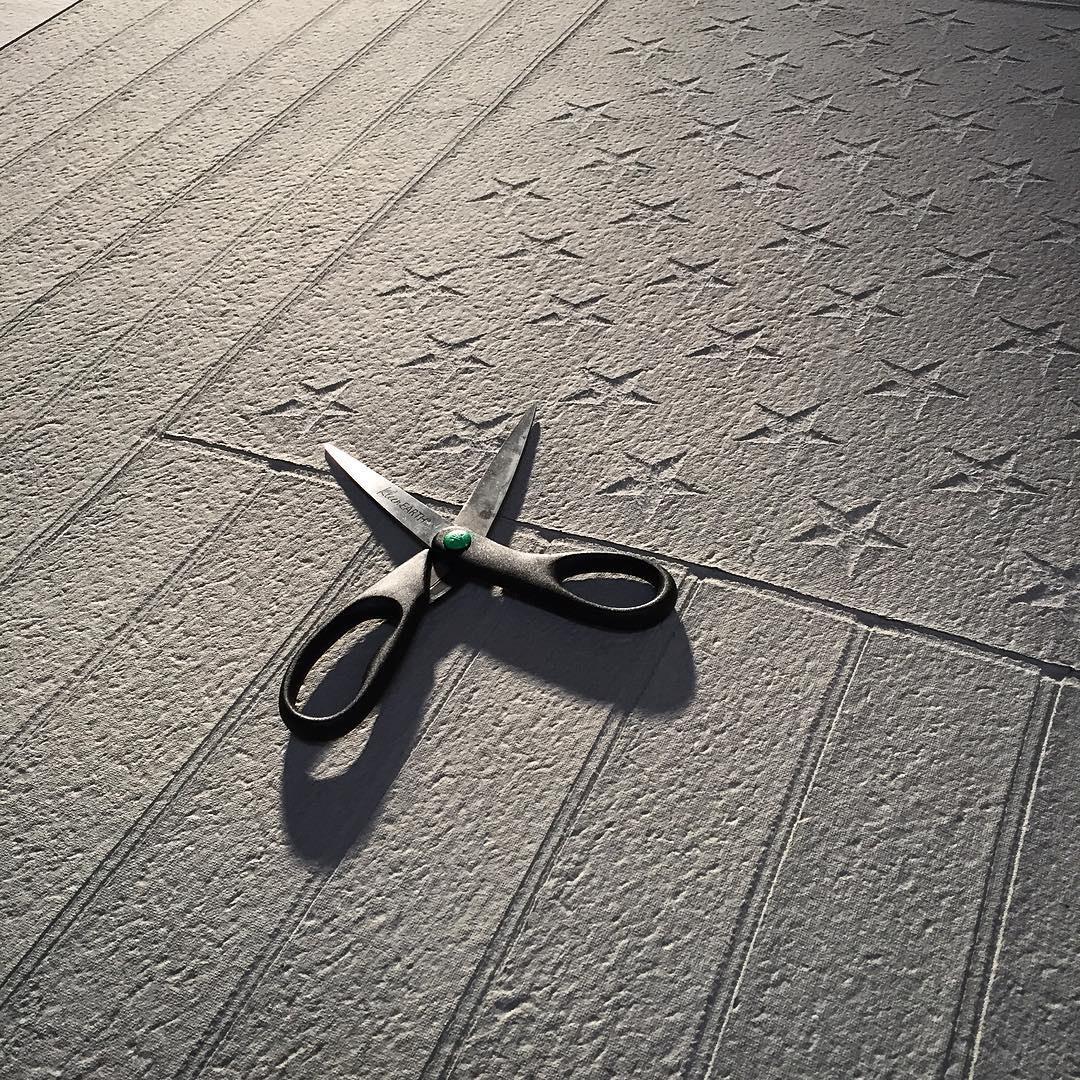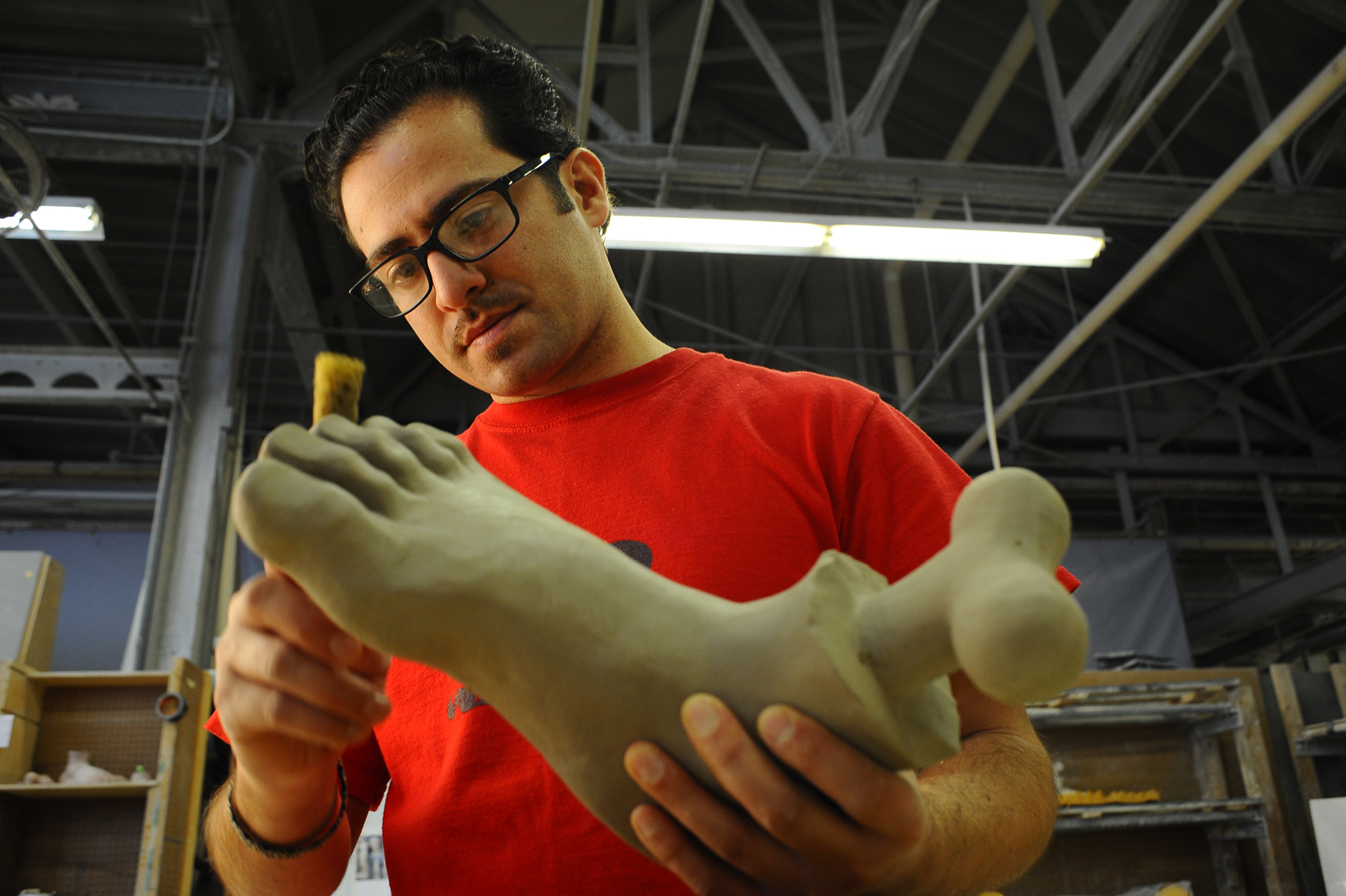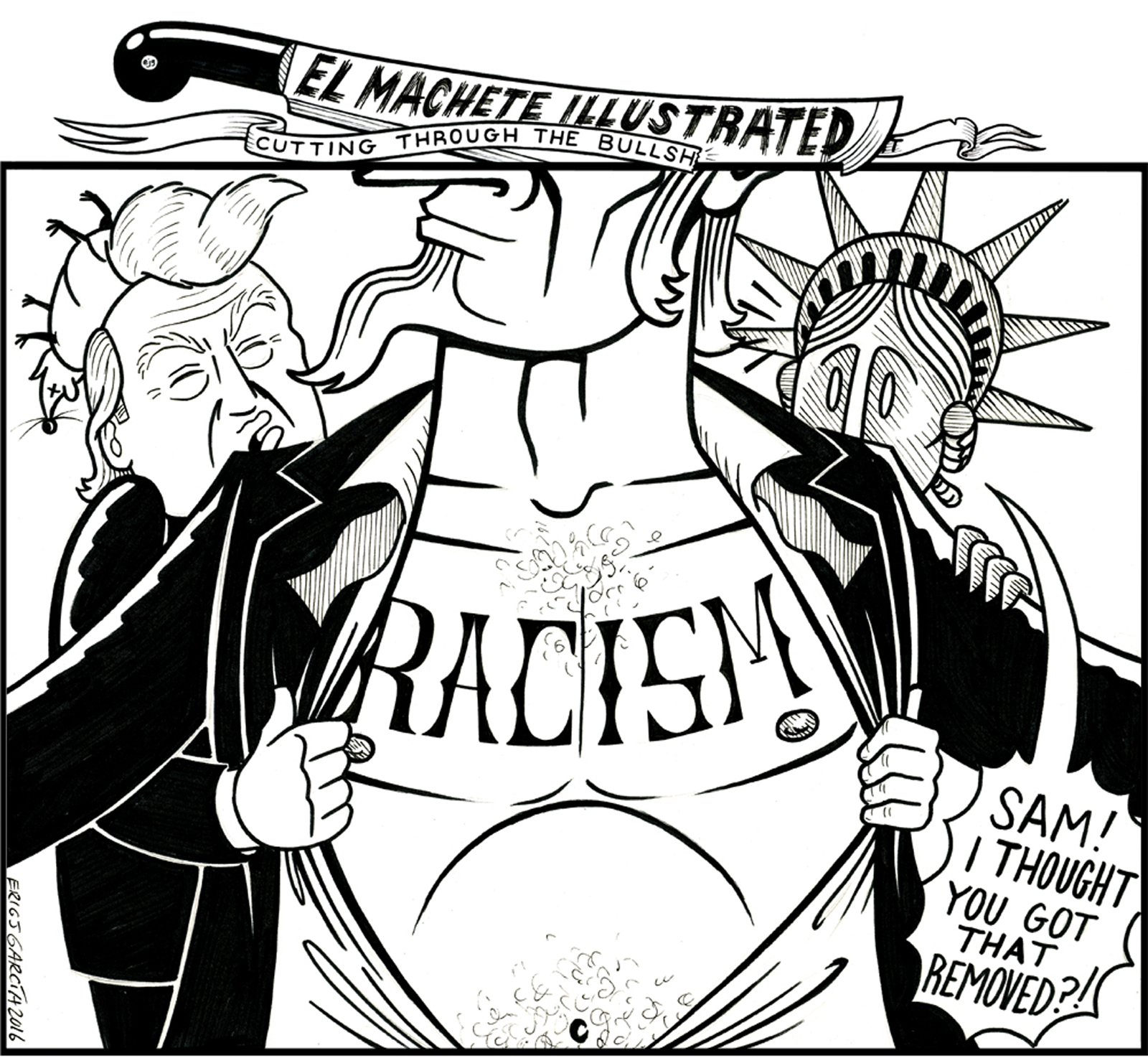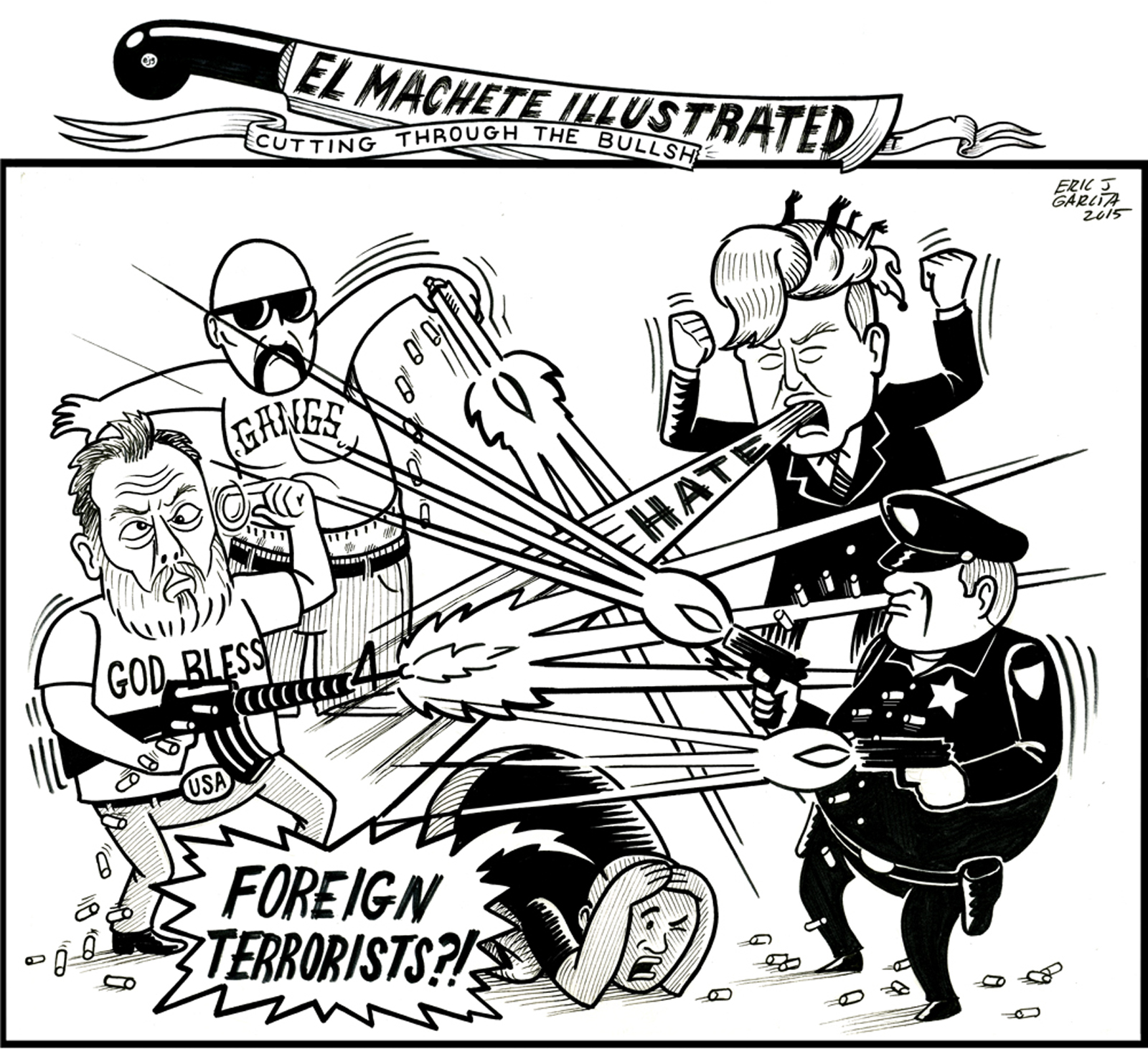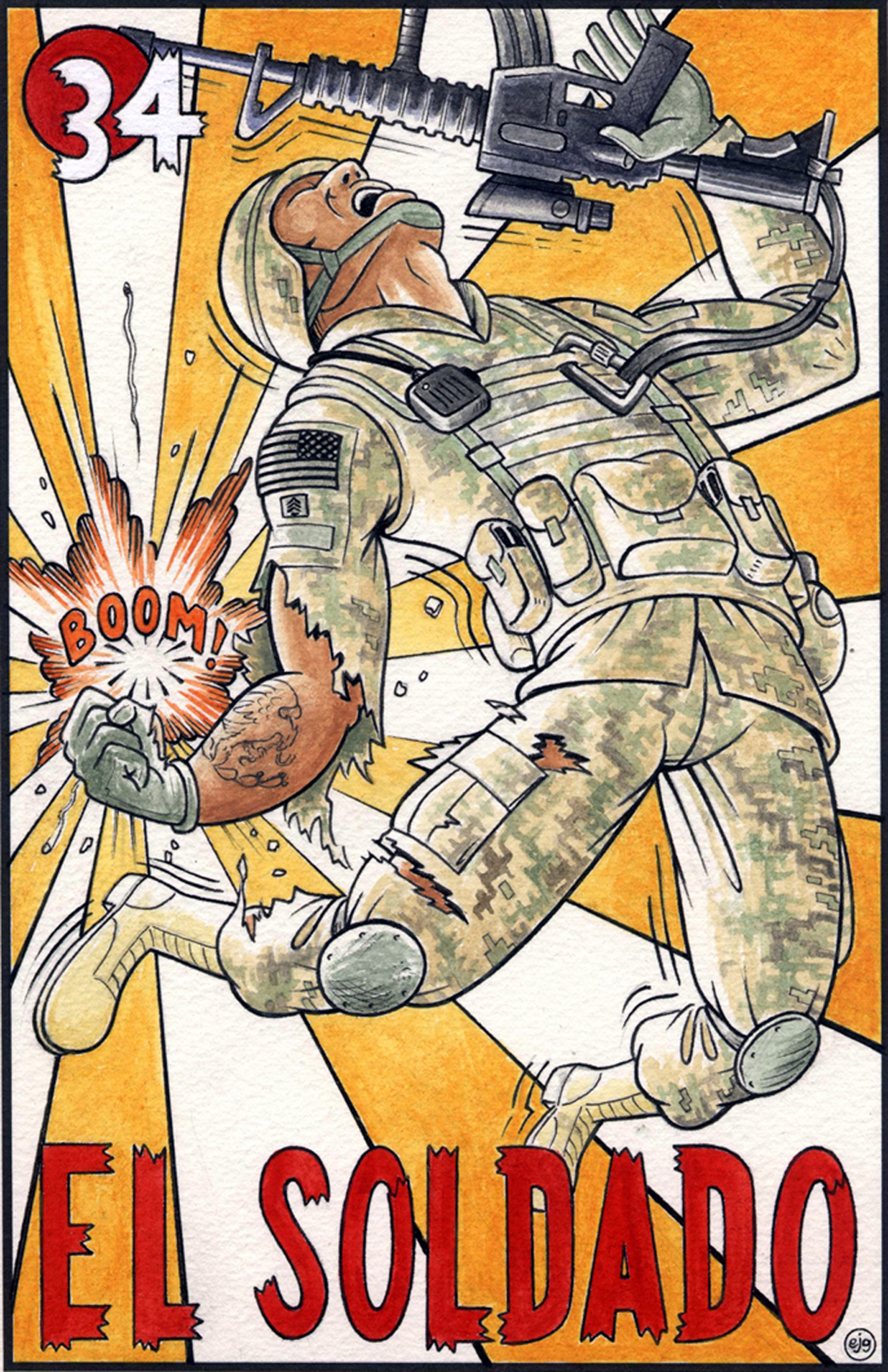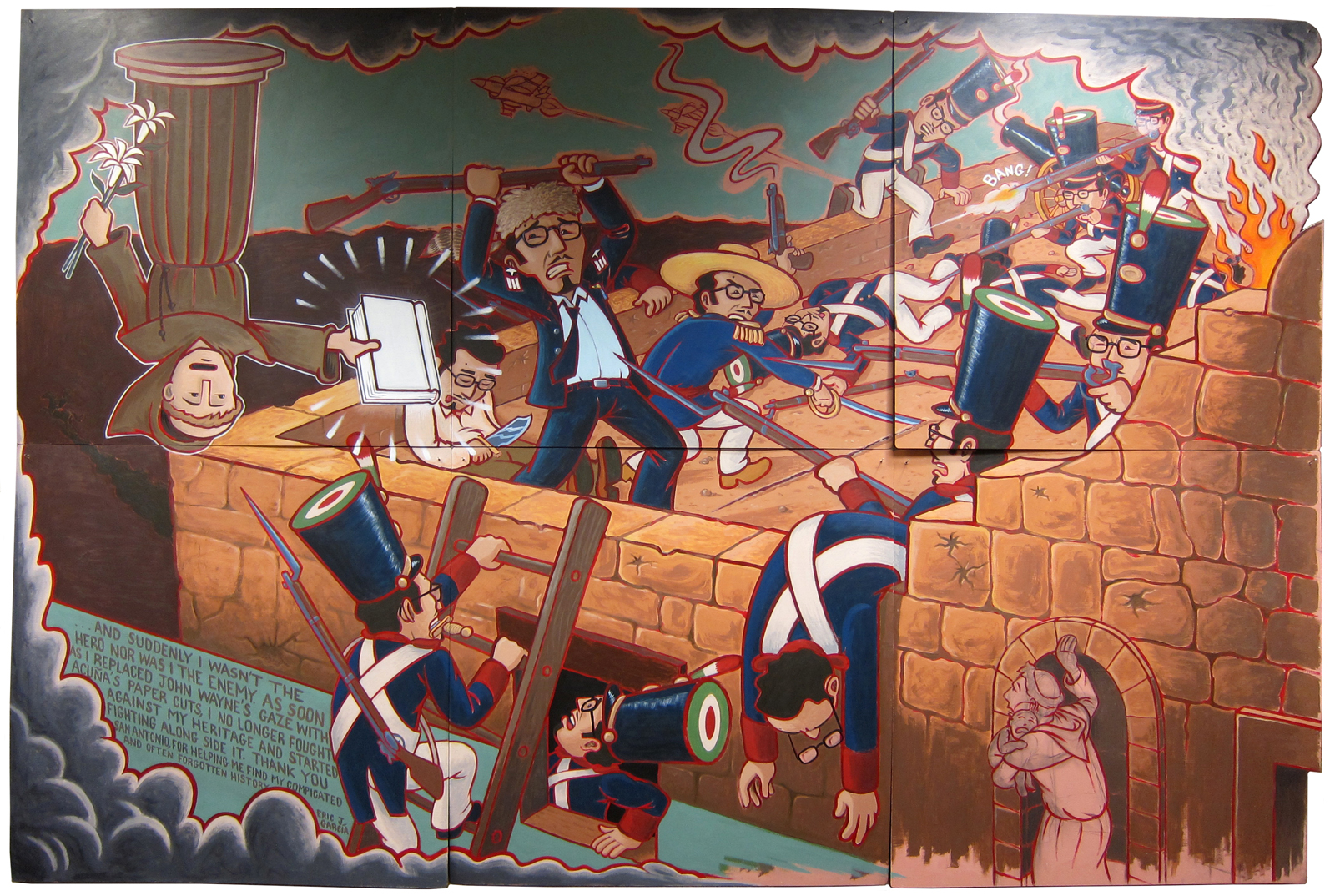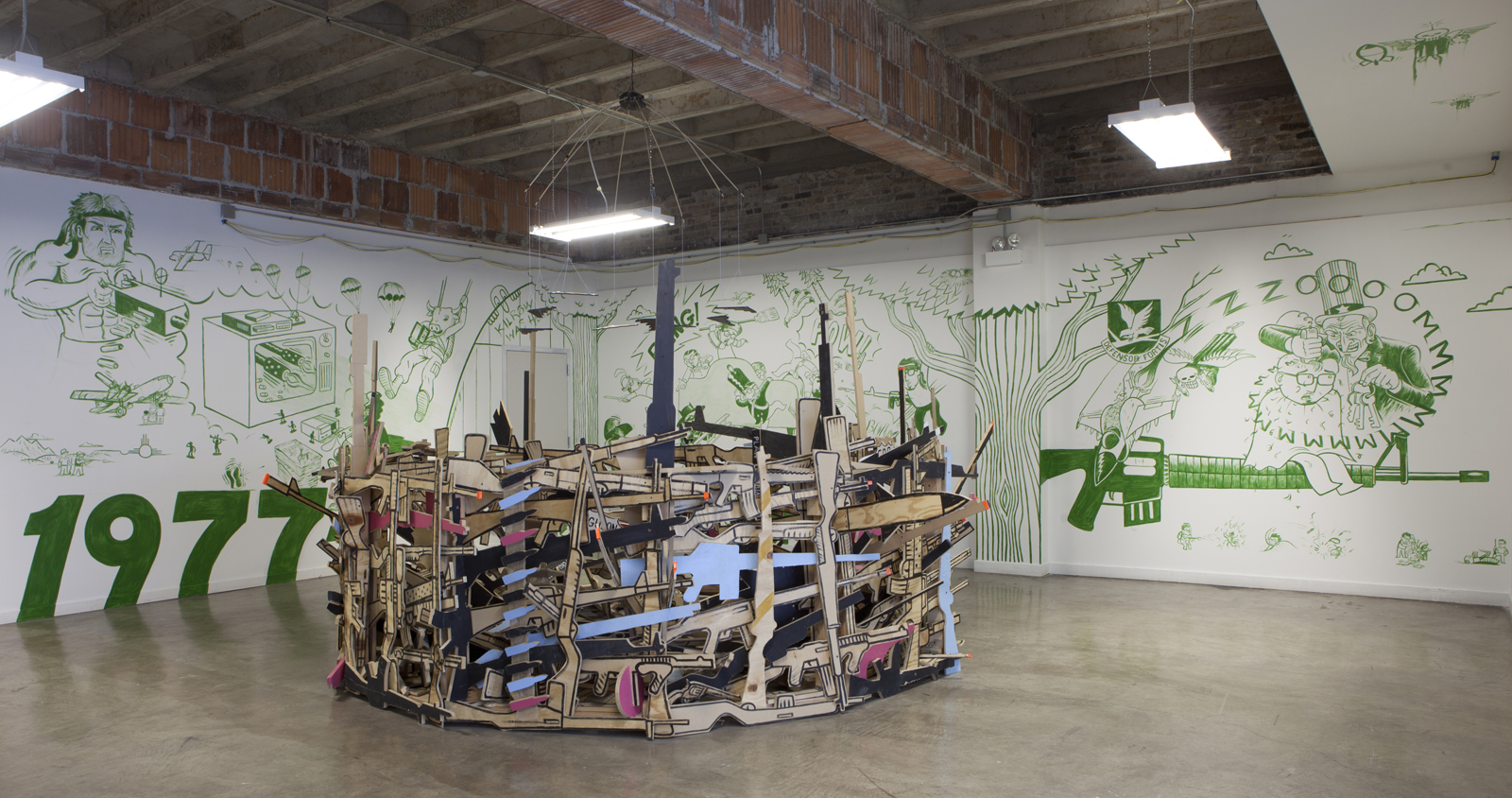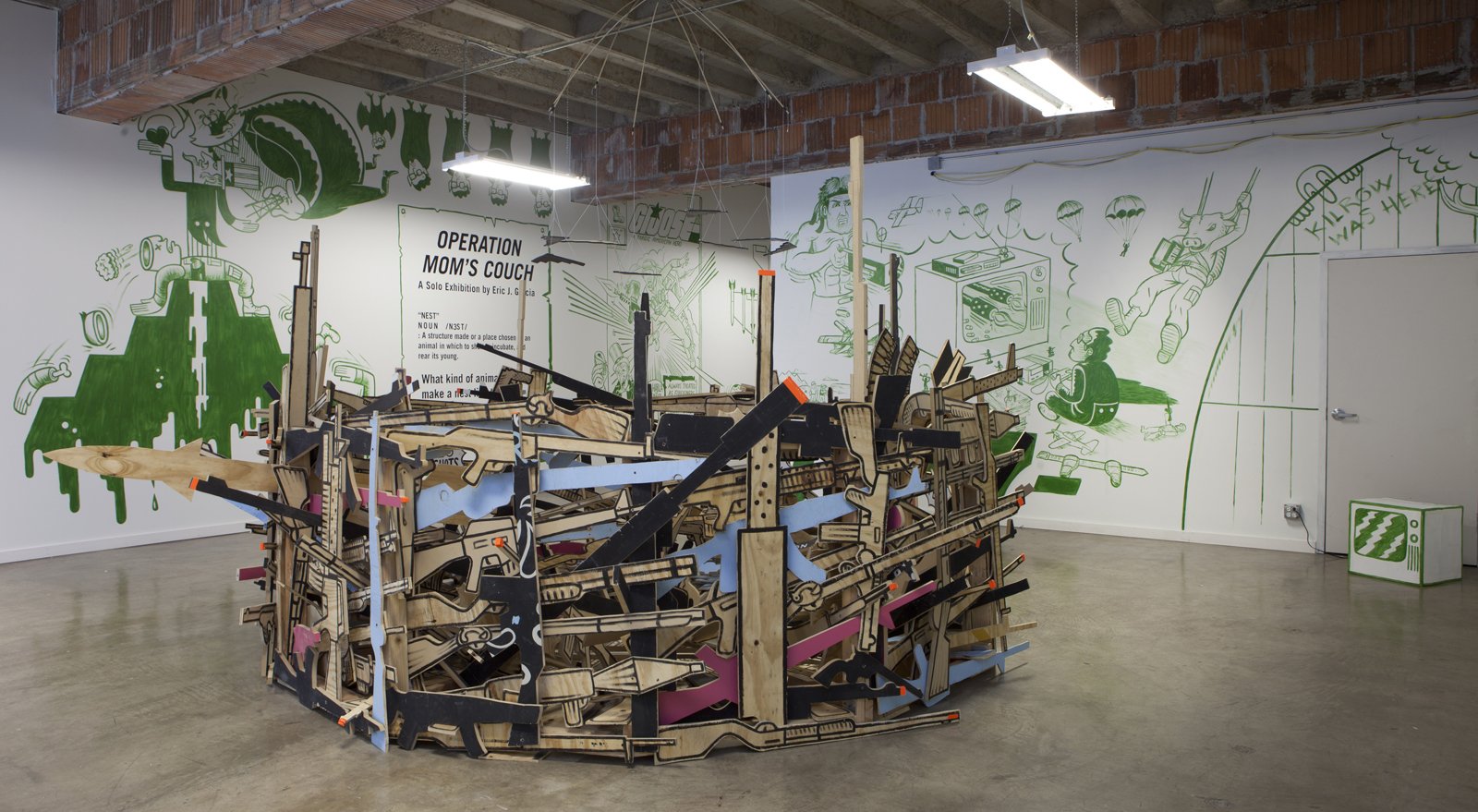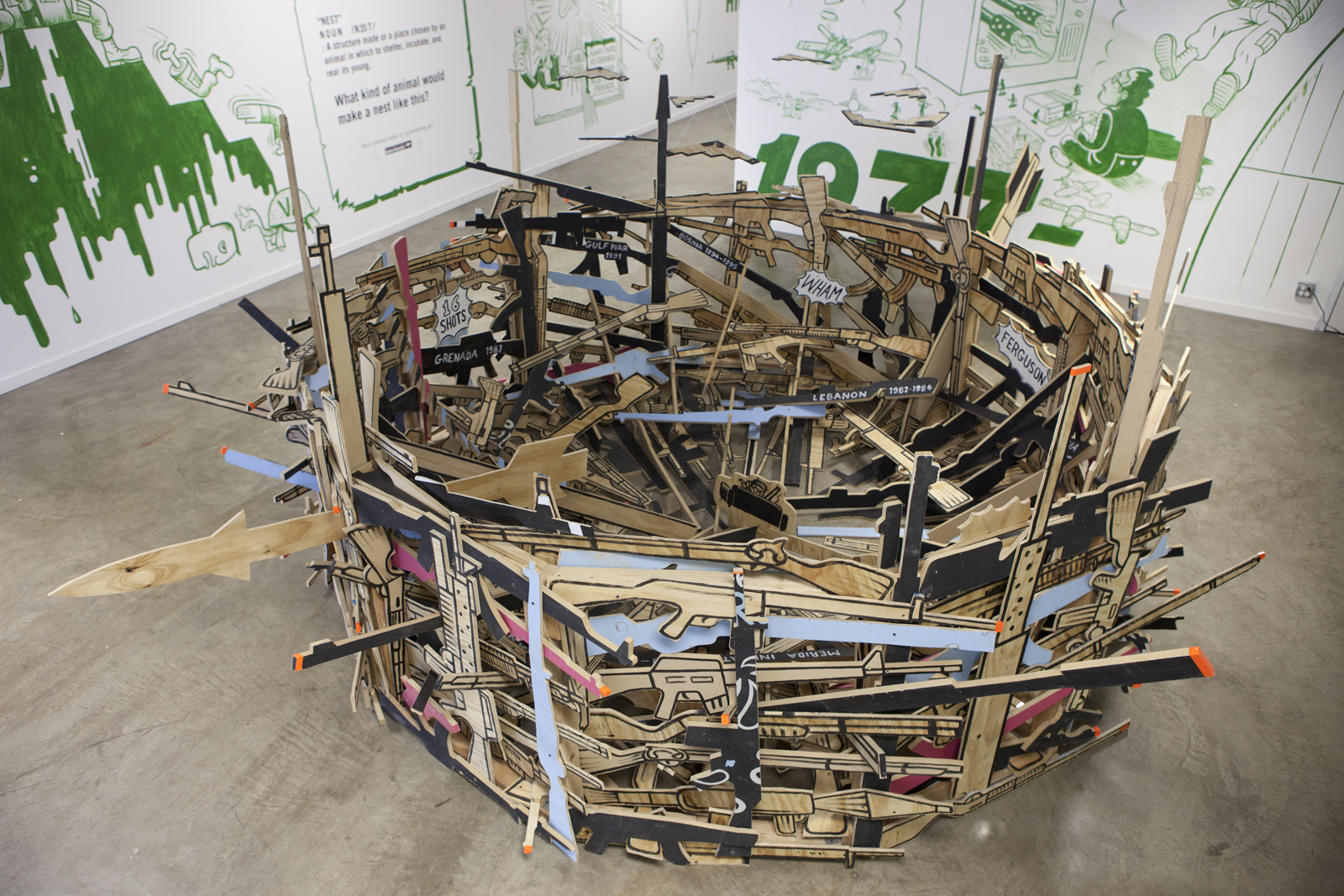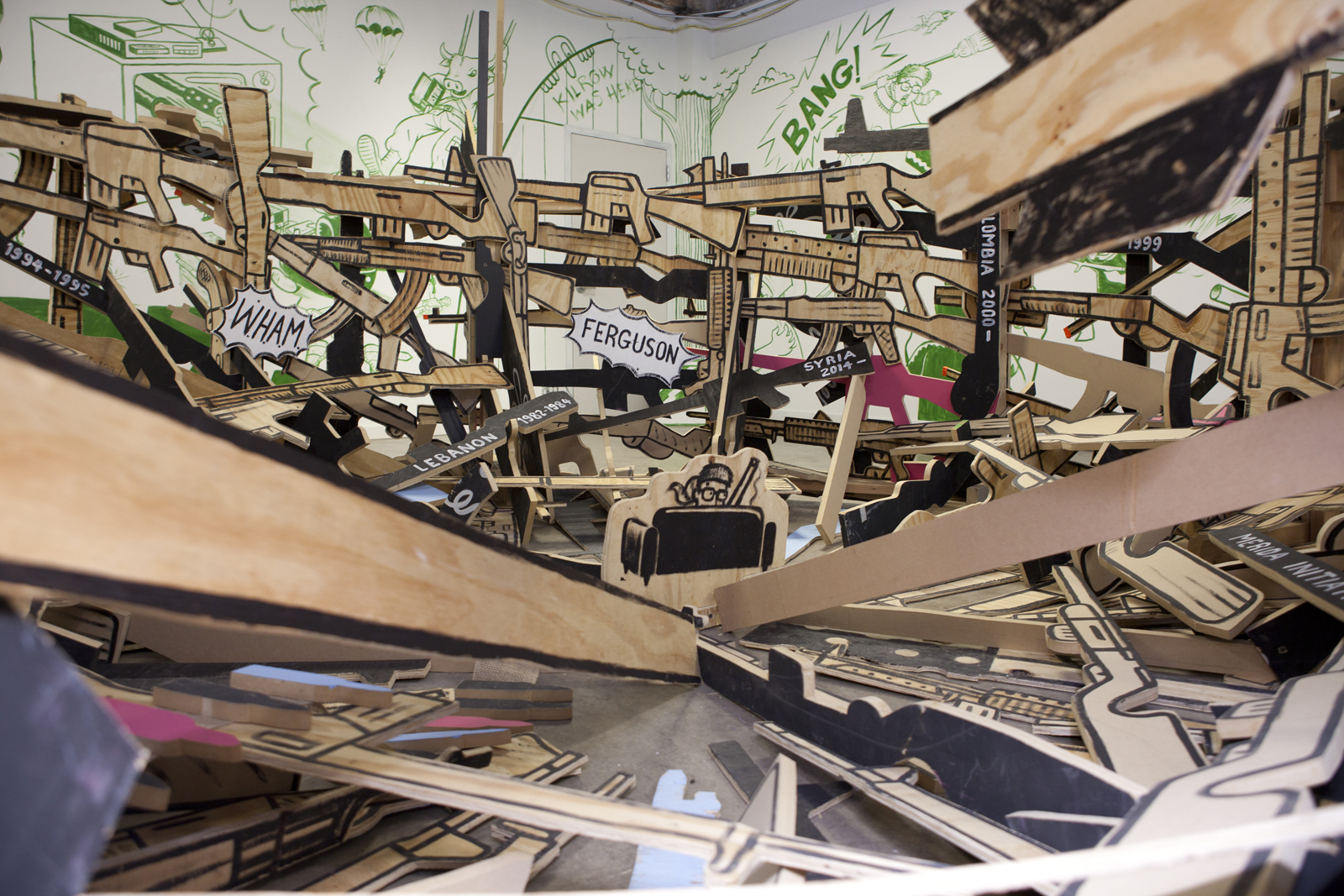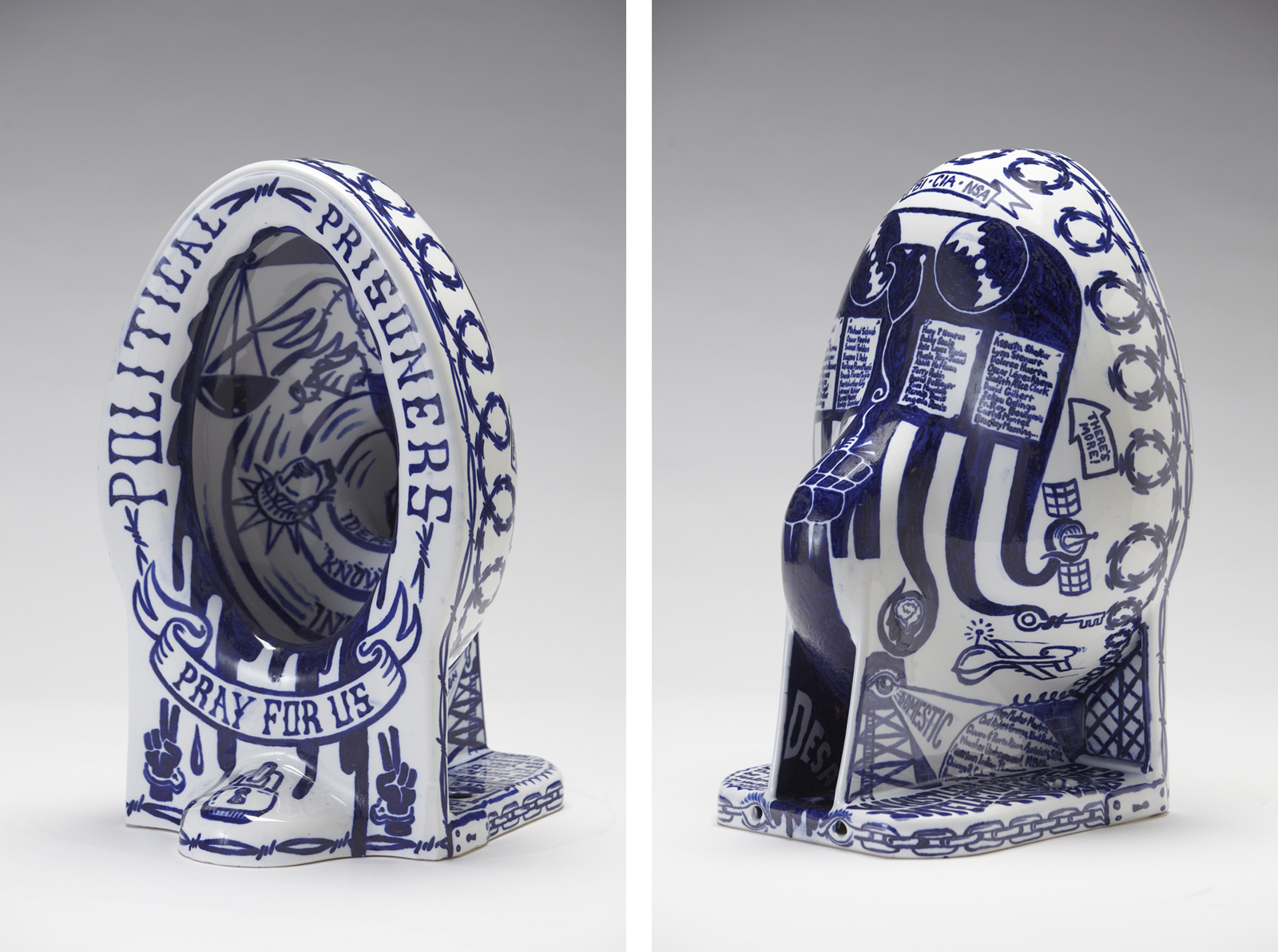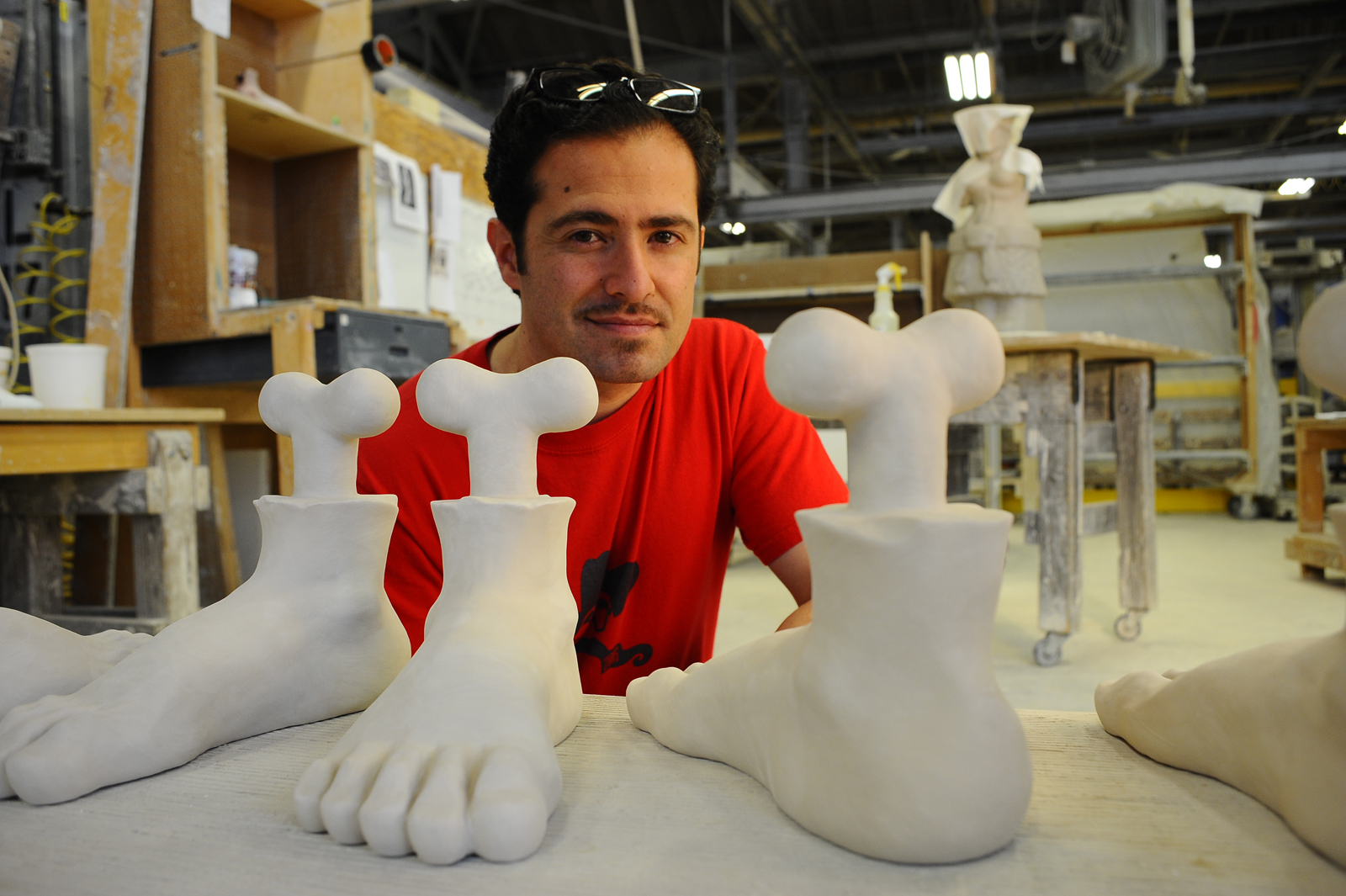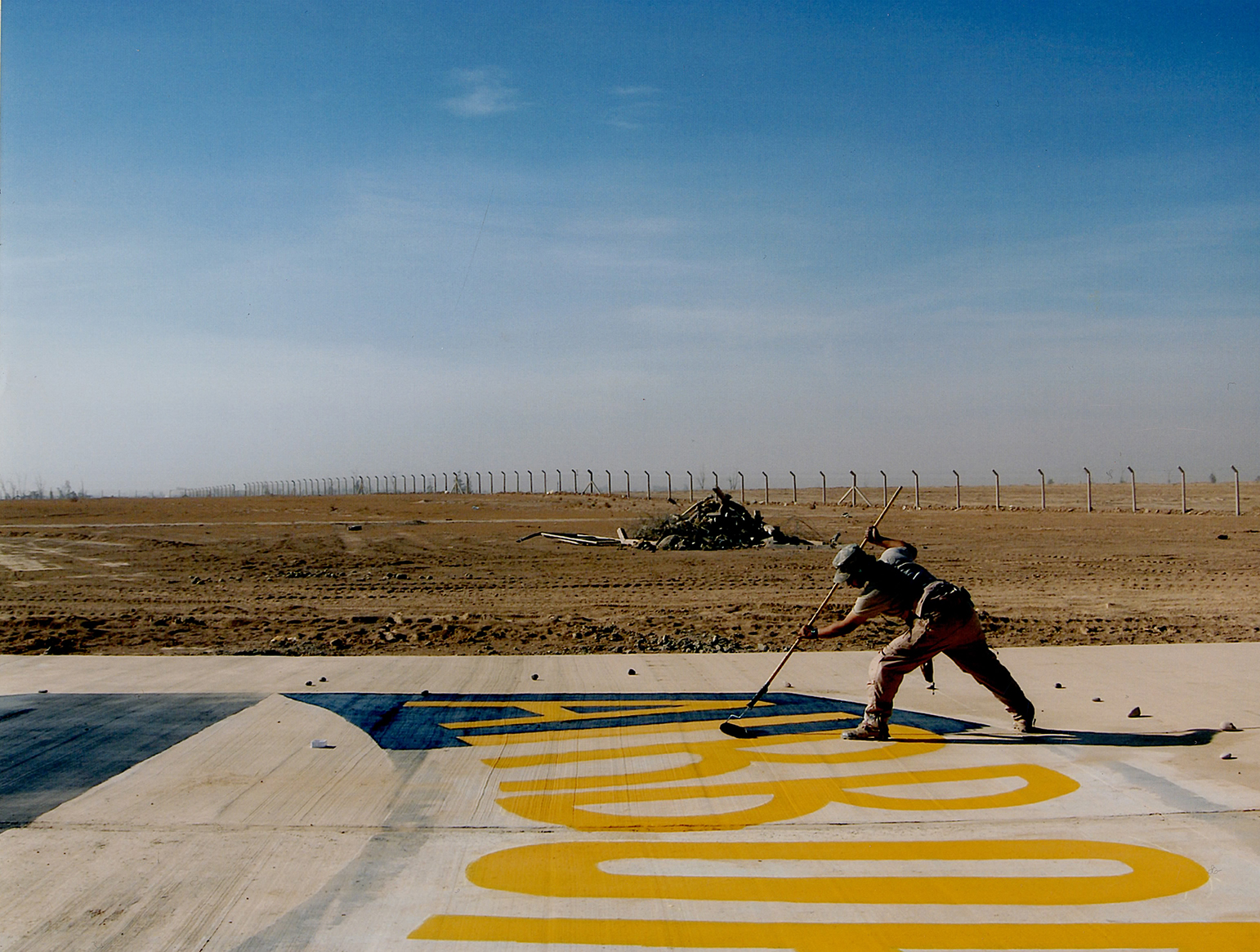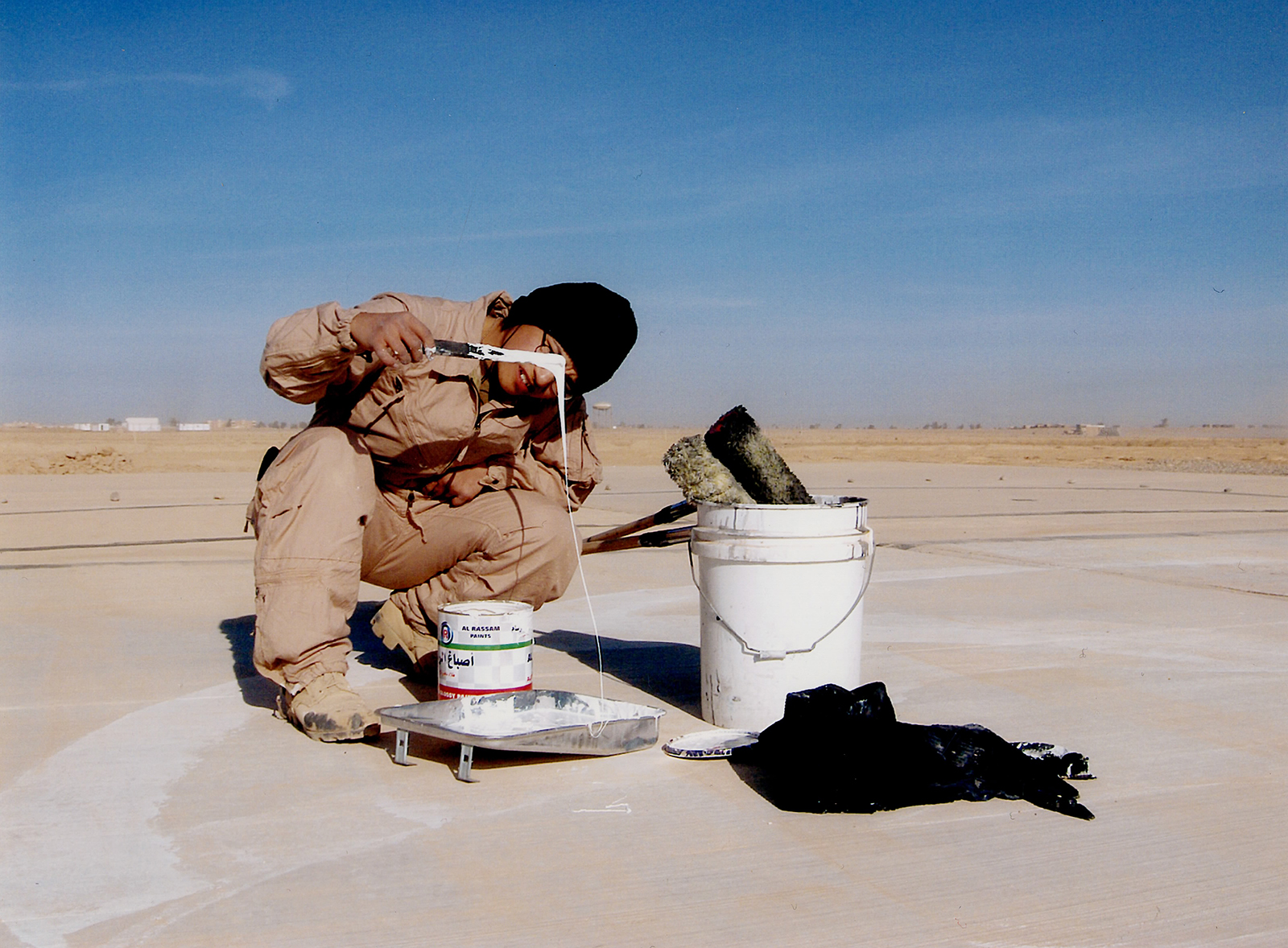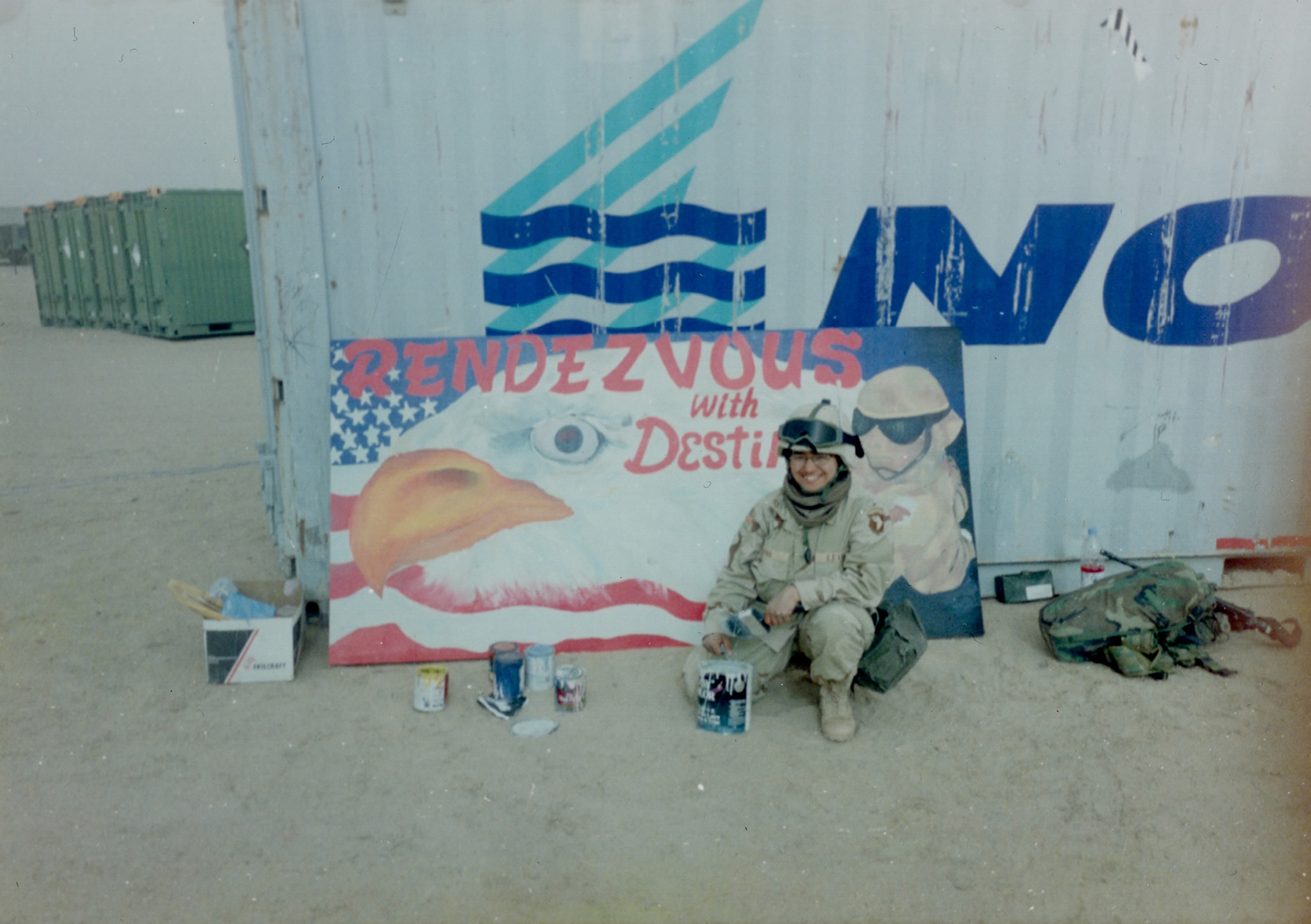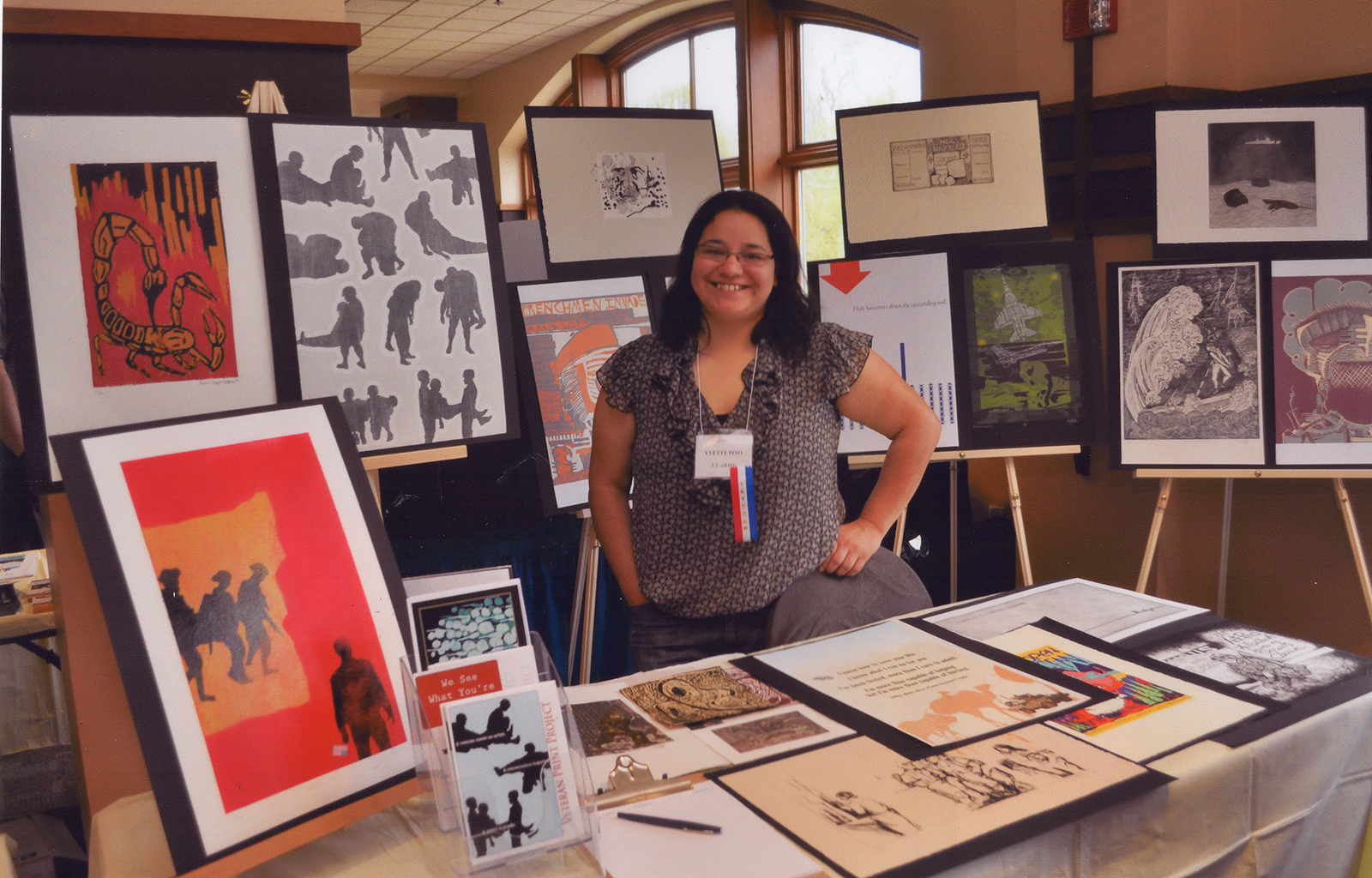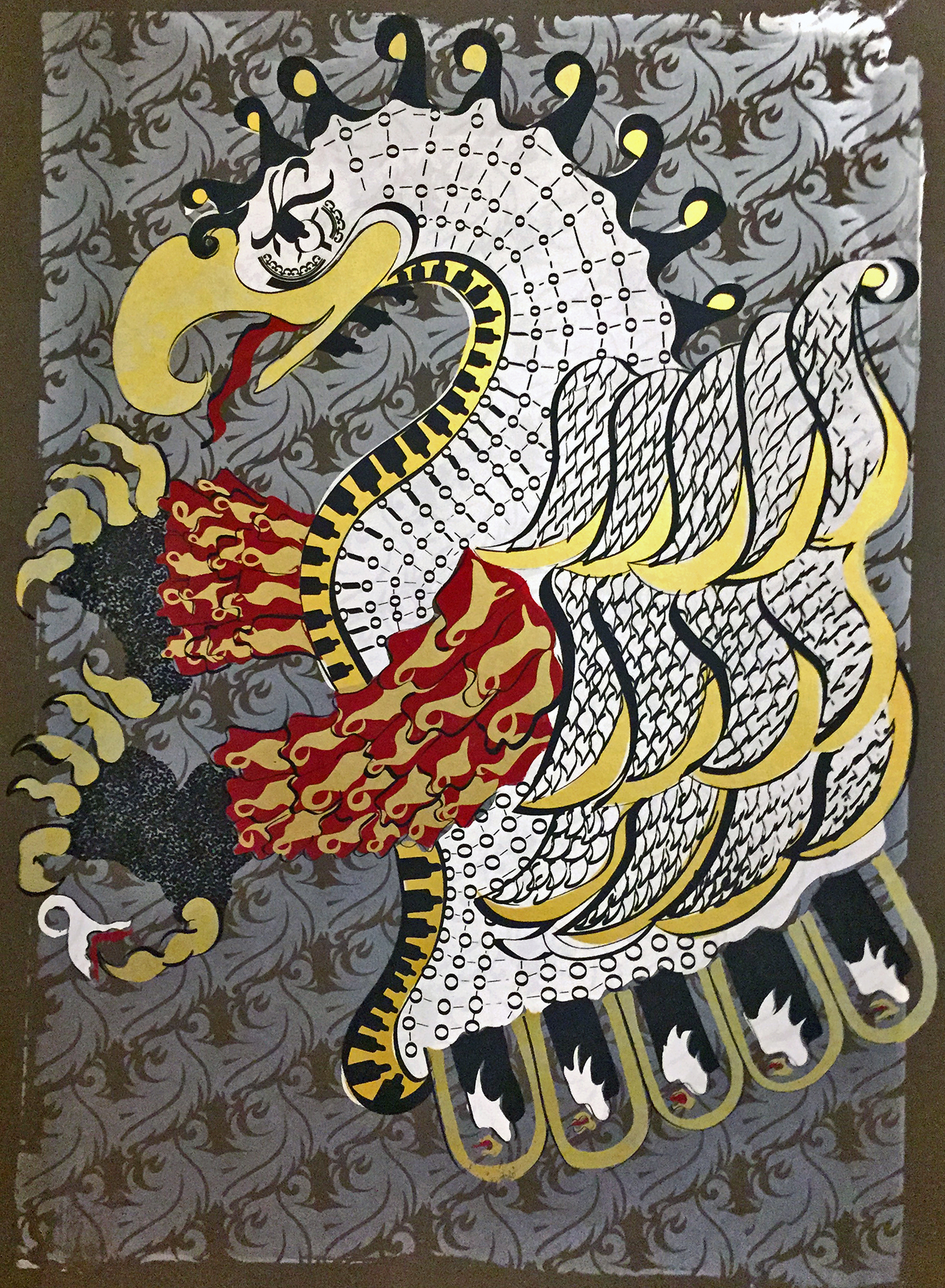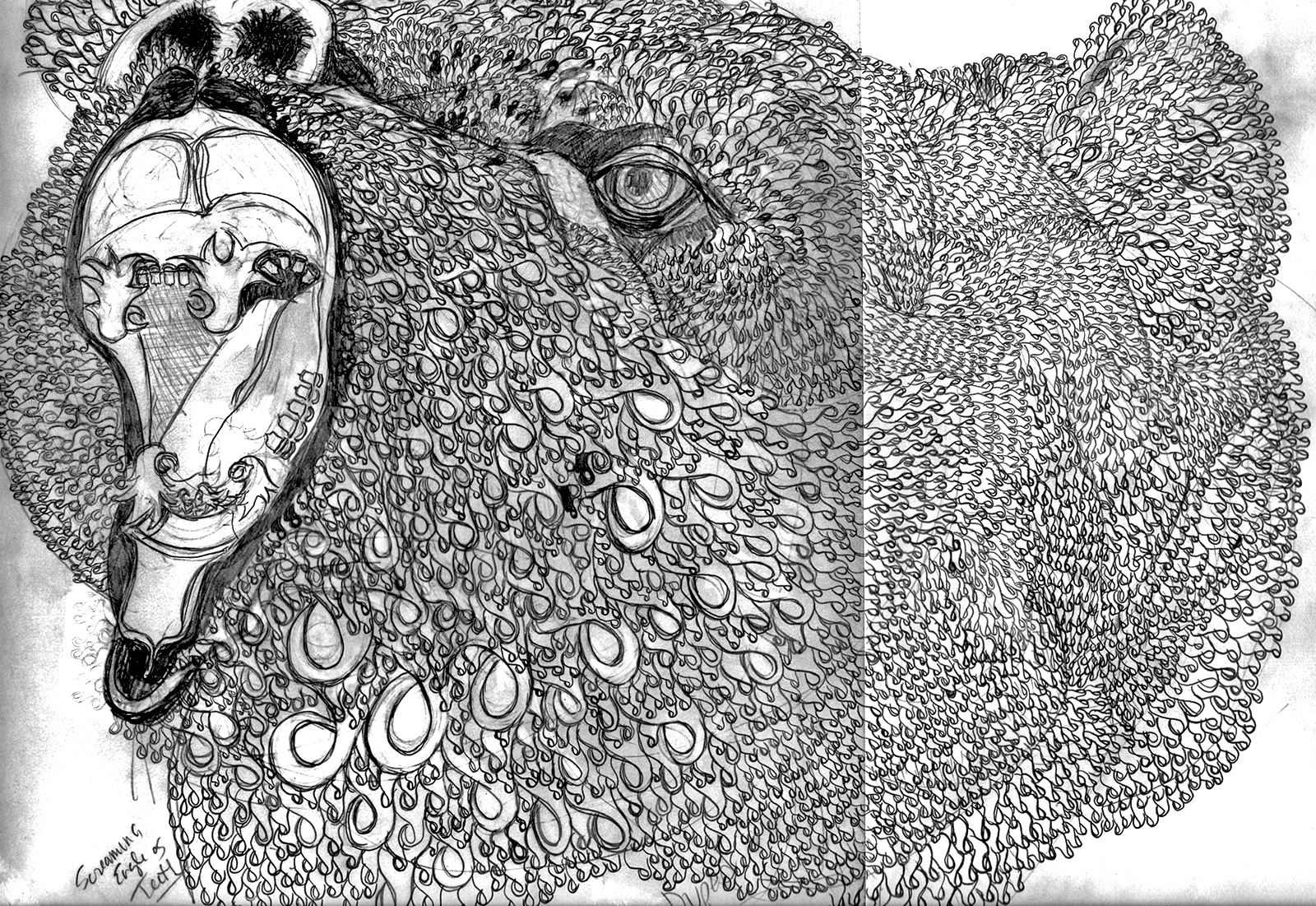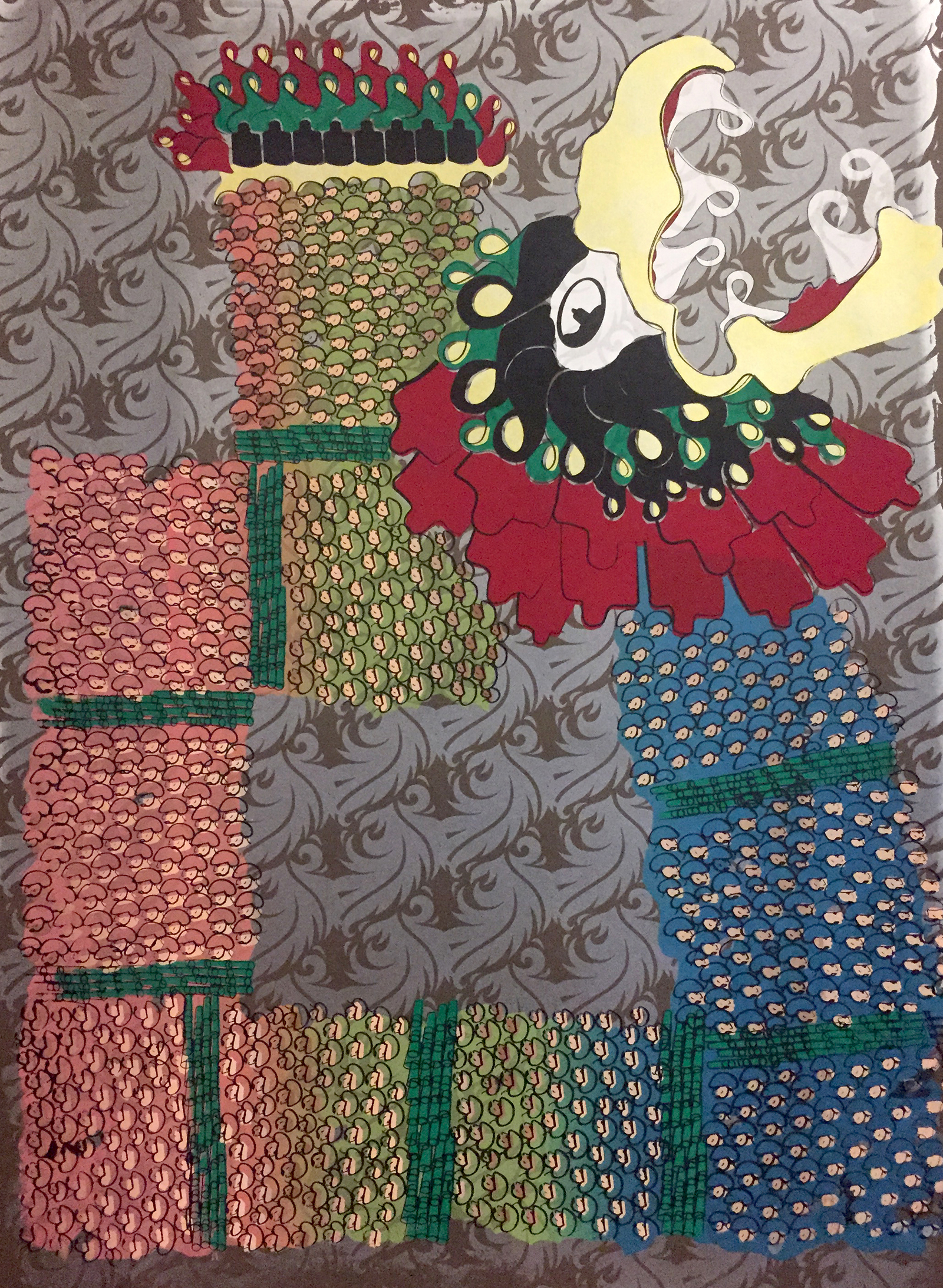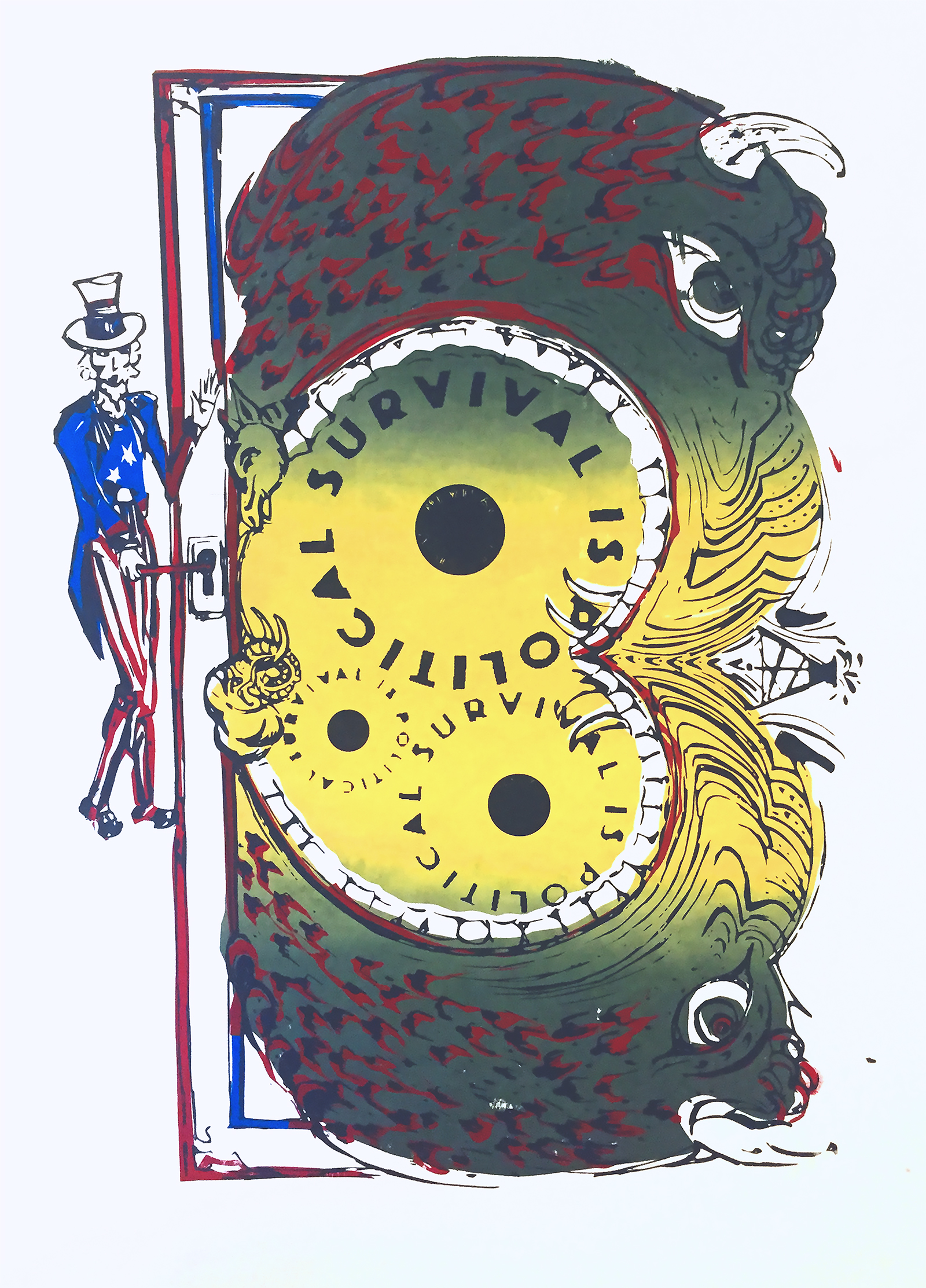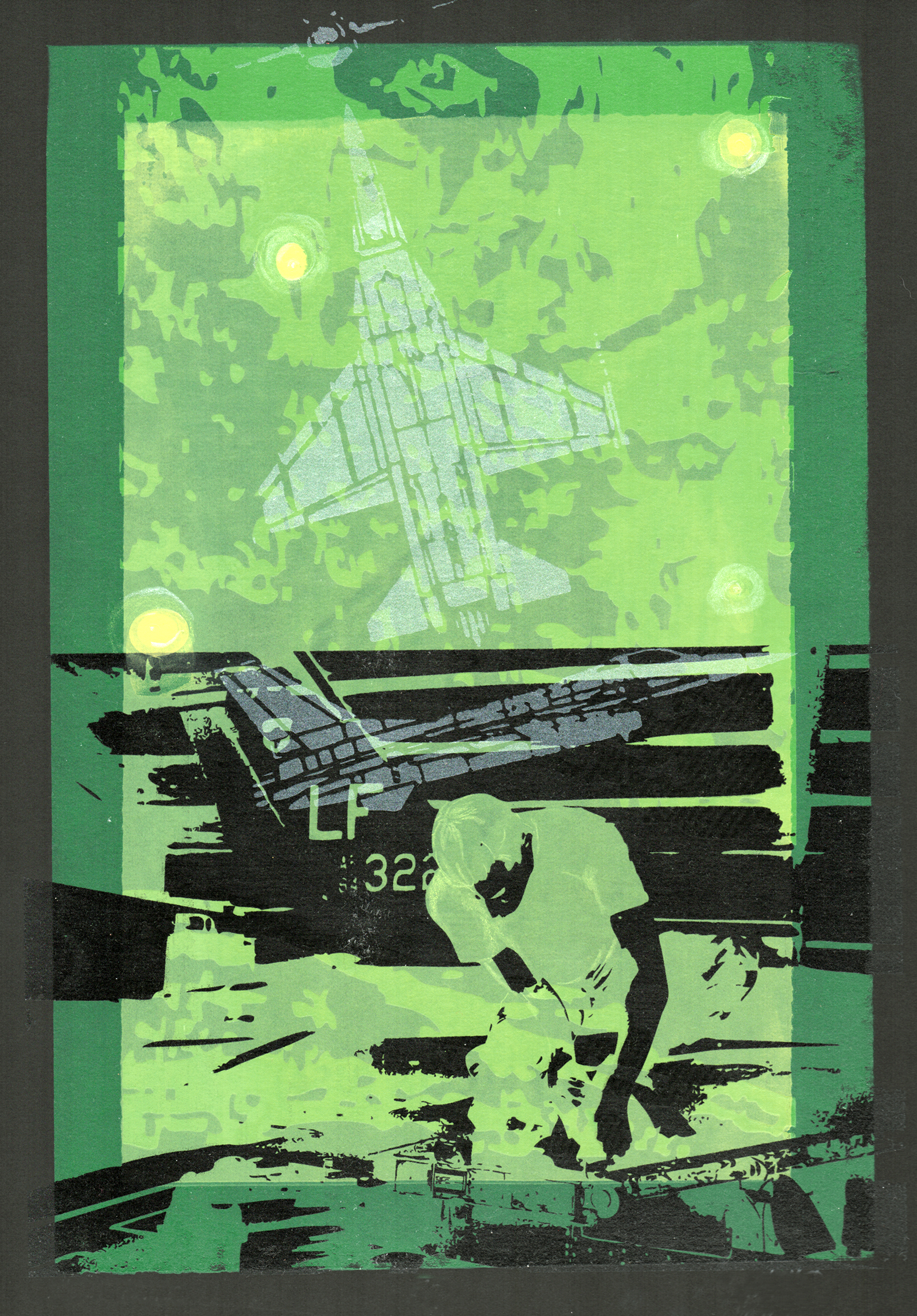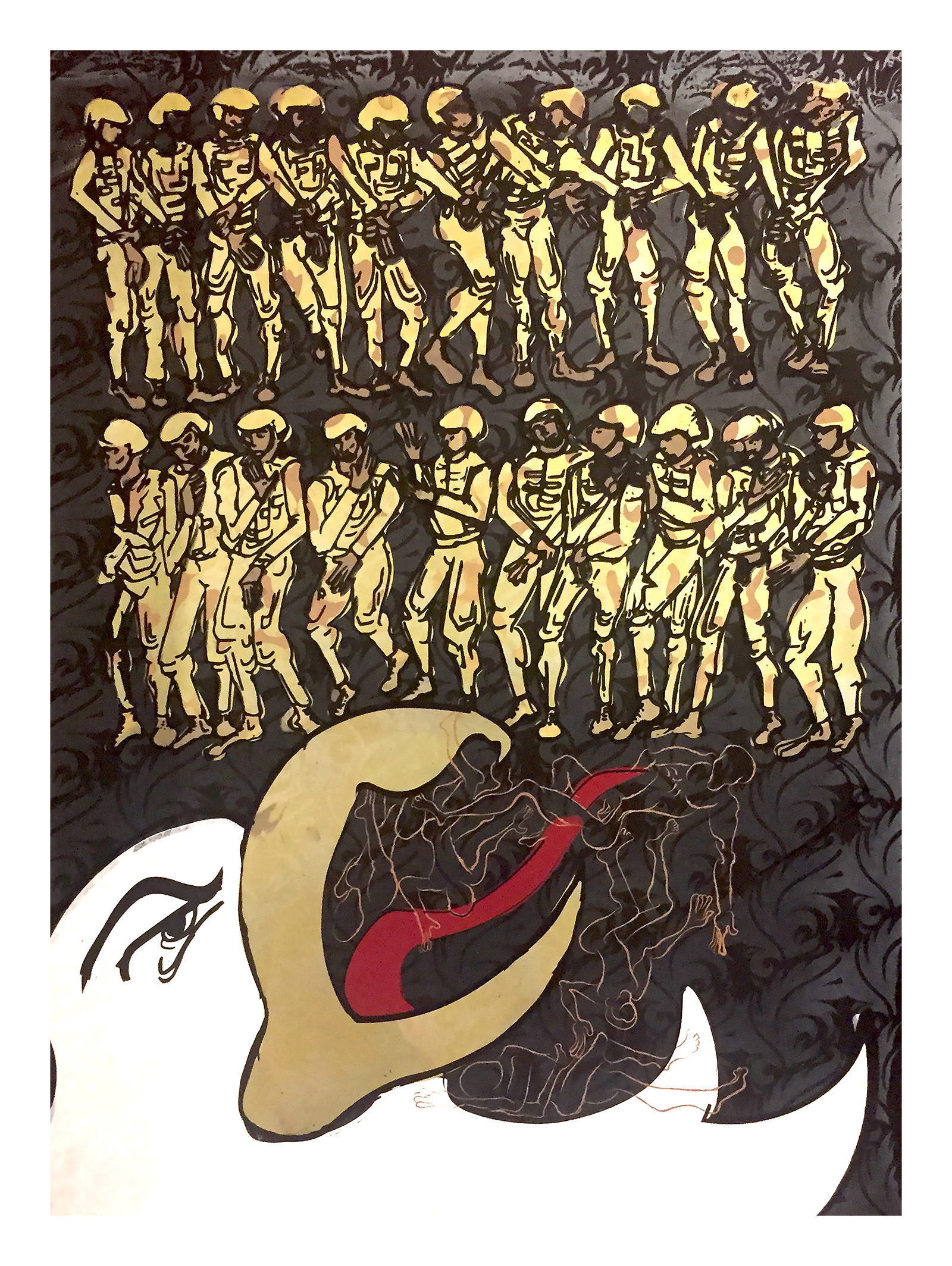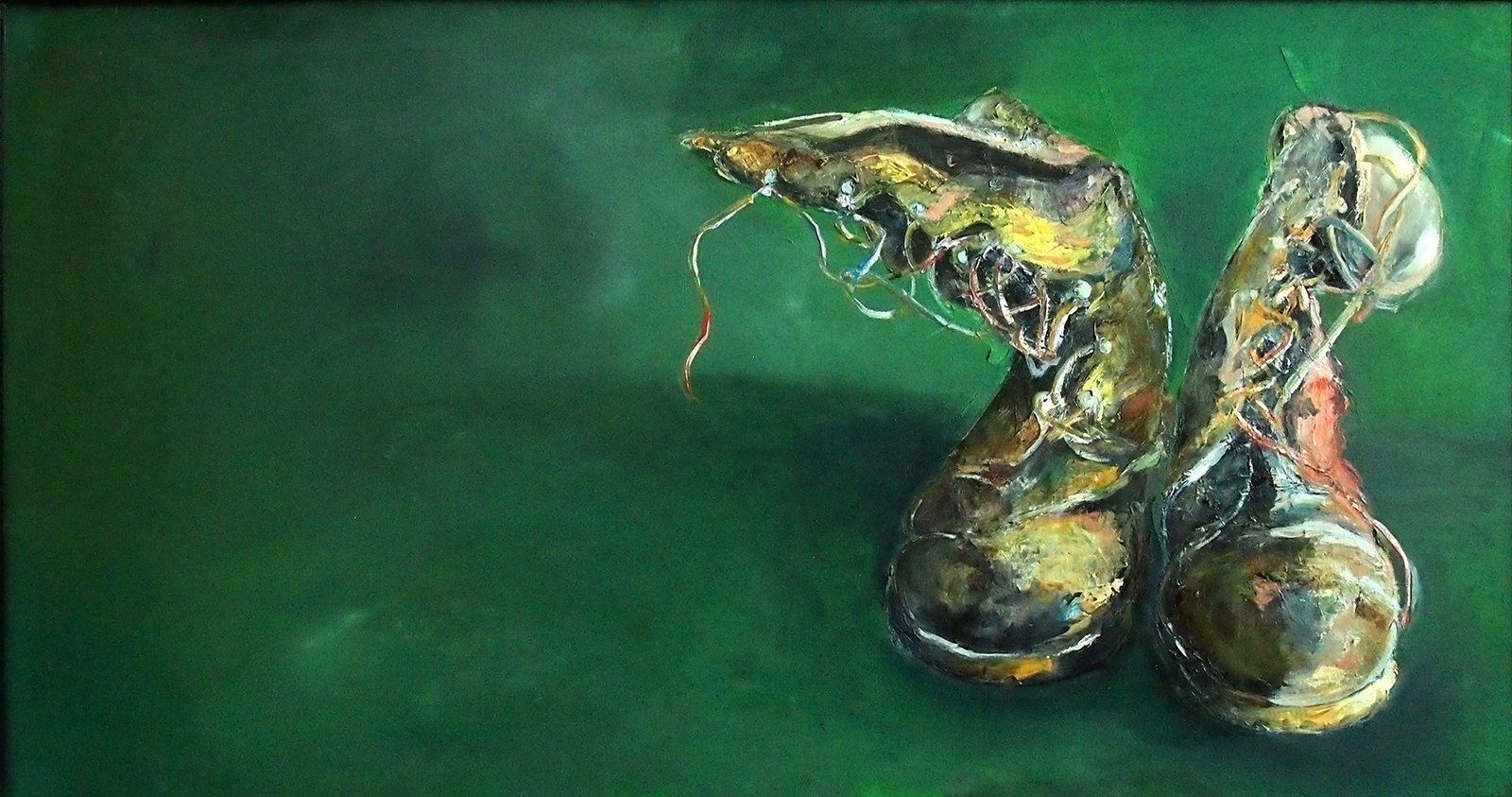





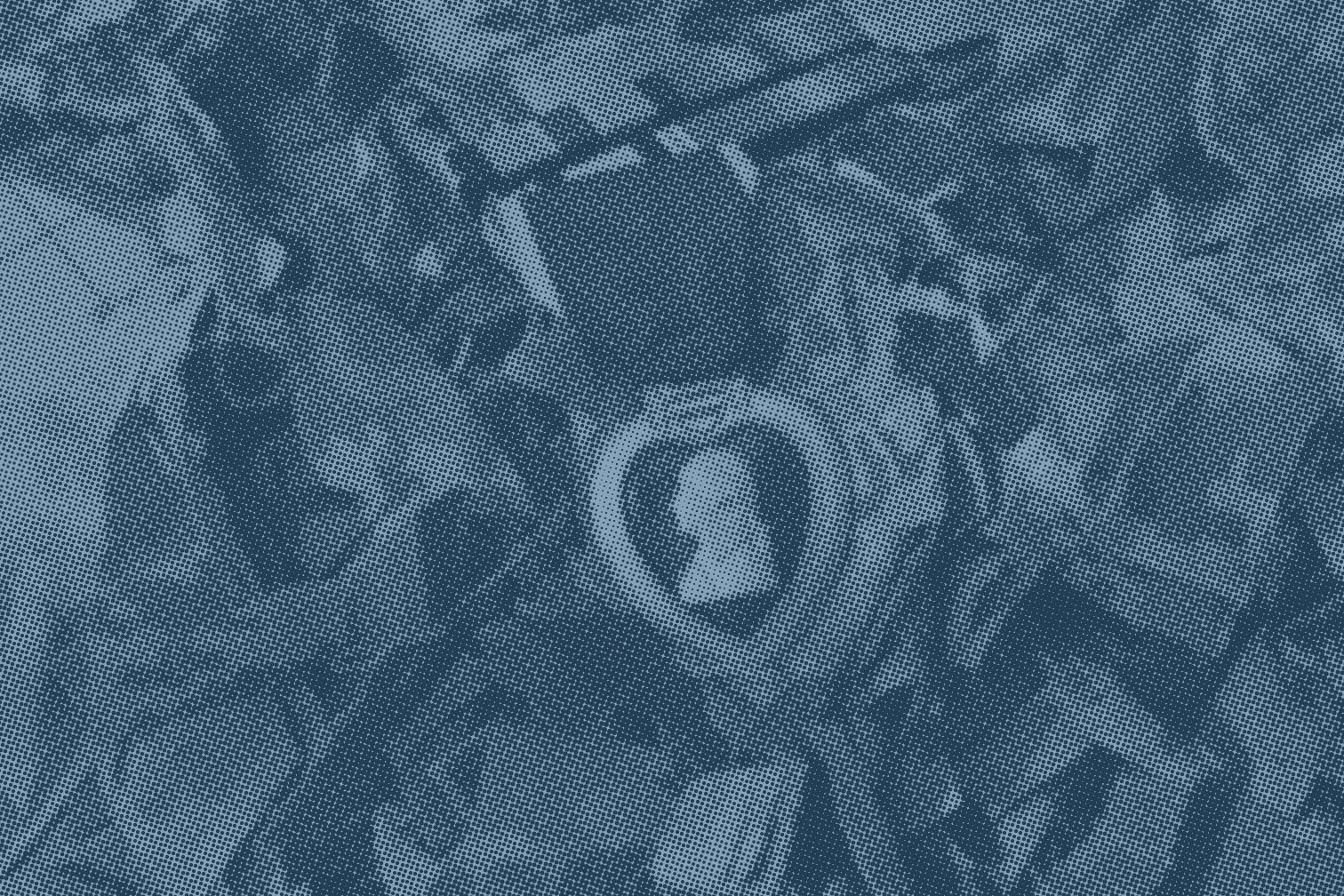








Eighty One Echo Season Two
Eighty One Echo Season Two
Season two of Eighty One Echo picks up where our premier season left off, exploring the work of veteran-artists through interviews, commentary and live performances. We talk with spoken word poets Hipolito Arriaga and Anthony Torres of The Combat Hippies, ceramicist Jessica Putnam-Phillips, woodworker Alicia Dietz, author Brian Turner, and more. We're also excited to bring you an extended episode featuring spoken word performances from Warrior Writers. Much of the content was recorded on-location at veteran-artist events, including Frontline Arts' Veterans in Craft week at Haystack Mountain School of Crafts and performances hosted by Warrior Writers and The Combat Hippies, at the Association of Writers and Writing Programs (AWP) 2018 conference in Tampa. Our interviewers for season two are Kevin Basl, Aaron Hughes and Thomas Seely.

Episode Four: Jessica Putnam-Phillips
Episode Four: Jessica Putnam-Phillips
How does an artist make a living during a pandemic? Ceramicist Jessica Putnam-Phillips knew the answer to that question long before COVID-19 hit. In this episode, Jessica talks about how she set up her successful online teaching platform, Clayshare.com, which is her primary source of income. She also talks about how the theme of "service" plays into her work, how the refugee crisis has impacted her, and the influence of feminist artist Judy Chicago. Recorded at Haystack Mountain School of Crafts in May 2018 (Eighty One Echo took a long hiatus and so didn't release this earlier), this interview with Jessica is a prelude of things to come: from the work she would display at the 2019 National Veterans Art Museum Triennial, to the economic uncertainties brought on by COVID-19.
To read more about the work Jessica featured at the 2019 Triennial, check out Yvette Pino's essay "CONVERGENCE.”

Episode Three: Rodney Ewing
Episode Three: Rodney Ewing
Rodney Ewing is fascinated by questions of place: Who are certain places for? Who decides? Who gets left out? As a self-described "topics based artist," he uses whatever medium suits the message he intends to communicate, from printmaking to sculpture to installation art. A Gulf War veteran, whose father spent 20 years in the Air Force, military issues have informed his work significantly. Rodney talks about several recent projects, including Rituals of Water, which explores ways that water has displaced black and brown peoples over centuries. He also talks about his work with the Three Point Nine Art Collective, a group of African American artists in San Francisco addressing issues of displacement in their city.

Episode Two: Alicia Dietz
Episode Two: Alicia Dietz
As a child, Alicia Dietz made a lightening bug catcher with her dad, her first woodworking project. Years later, while serving as a Black Hawk pilot in the Army, she made a coffee table at a military recreational facility, rekindling an interest in the craft. How does Alicia now use woodworking to explore veterans issues? How is a wood shop like a helicopter? Why are so many veterans drawn to craft? In this episode of Eighty One Echo, hear Alicia speak on those topics and more, including commentary on her work featured in Artifacts, a group exhibition running through summer 2018 at the National Veterans Art Museum in Chicago.

Episode One: Combat HippieS
Episode One: Combat HippieS
Poets Hipolito Arriaga and Anthony Torres of The Combat Hippies both recall a moment of enlightenment, when they began drawing links between the U.S. war machine and oppression and poverty at home. How do memories of military service continue to affect their art and activism? How did The Combat Hippies get started? What's to come? Following a successful run of their first full-length performance, Conscience Under Fire (2015), Hipolito and Anthony began planning a new performance, AMAL, with their mentor and leader, the award-winning actor and director Teo Castellanos. The performance deals with military issues, the ongoing refugee crisis, and under-represented Puerto Rican history (both artists are of Puerto Rican descent). Featuring spoken word poetry, Afro-punk-inspired music, and a full stage production, AMAL (which means "hope" in Arabic) will tour the U.S. in 2019.

Eighty One Echo Season One
Eighty One Echo Season One
The first season of Eighty One Echo features interviews with veteran-artists Yvette M. Pino, Eric J. Garcia, Maurice Emerson Decaul, Drew Cameron, and Amber Hoy. From comic books to painting "screaming eagles" on helipads in Iraq, from multimedia theater to making paper from military uniforms, this eclectic group of veterans share stories about the military, creating art, who they were before serving, and how politics influence their work. Our interviewers for season one are Chelsea Wills and Thomas Seely.

Episode Six: Celebrating 10 Years of Combat Paper
Episode Six: Celebrating 10 Years of Combat Paper
In July of 2017, Combat Paper-makers from around the U.S. descended on Revival Book Arts and Paper Studio in Trumansburg, NY, for a week of papermaking, artistic collaboration, conversation, and celebration. Collecting interviews reflecting on 10 years of papermaking from military uniforms, friendship and community, Kevin Basl asked attendees to share insights and favorite stories about Combat Paper. This episode of Eighty One Echo weaves those interviews together, featuring Drew Cameron, Lovella Calica, Eli Wright, David Keefe, Leonard Shelton, Nathan Lewis, Robert Possehl and more.

Episode Five: Amber Hoy
Episode Five: Amber Hoy
How did Amber Hoy create a “poetic place” for herself during eight years serving in the Army Reserves? Influenced by photo-text artists like Martha Rosler, Amber uses photography and other mediums to seek moments where the past and present merge, citing that much of her work is “a warning to a younger self.” Amber, initially trained to be an Army cook, deployed to Iraq as an ammunition specialist in 2006. Navigating the overtly-masculine world of the military and, later, veterans’ culture, her work also explores how femininity finds expression in a male-dominated environment. Amber, who holds an MFA in photography and integrated media, talks about her thesis show, Entrenched, which includes stories paired with diptychs composed from snapshots she took in Iraq.

Episode Four: Maurice Decaul
Episode Four: Maurice Decaul
Poet and playwright Maurice Decaul didn’t start writing until he enrolled at New York University, several years after serving in Iraq with the U.S. Marines. There he participated in the NYU Veterans Writing Workshop with fellow veterans Phil Klay, Matt Gallagher, Roy Scranton and others. Maurice went on to complete an MFA in poetry (he reads from his work in this episode) and currently studies playwriting at Brown University. He shares some of the lessons he learned from mentor Yusef Komunyakaa, including what it means to be a “veteran writer.” He also talks about the complications of loving the Marine Corps while being against the Iraq War—a conflict many of today’s veterans experience.

Episode Three: Drew Cameron
Episode Three: Drew Cameron
Following service in the U.S. Army, Drew Cameron went to college in Vermont, on the G.I. Bill. There, he rediscovered the craft of hand papermaking (his father is a papermaker), while learning about the history of anti-war resistance, especially those movements led by veterans and service members. In the third episode of Eighty One Echo, recorded at Shotwell Paper Mill in San Francisco in 2016, Drew talks about making Combat Paper, the problem of American militarism and people who have inspired his work. What happens in a Combat Paper workshop? How does this craft fit into the history of hand papermaking, from the 8th century C.E. in what is today Iraq, to the hundreds of U.S. service members and veterans now making paper from their uniforms? What is creativity as an act of survival? You’ll hear Drew respond to these questions and more.

Episode Two: Eric Garcia
Episode Two: Eric Garcia
As a teenager, Eric J. Garcia took a trip to Mexico City and experienced a political and artistic awakening. He encountered the work of the Mexican Muralists, Los Tres Grandes. Years later, Eric would get stop-lossed by the U.S. Air Force, leading him to post cartoons critical of military policy for fellow airmen and his command to see. In episode two of Eighty One Echo, hear Eric tell these stories, while also sharing his thoughts on U.S. imperialism, Chicano studies and the term “veteran artist.” He also describes his original political cartoon series, El Machete Illustrated, and walks us through his recent sculptural installation at the National Veterans Art Museum, Operation Mom’s Couch.

Episode One: Yvette Pino
Episode One: Yvette Pino
How did Yvette M. Pino go from working in professional theater to painting unit mascots in Iraq for General Petraeus? In the premier episode of Eighty One Echo, hear Yvette talk about why she joined the army, making political artwork, and the harmful effects of her uncle’s silence about his experience in the Vietnam War. Other highlights include stories from the Veteran Print Project, how food helped her connect with Iraqi workers and why she sees printmaking as a metaphor for the military.

Eighty One Echo
Eighty One Echo
Eighty One Echo is a podcast series featuring interviews with veteran artists. Each episode features an in-depth discussion of the artist's cultural background, military experience and artistic craft. Follow this growing community, and please share Eighty One Echo with your friends.
Eighty One Echo is produced by Aaron Hughes and Kevin Basl.

Thank You
Thank You
The production of season one of Eighty One Echo was made possible through a generous grant from the Blue Mountain Center, along with the financial support of producer Aaron Hughes.
Special thanks also to Thomas Seely and Chelsea Wills, our interviewers, for their patience and guidance, their audio editing expertise, and the hours they devoted to helping get our project off the ground. Please check out their other podcasts: Chelsea is co-producer of Delicious Revolution, and Thomas hosts Art Uncovered.
